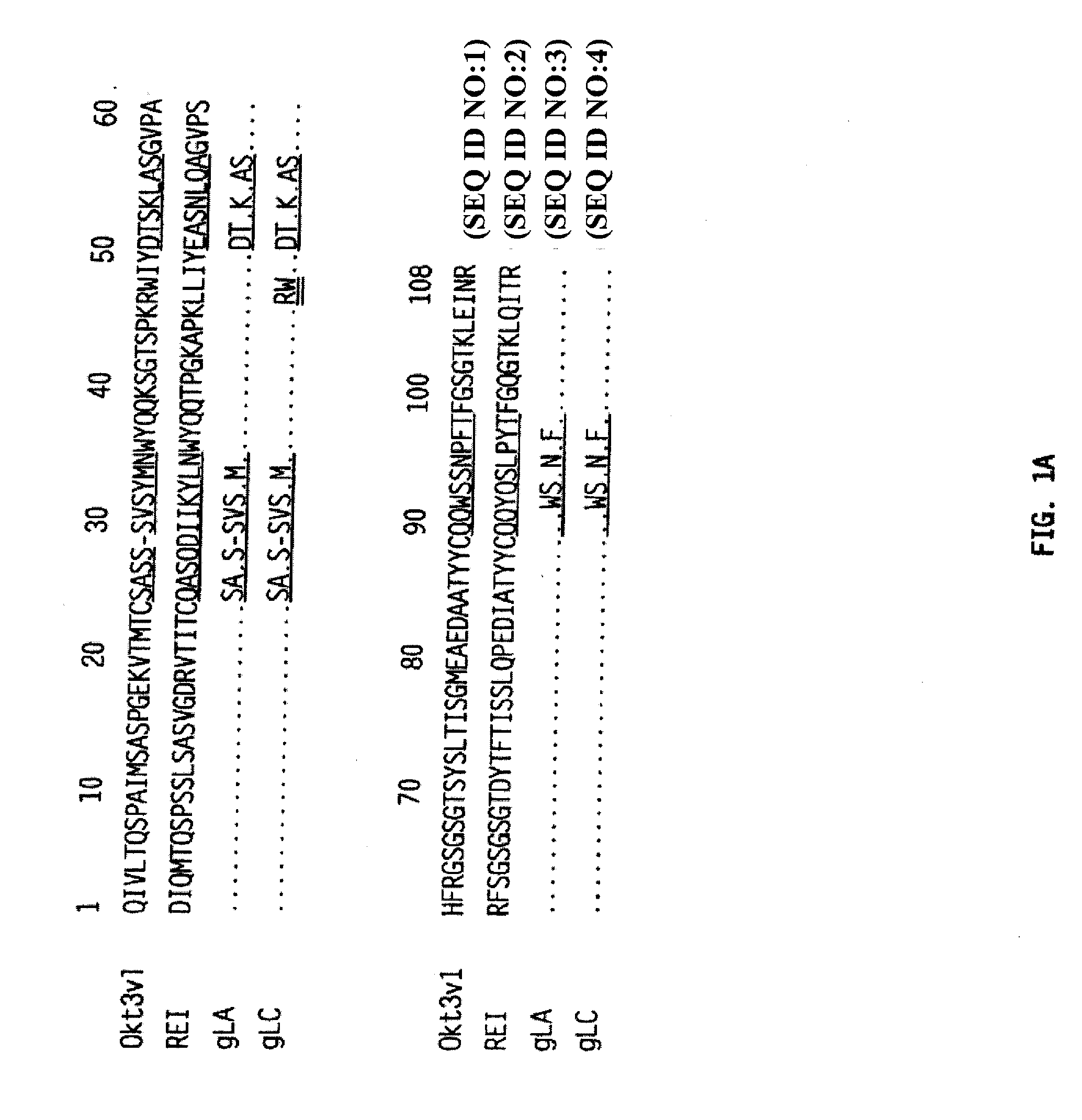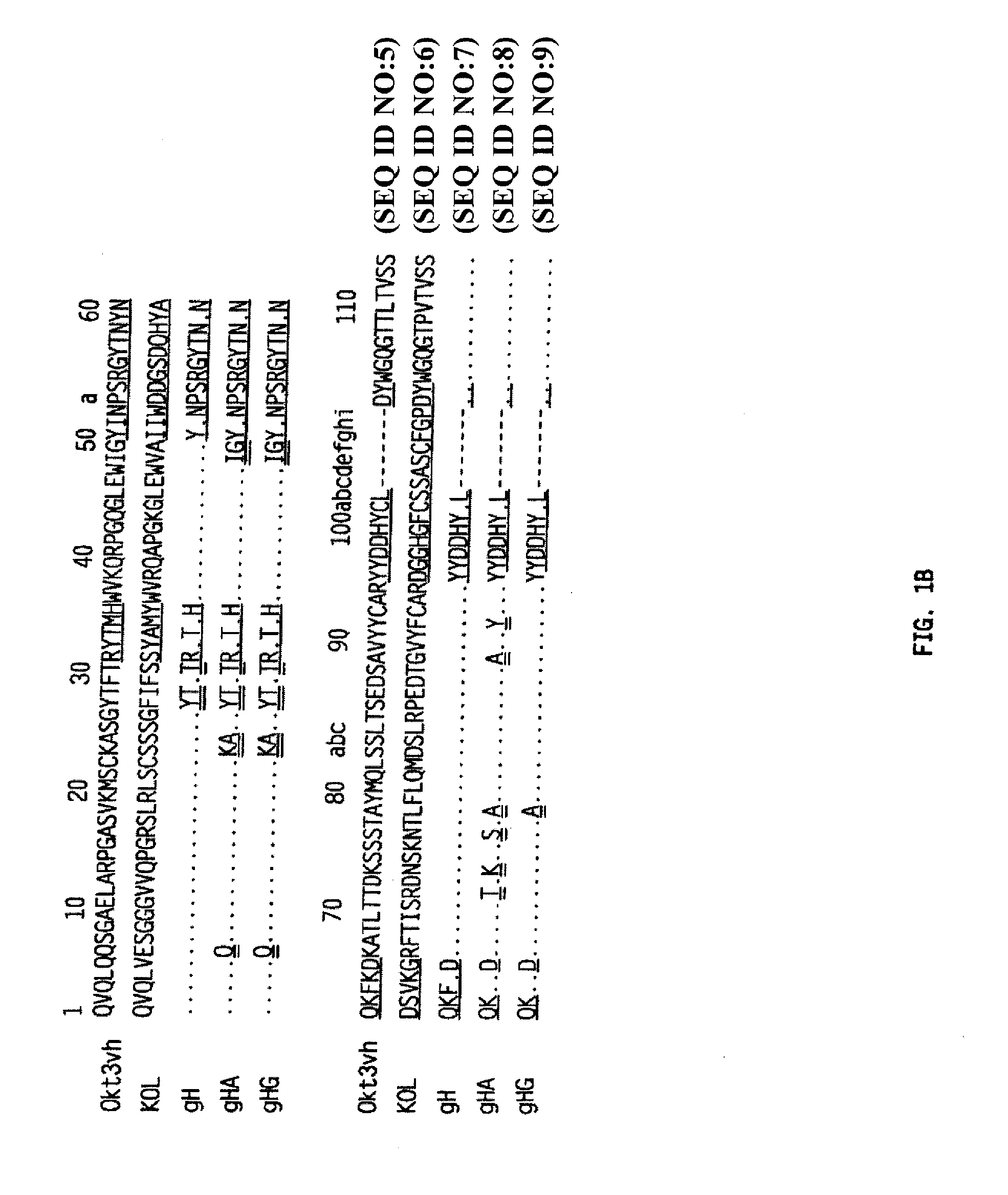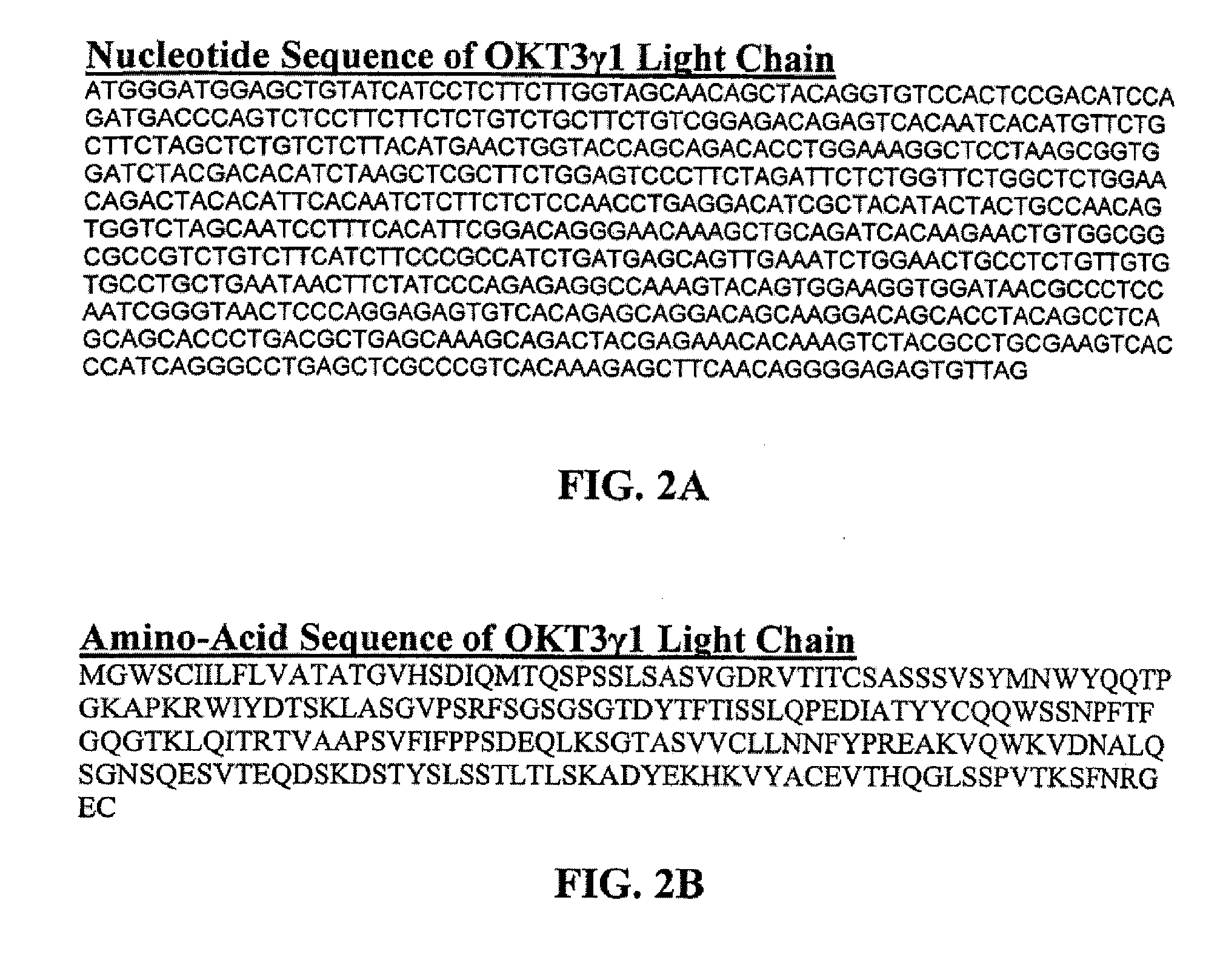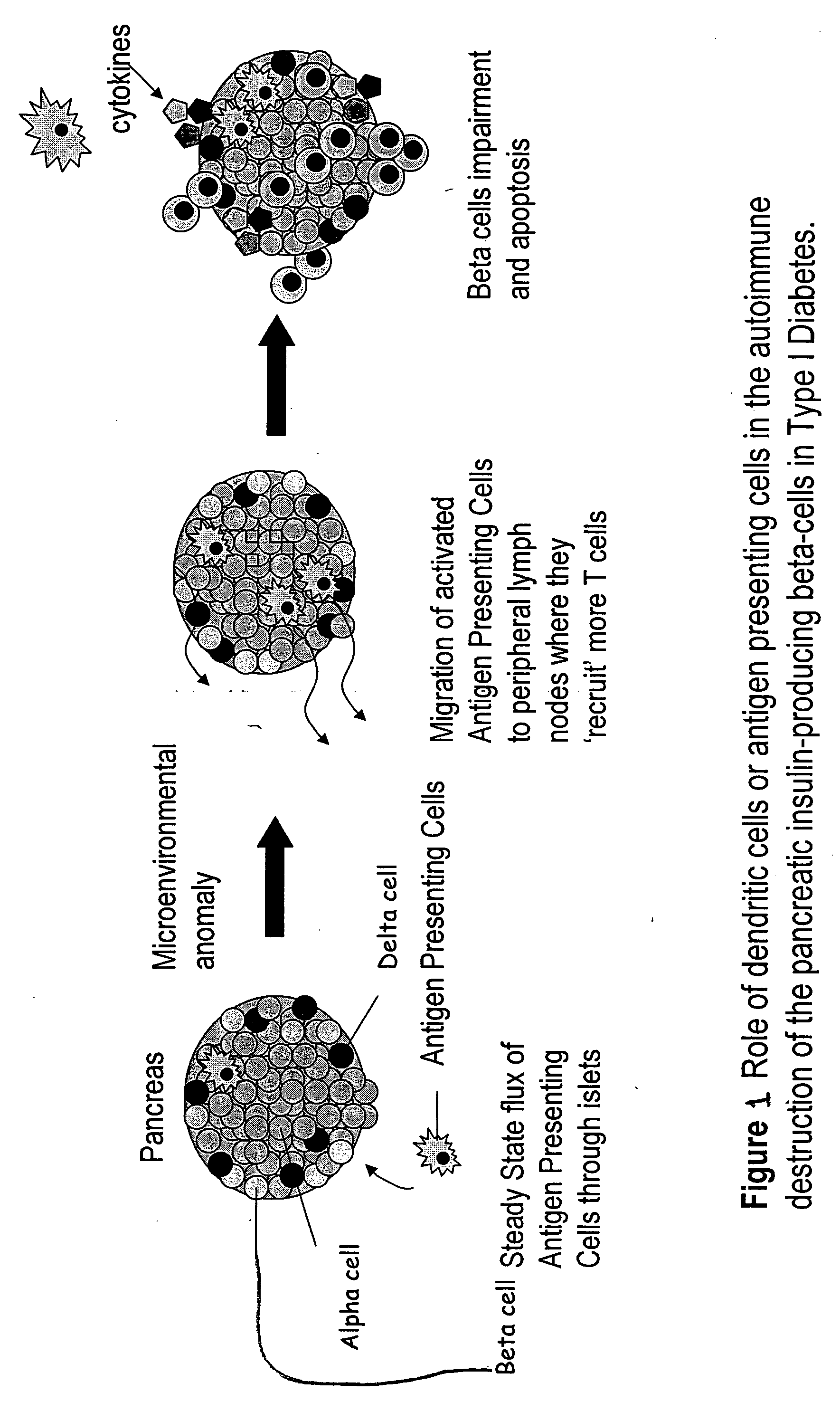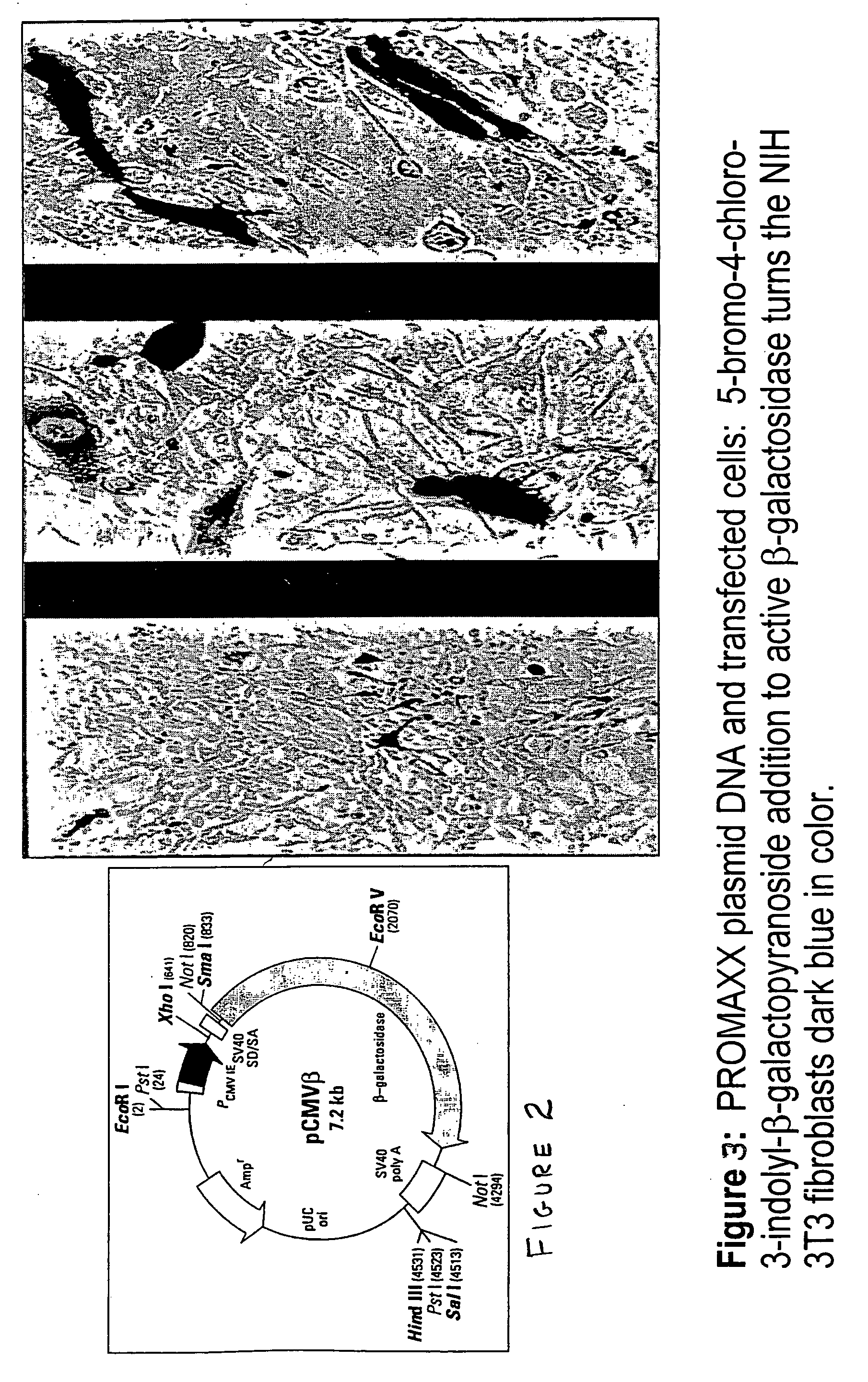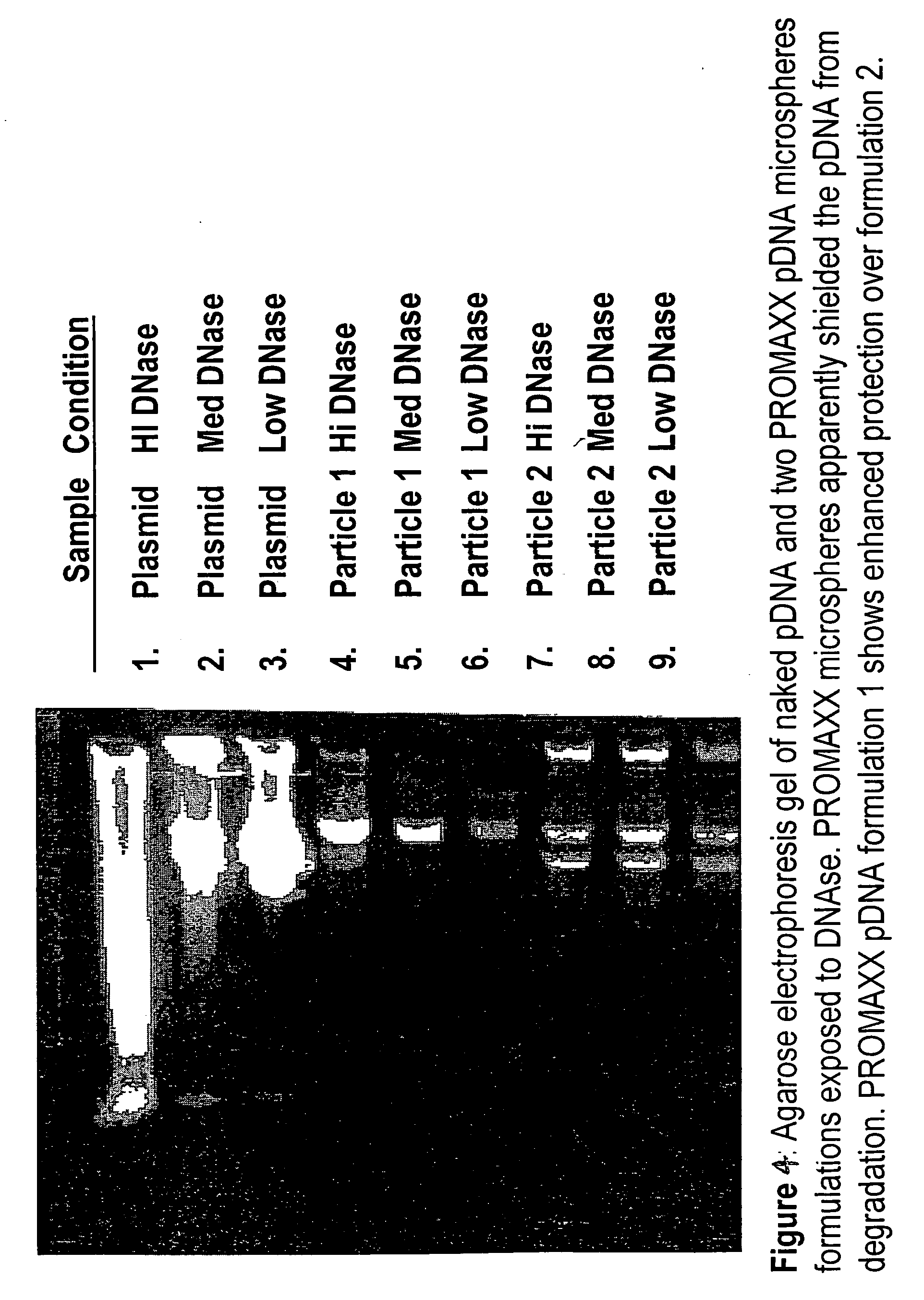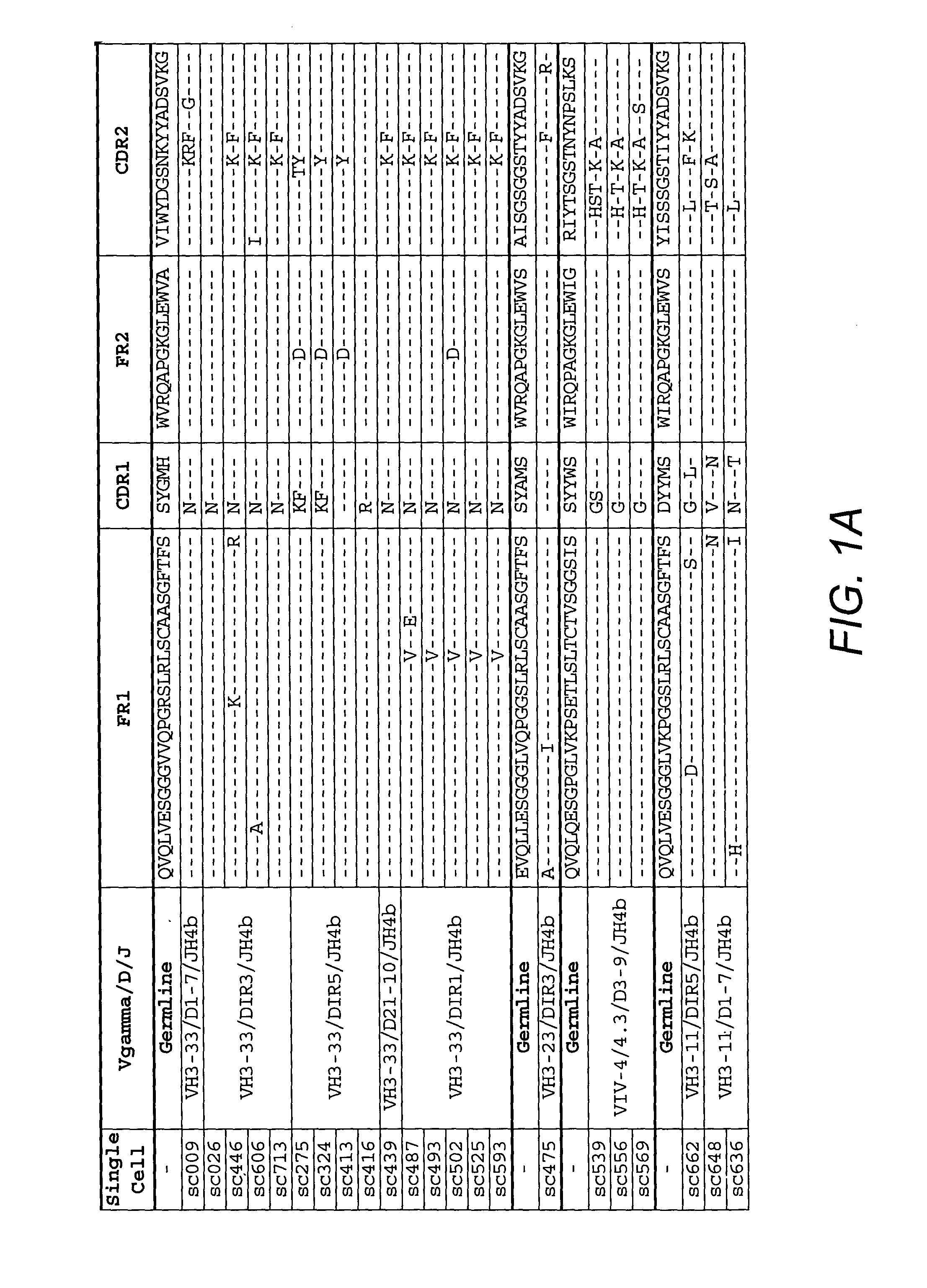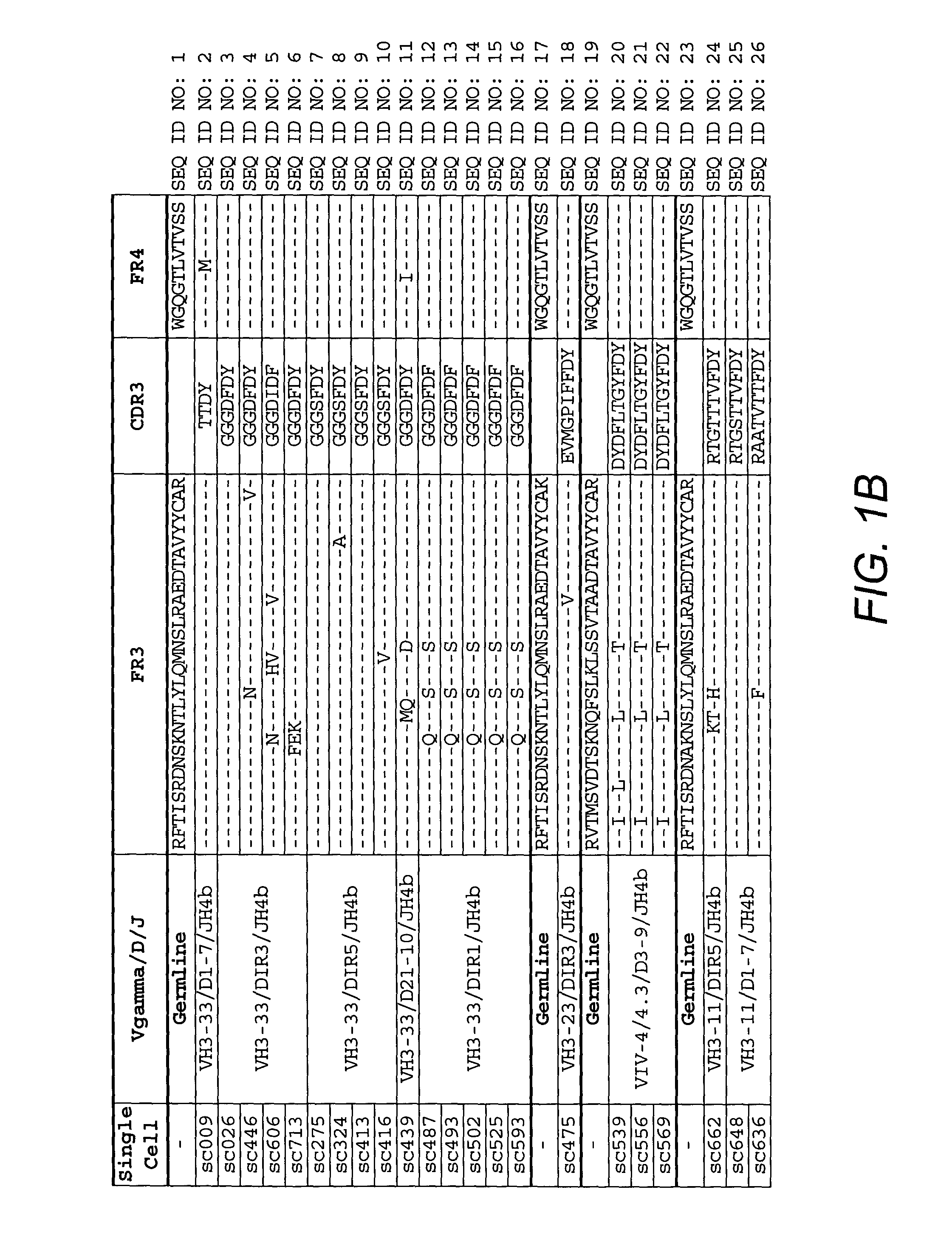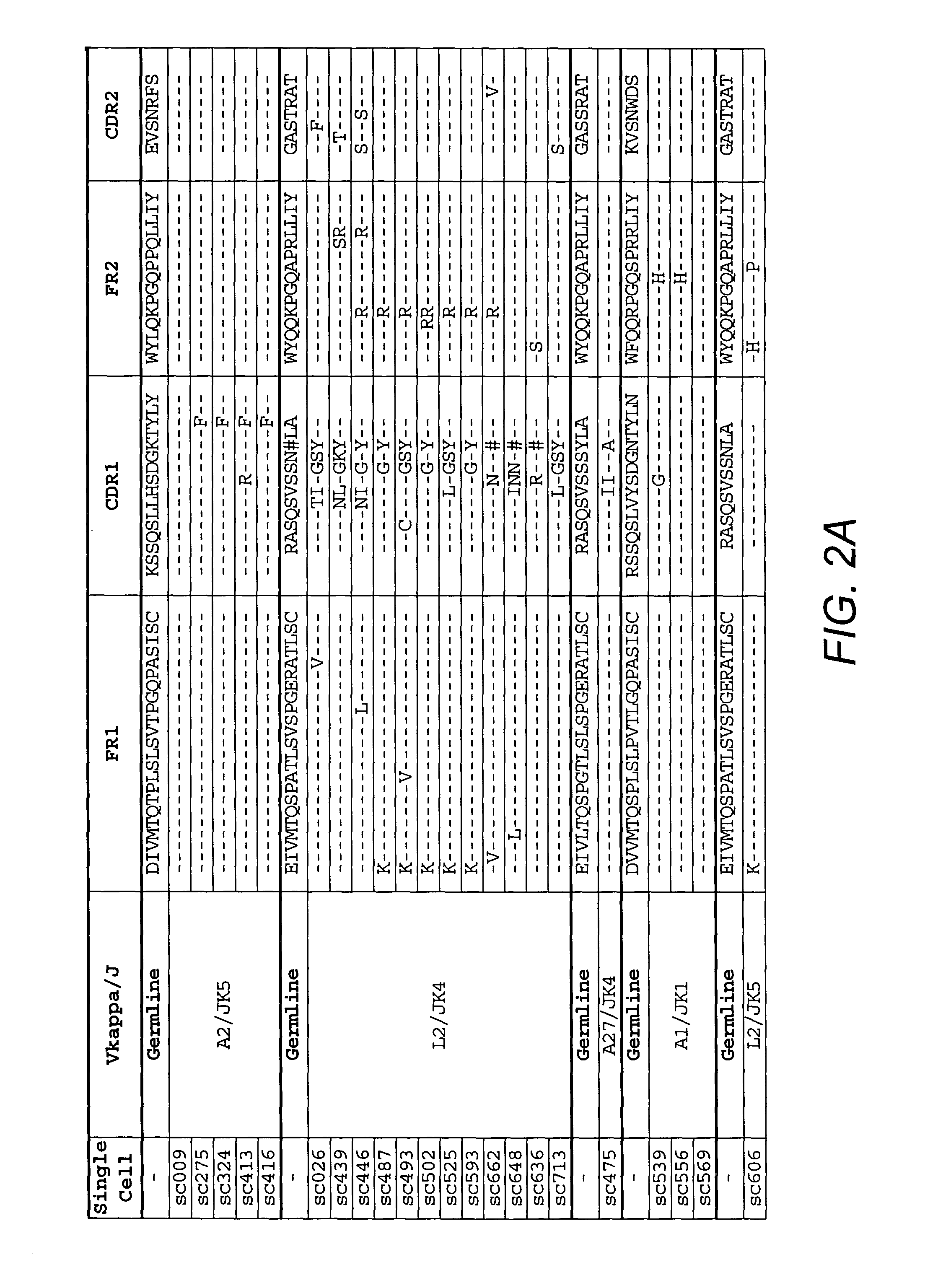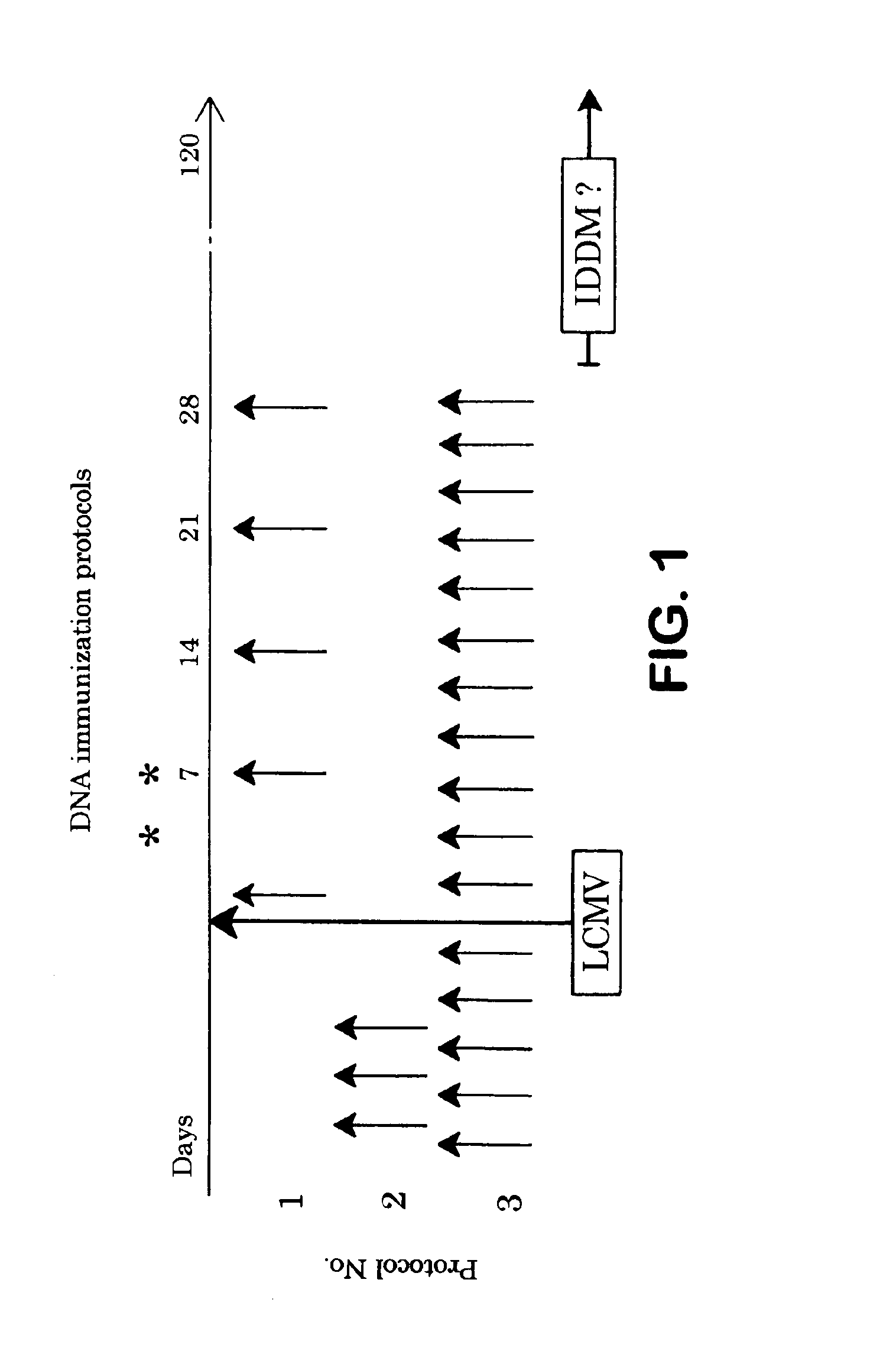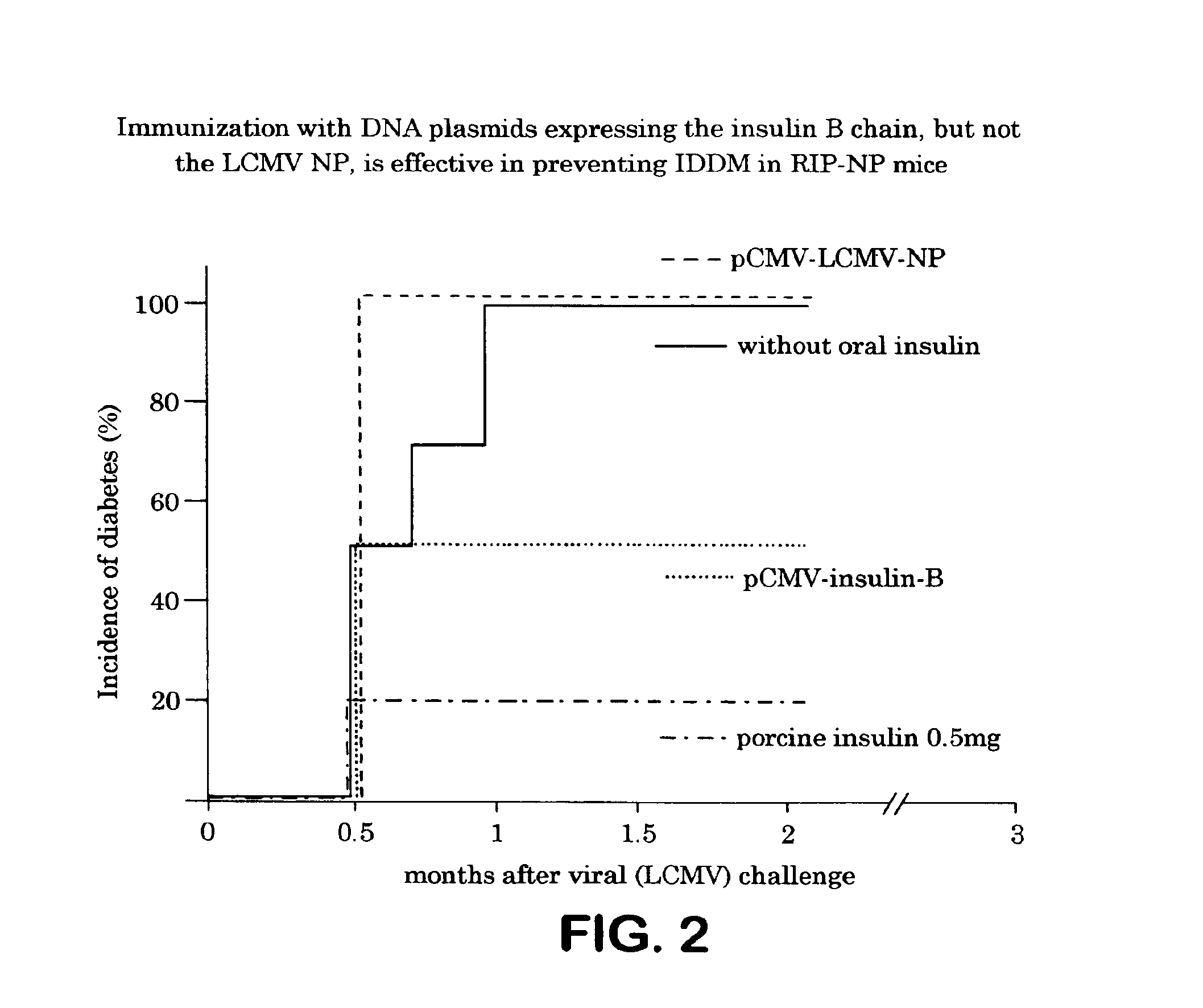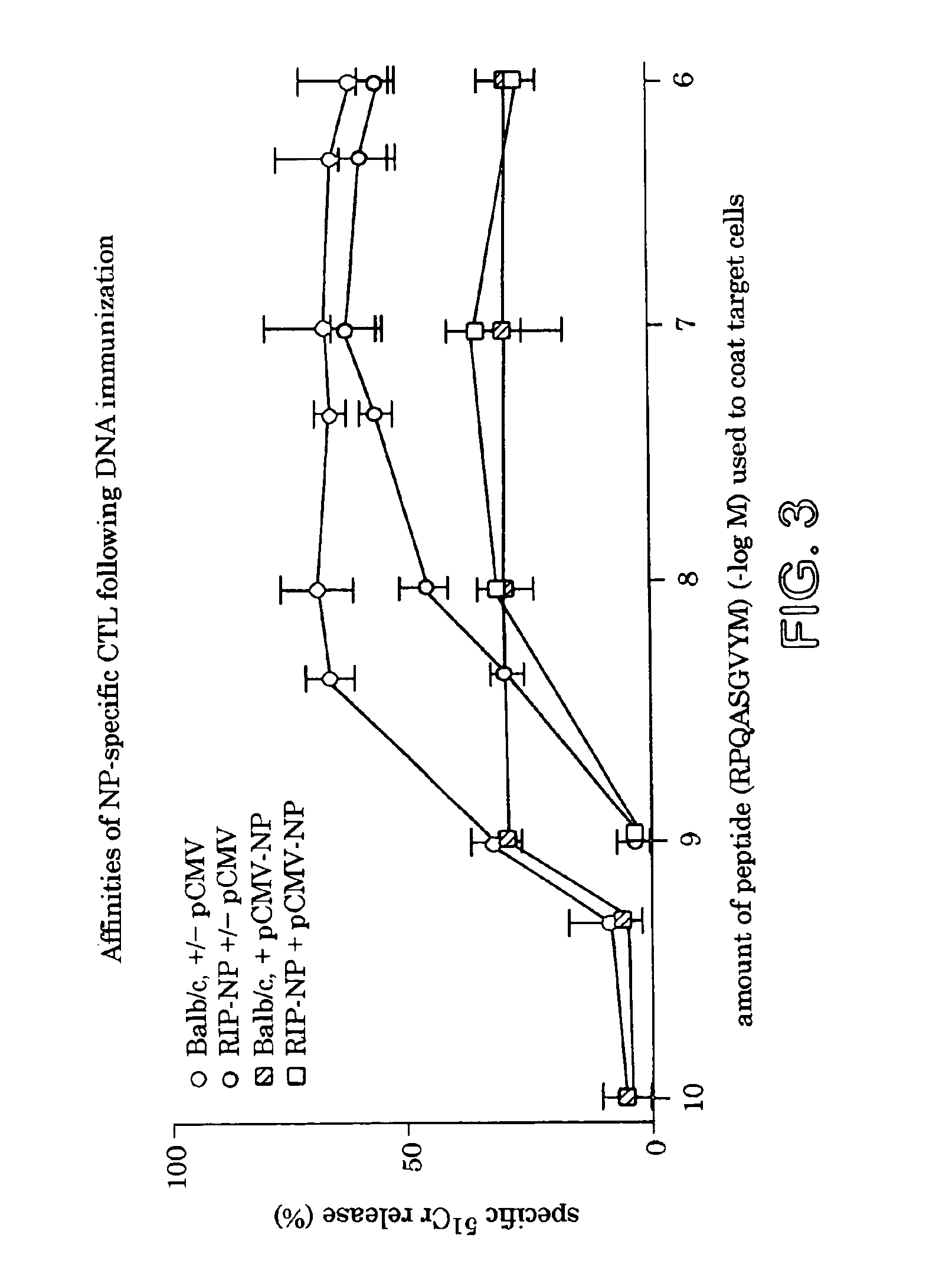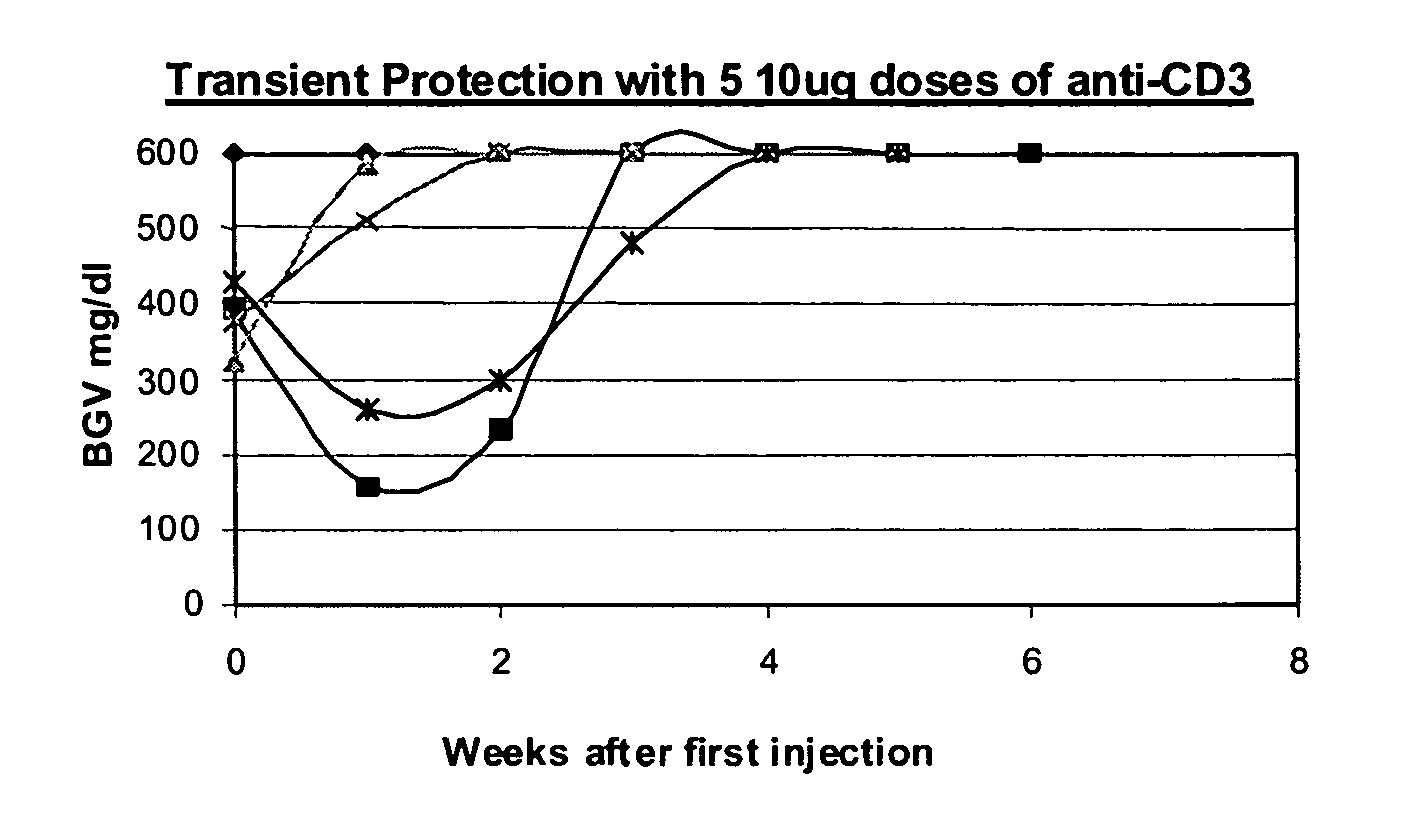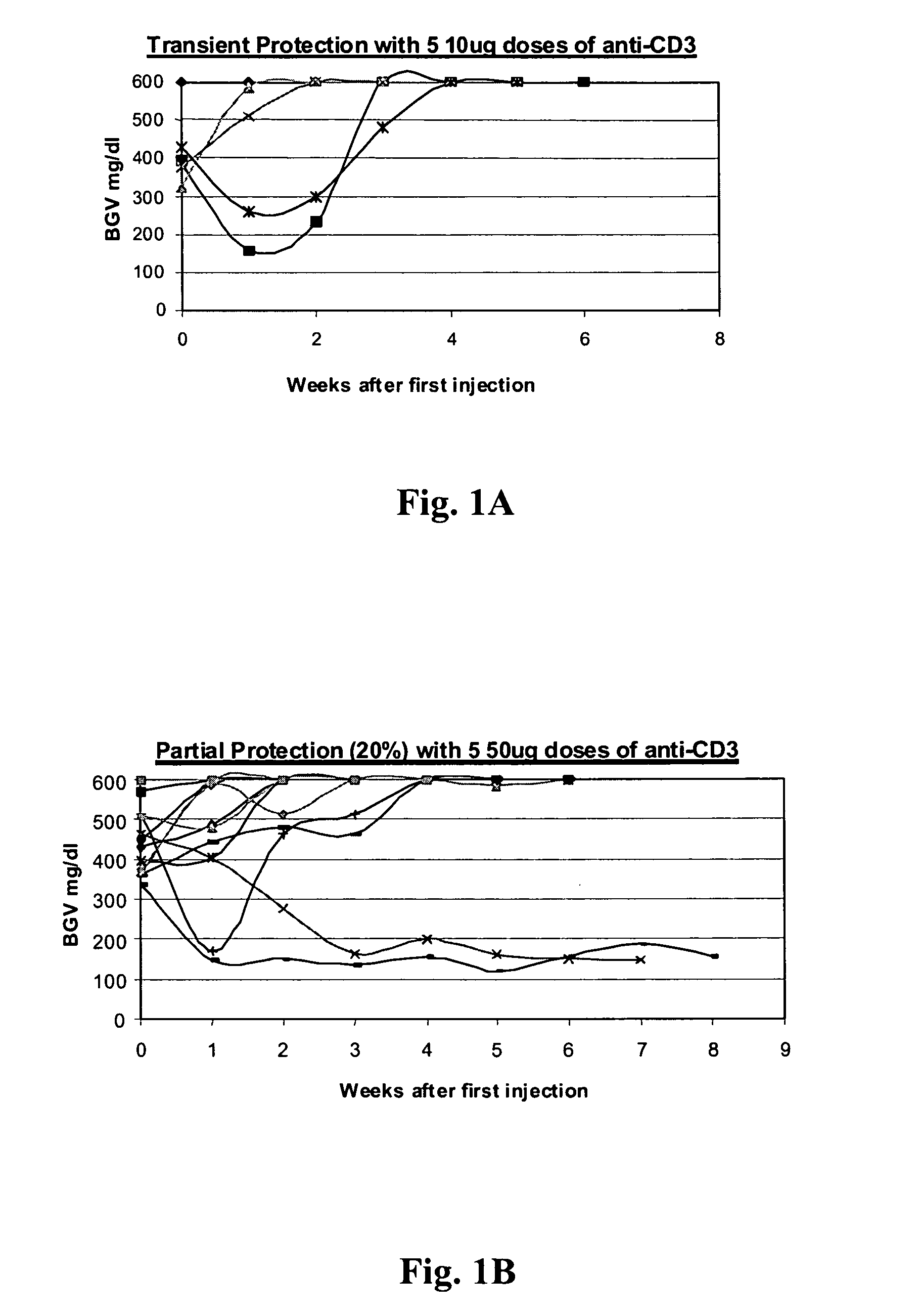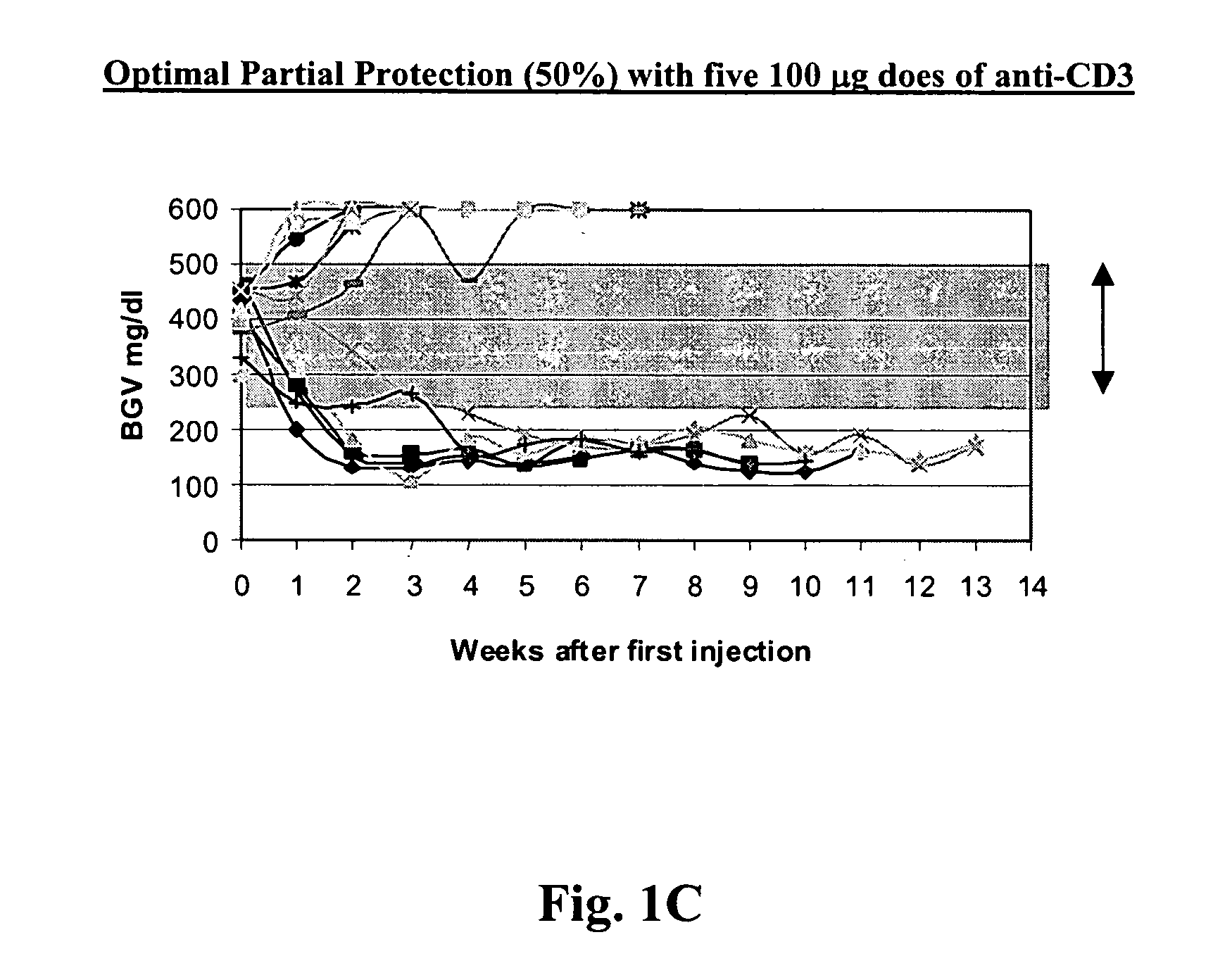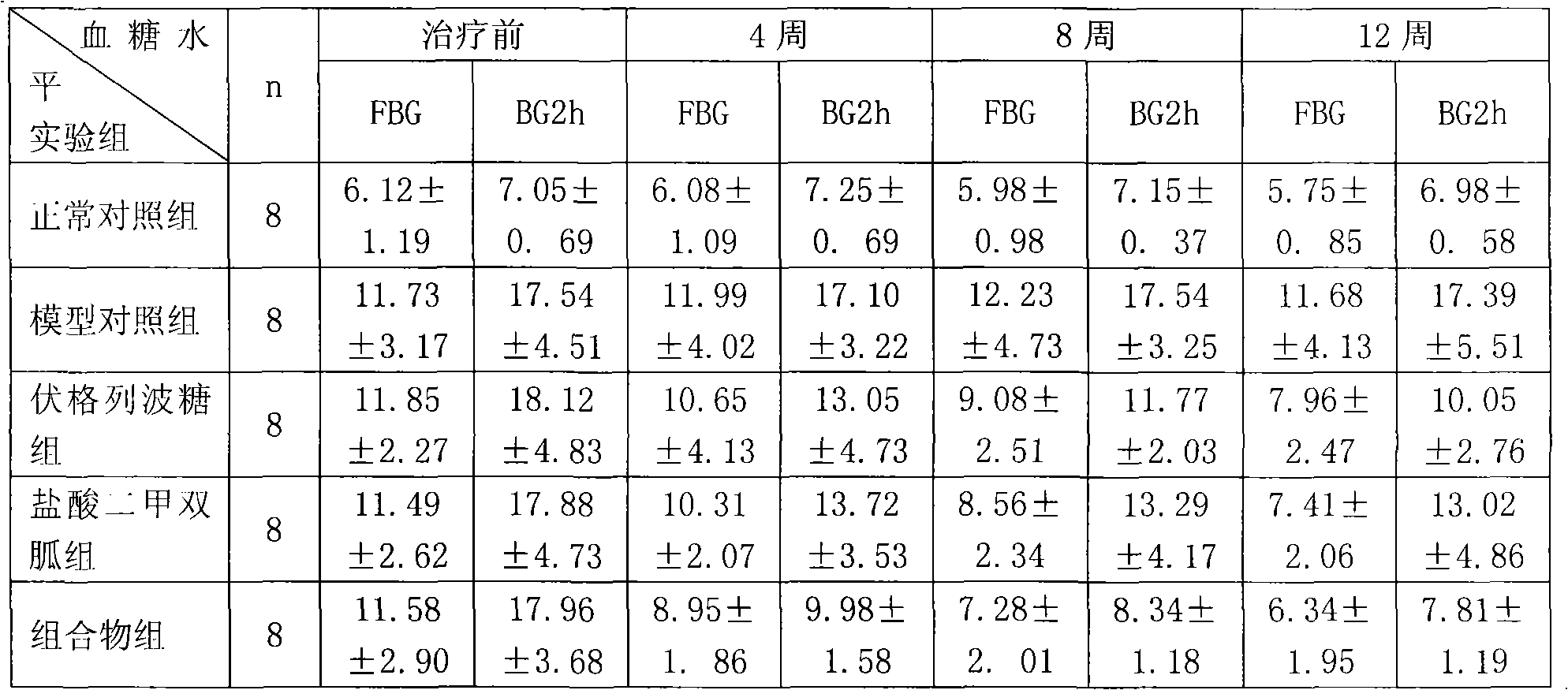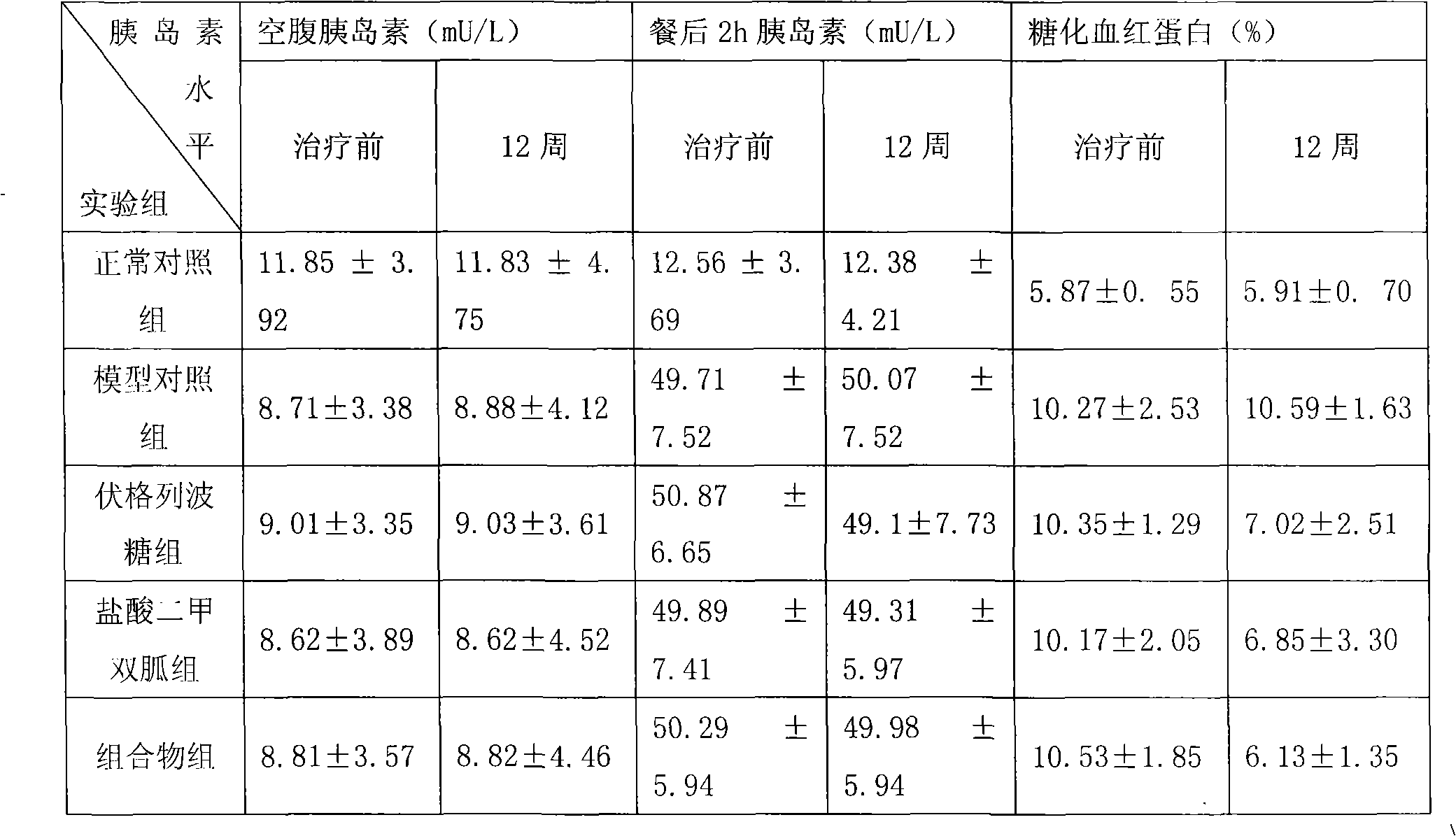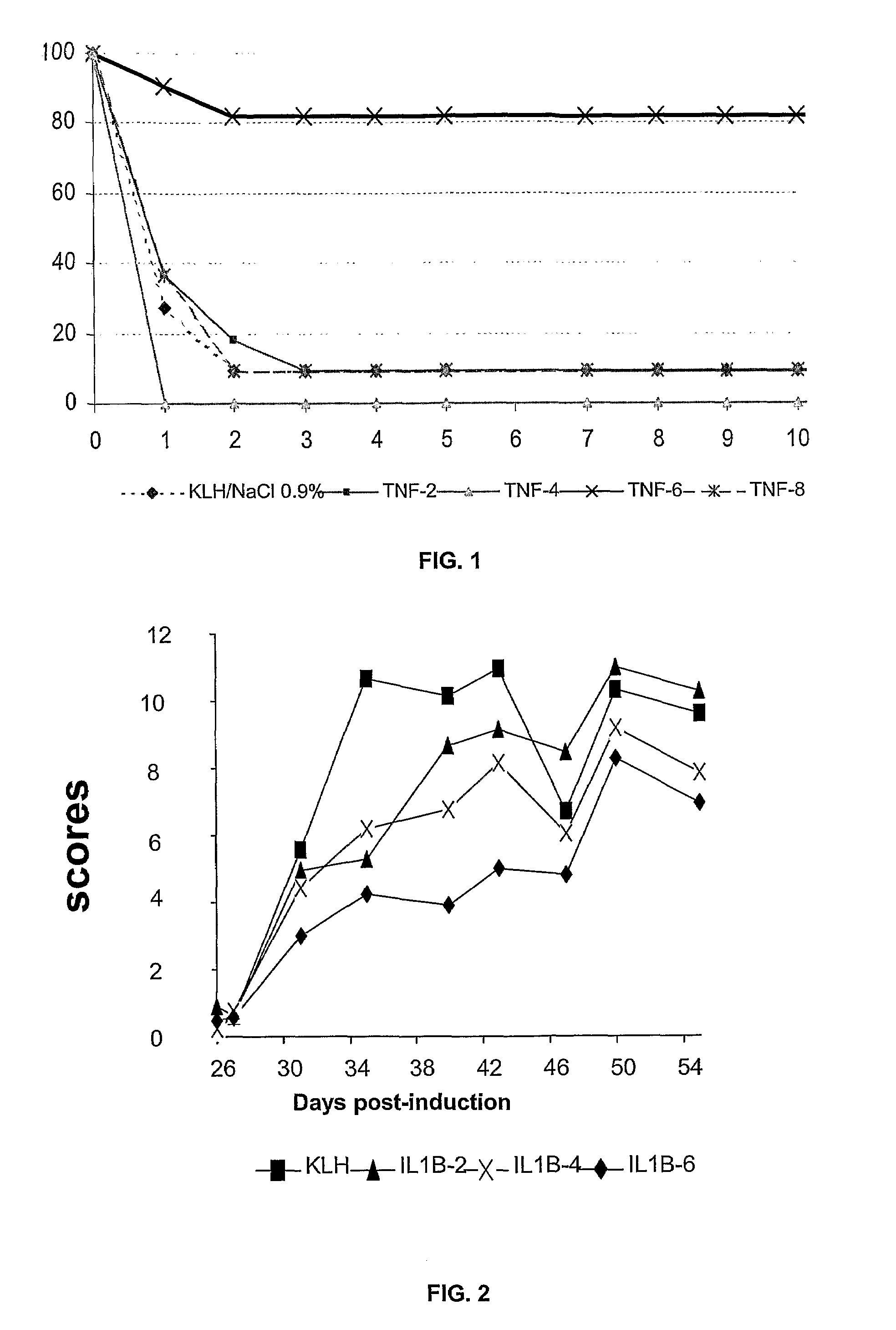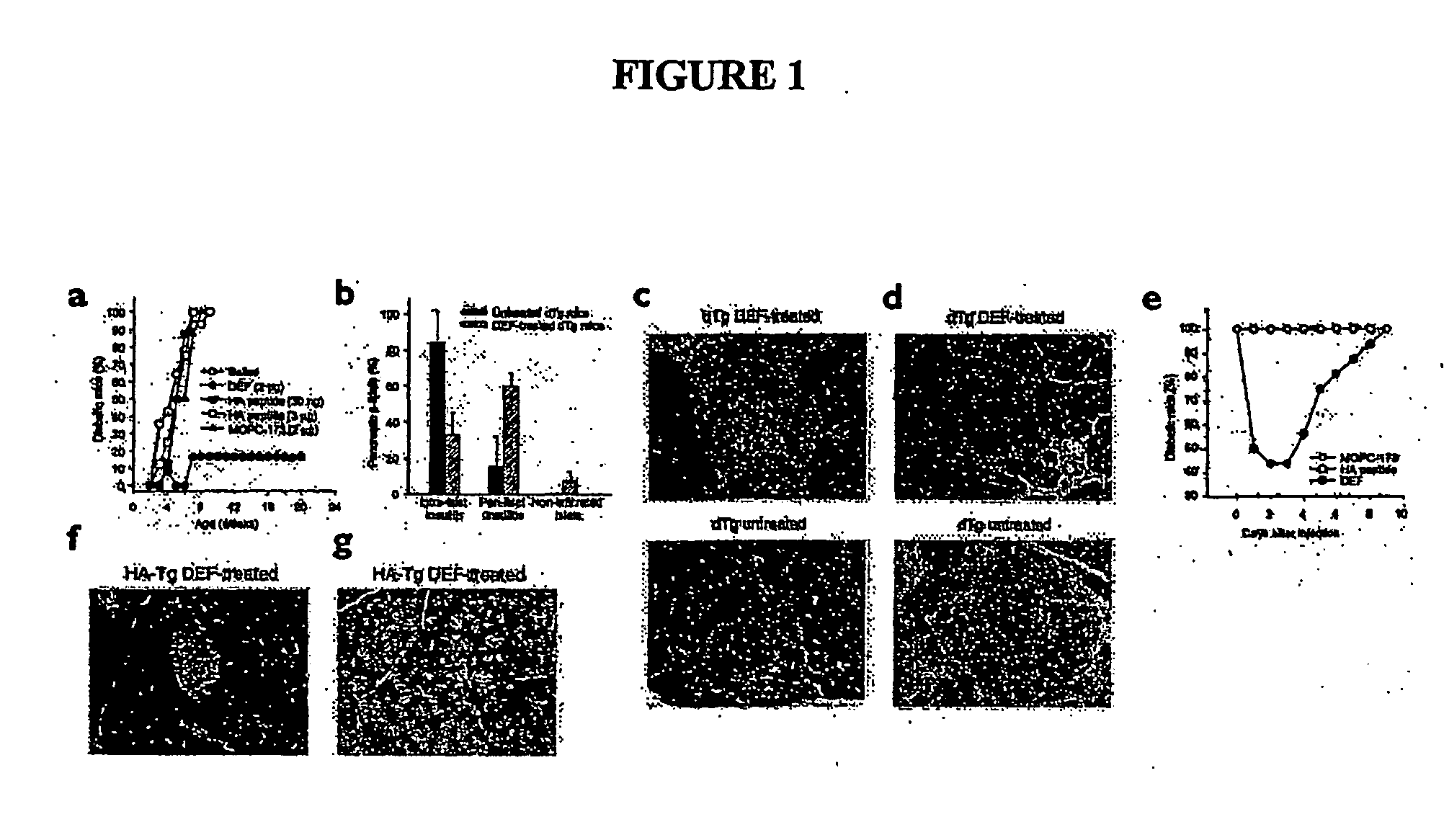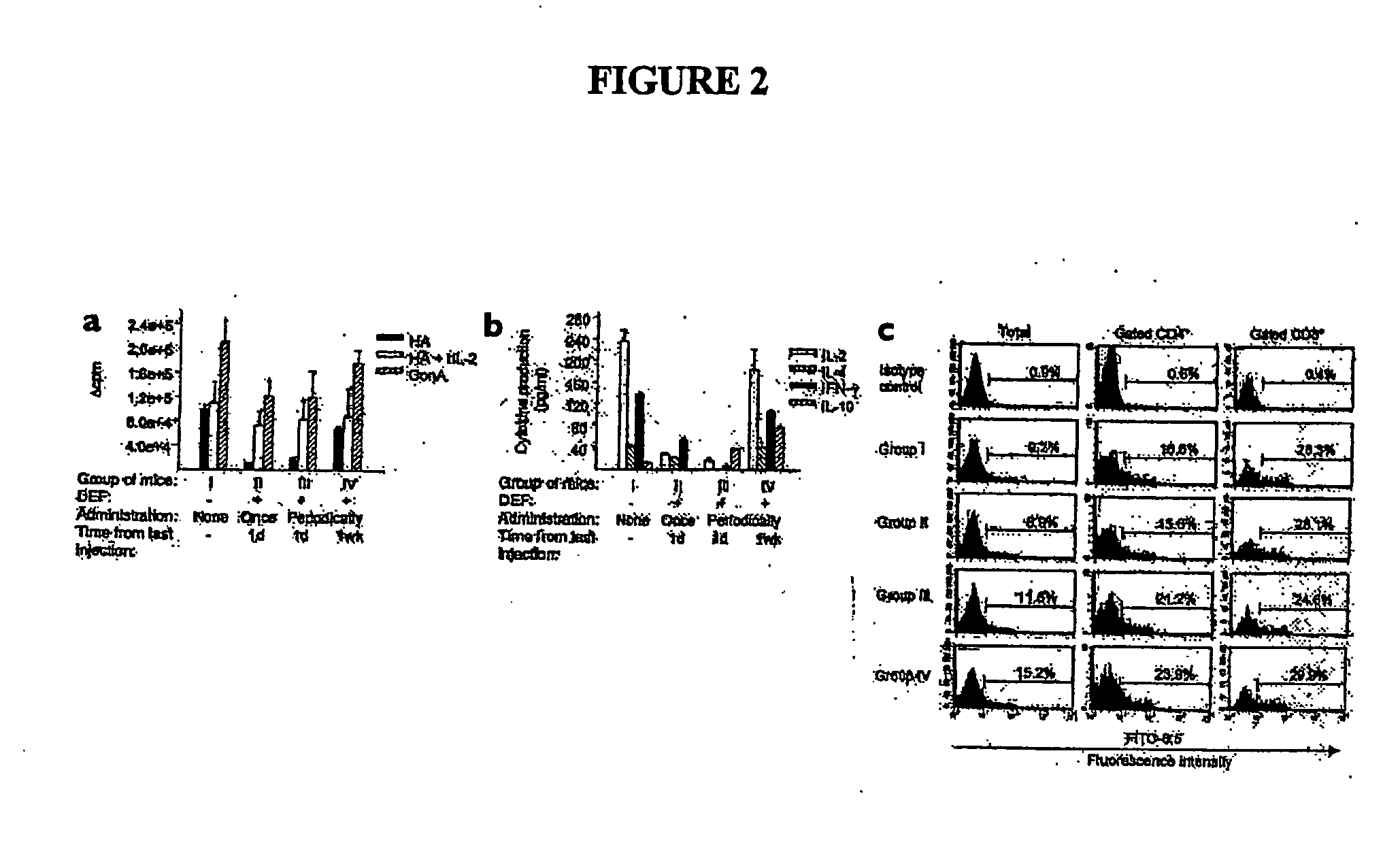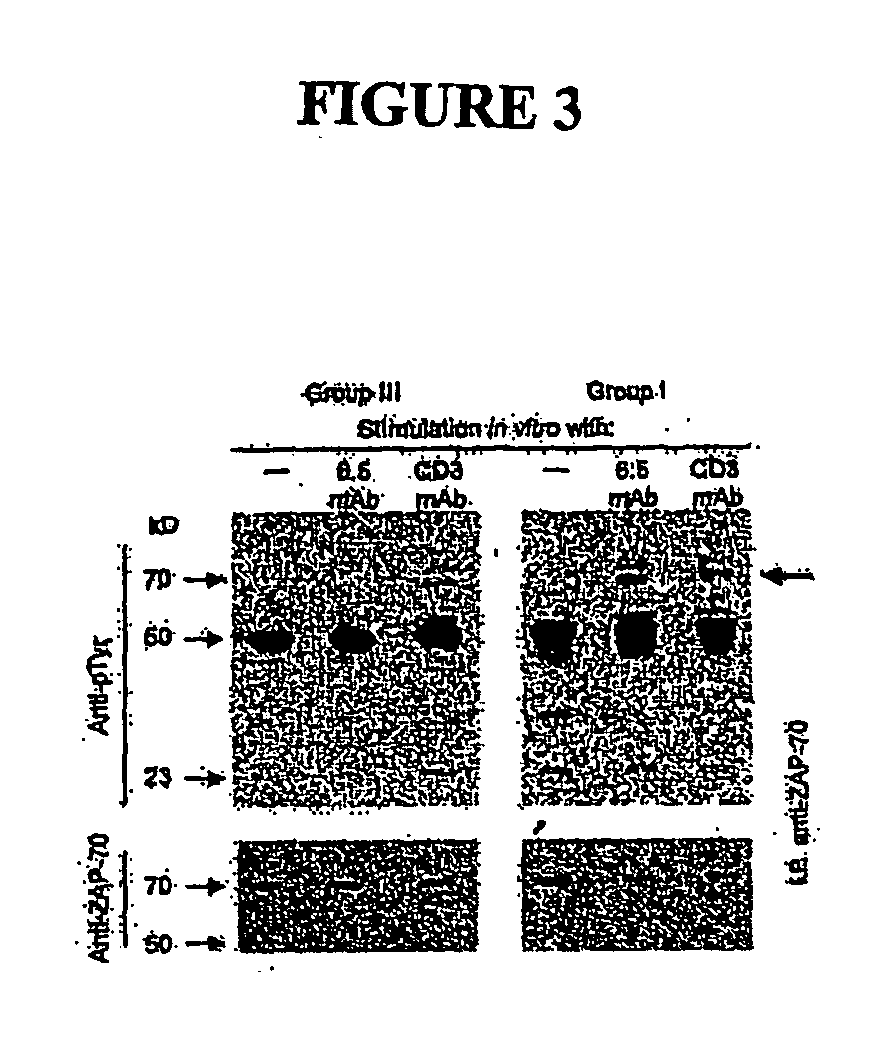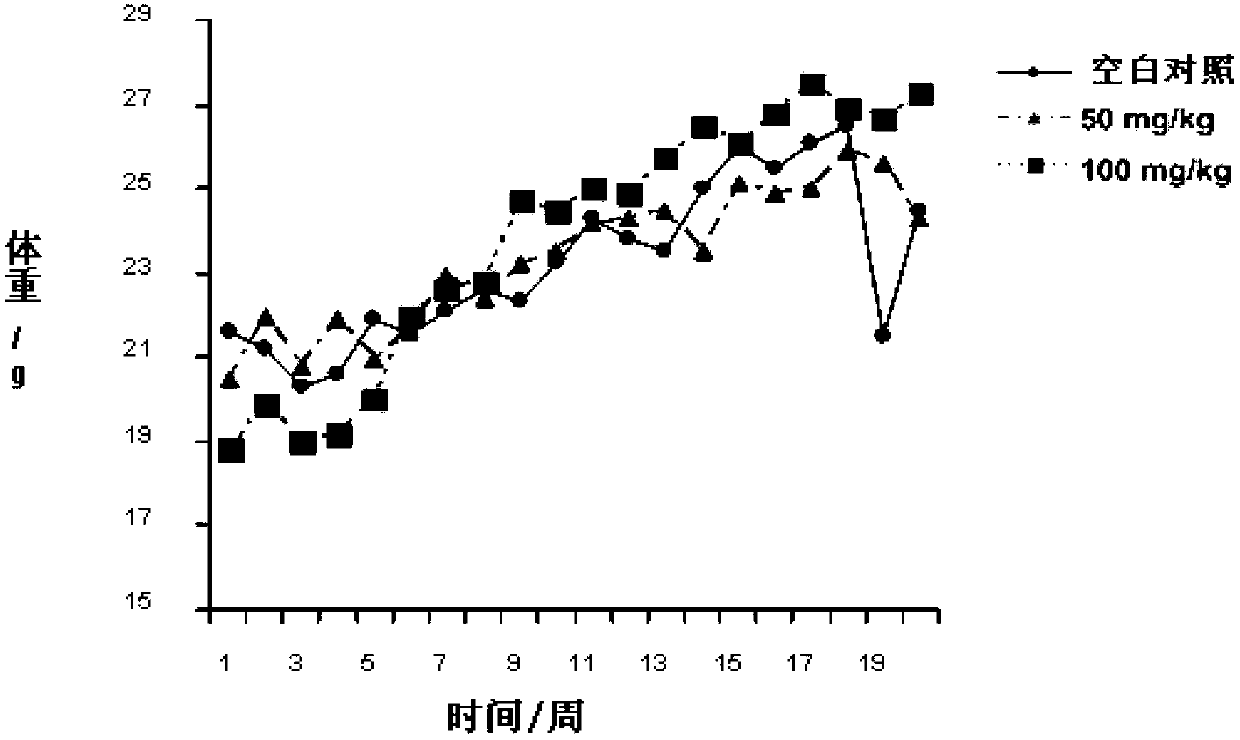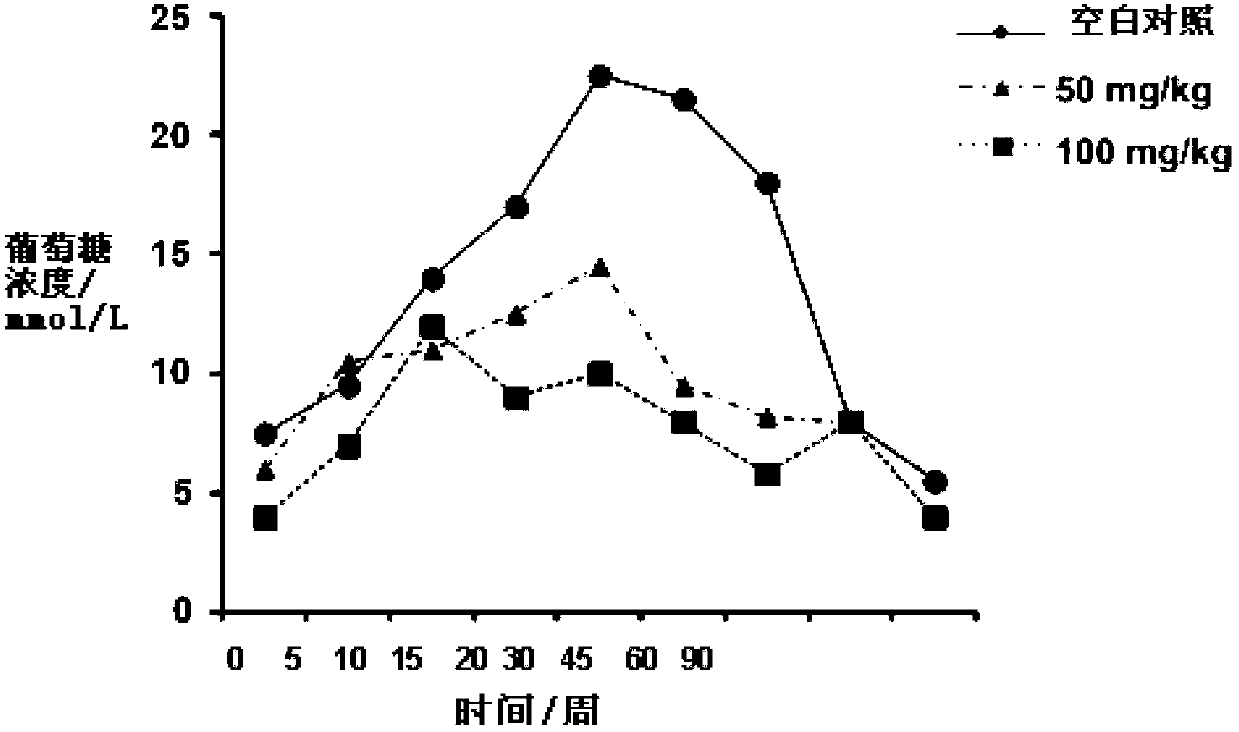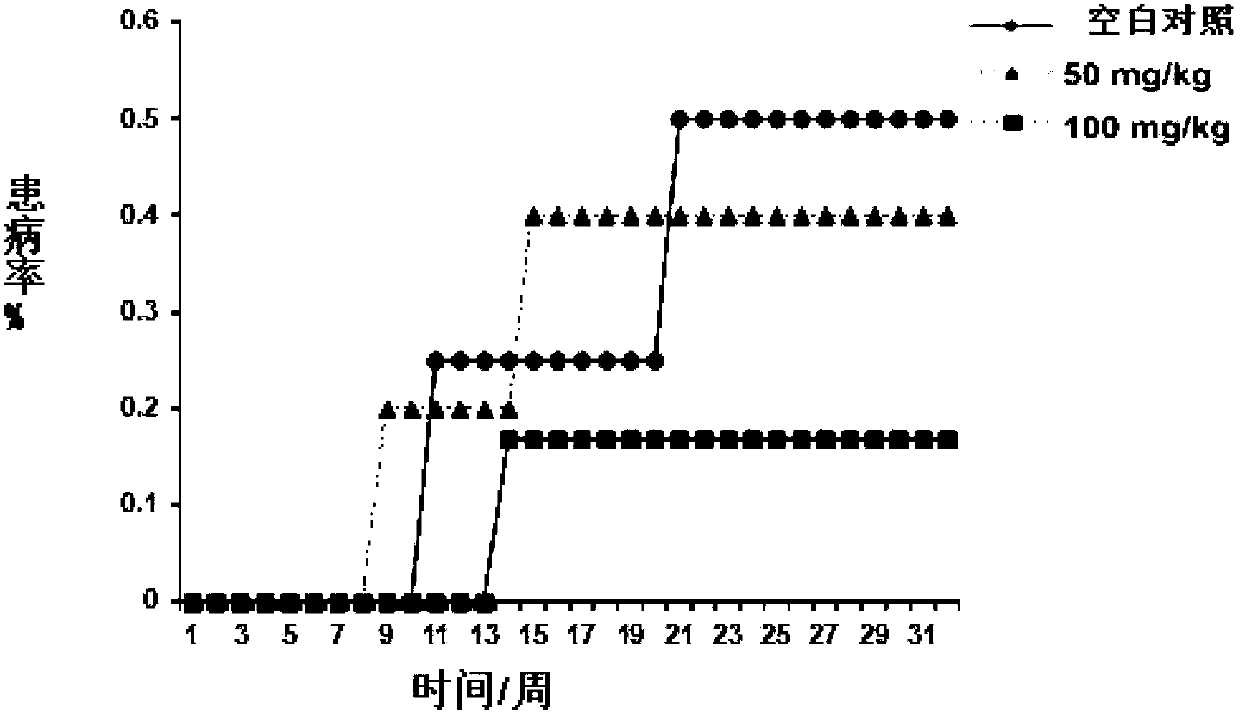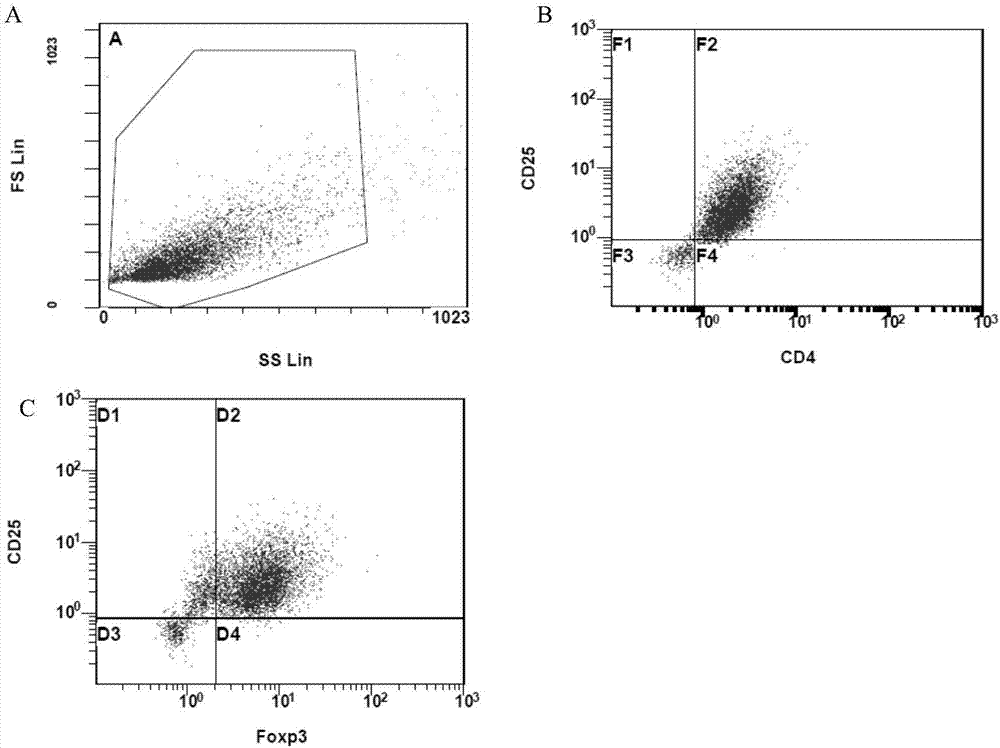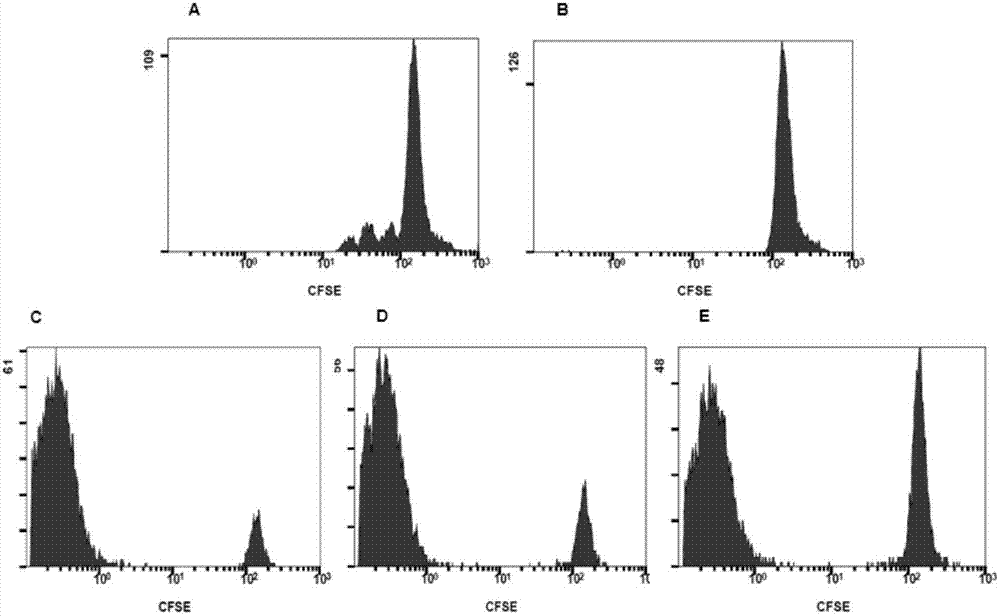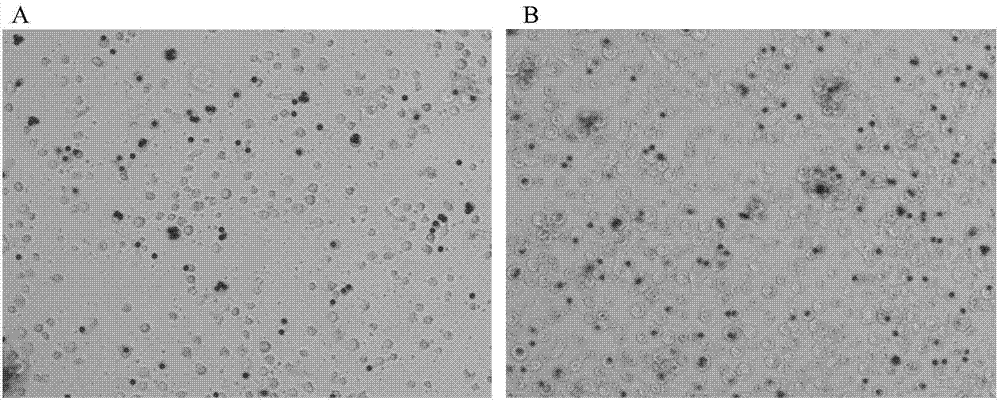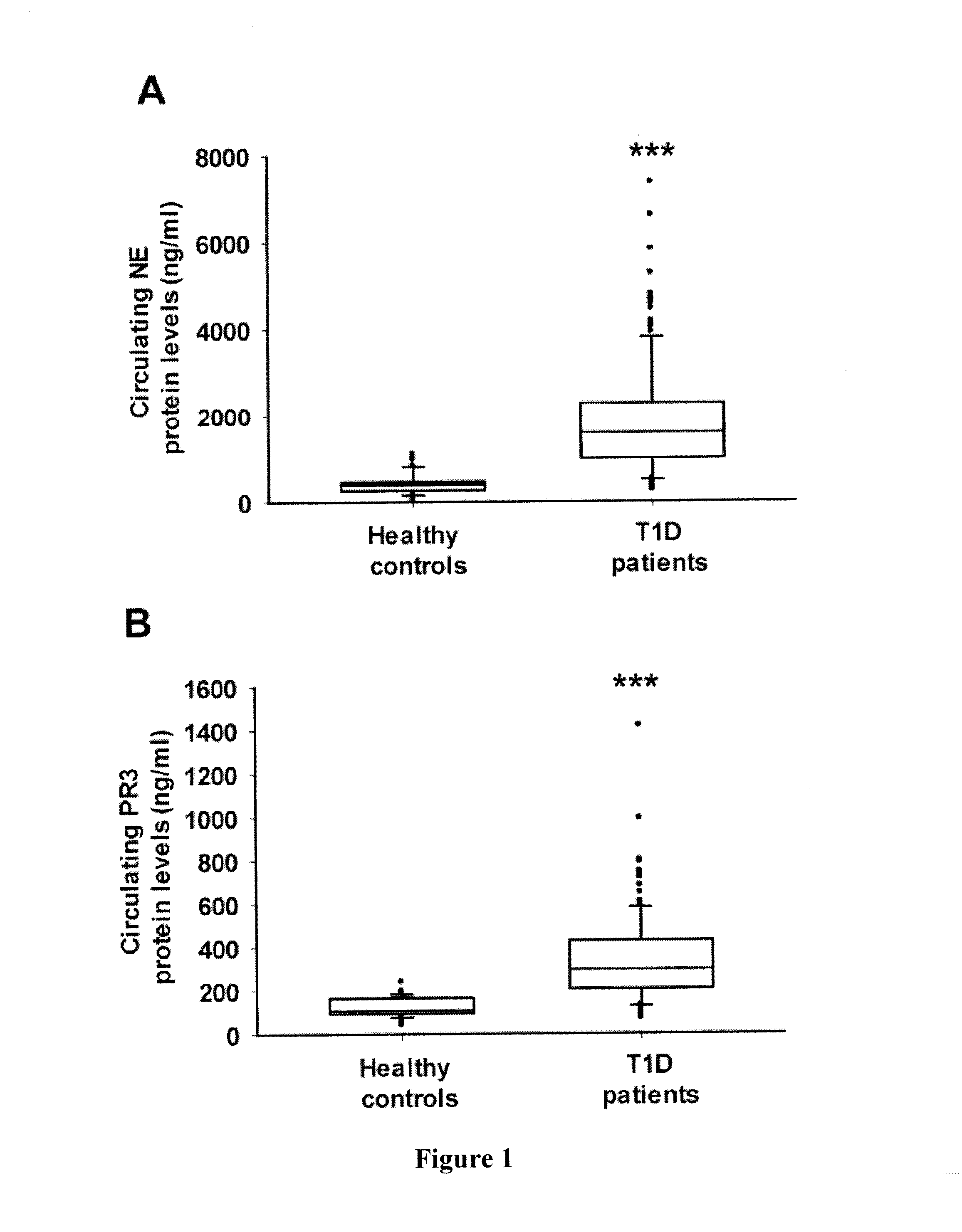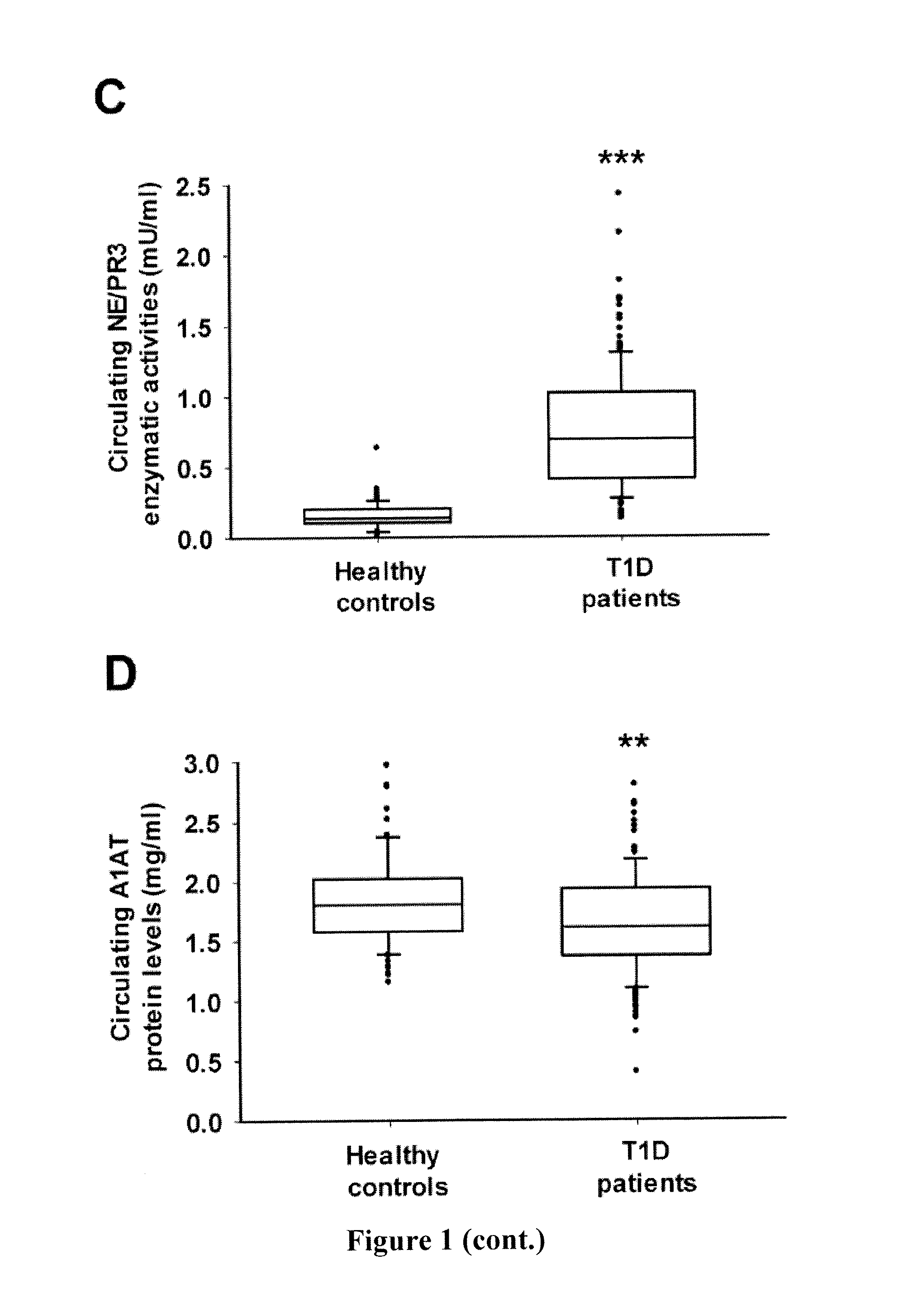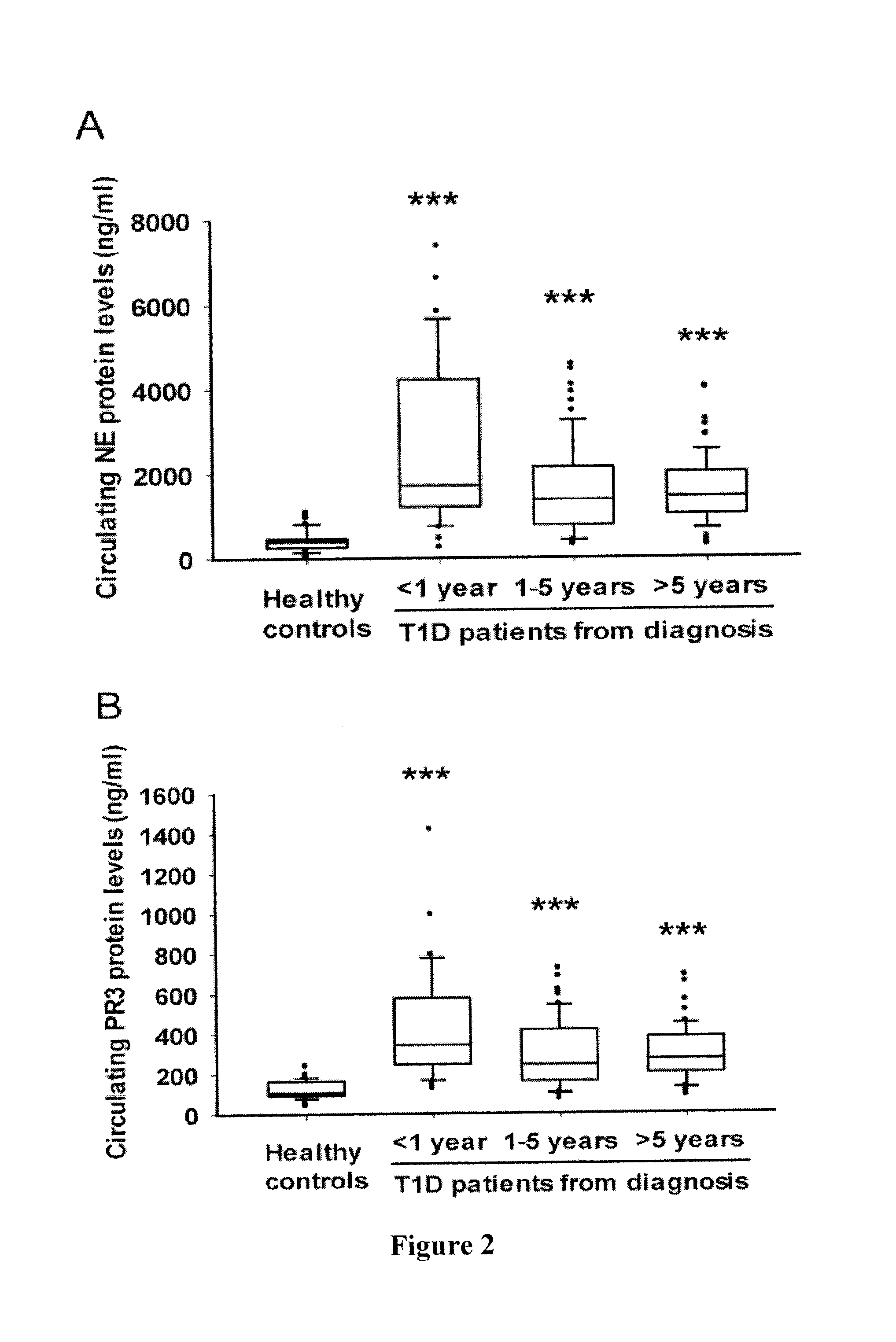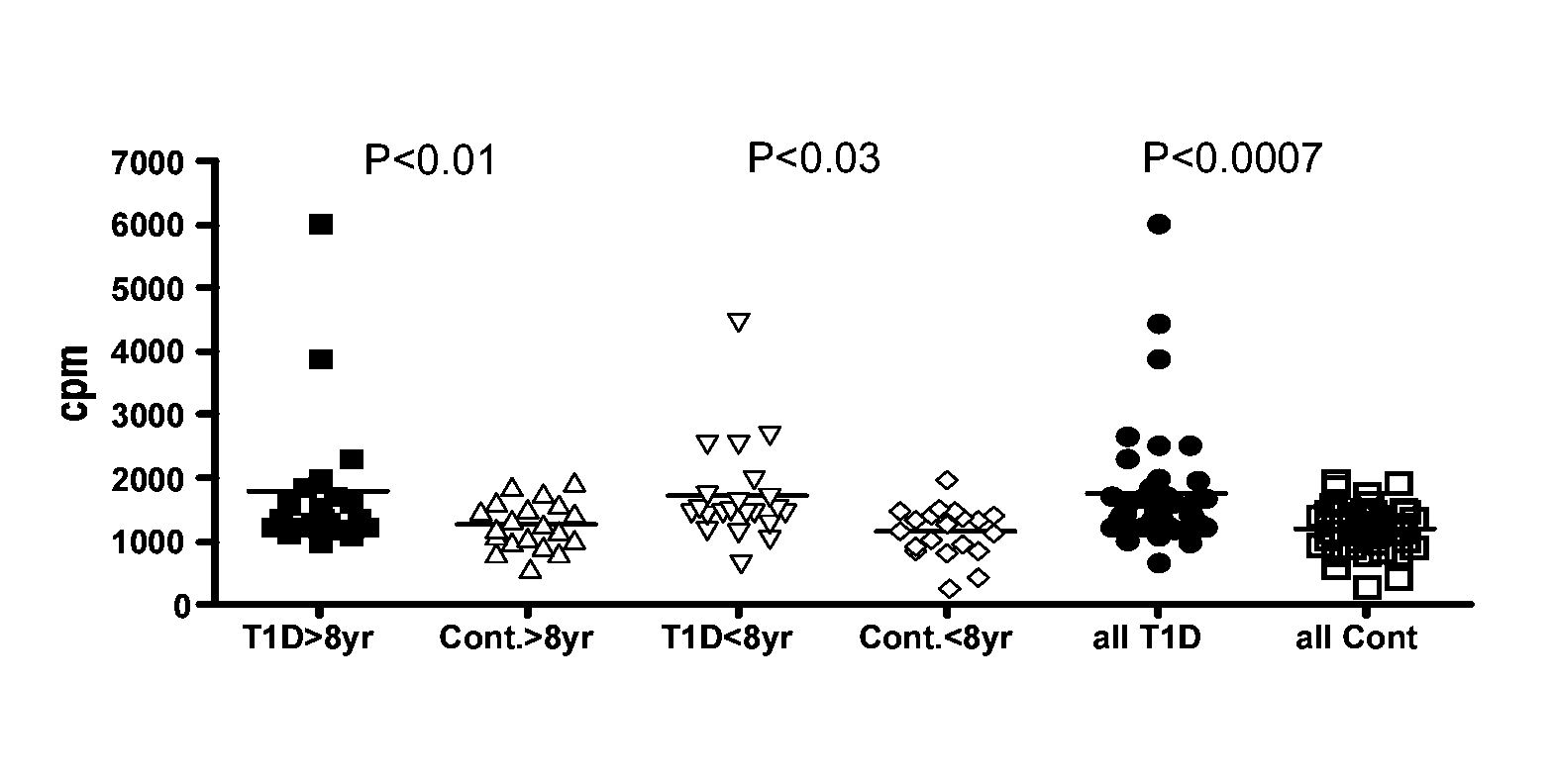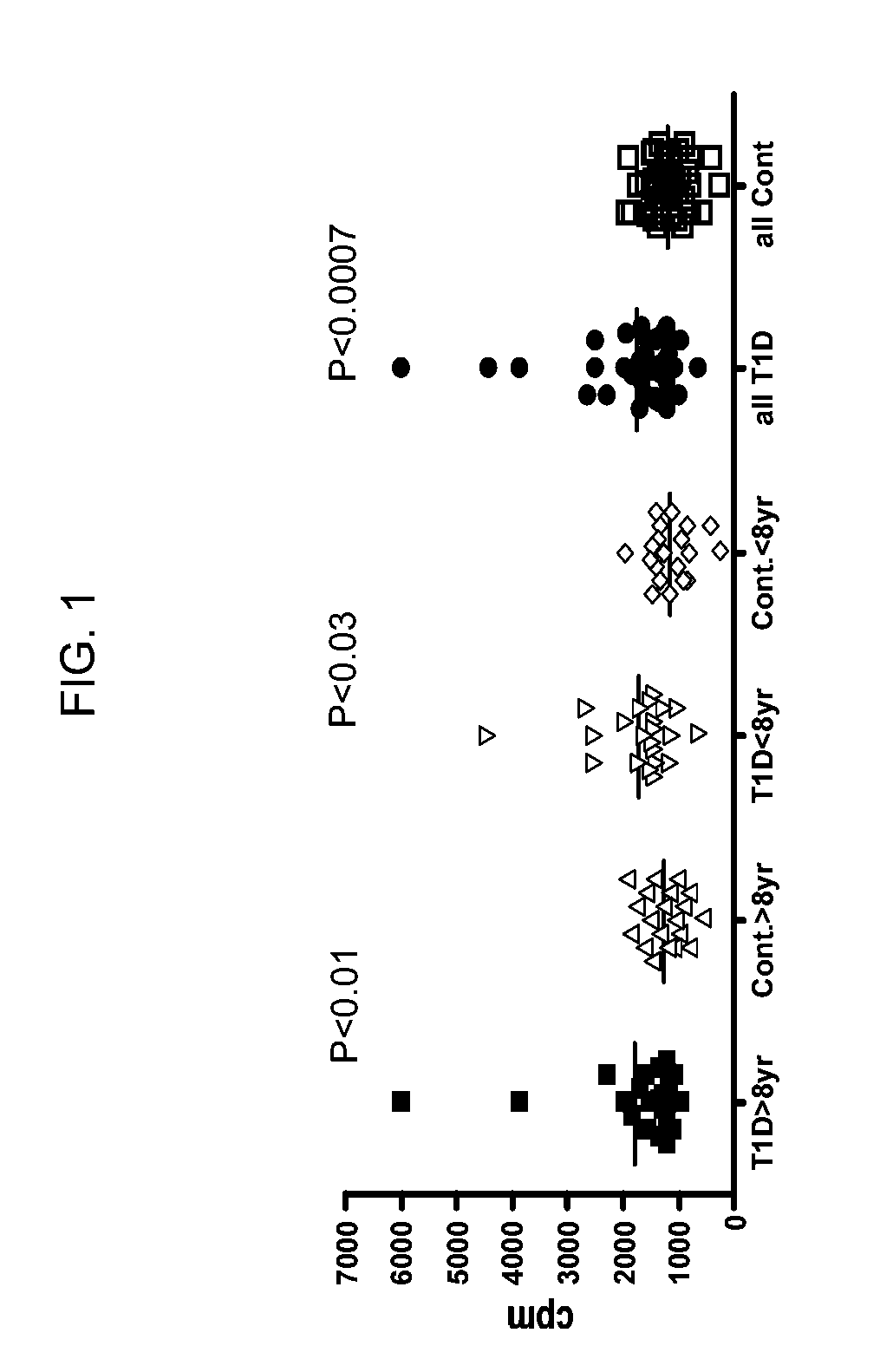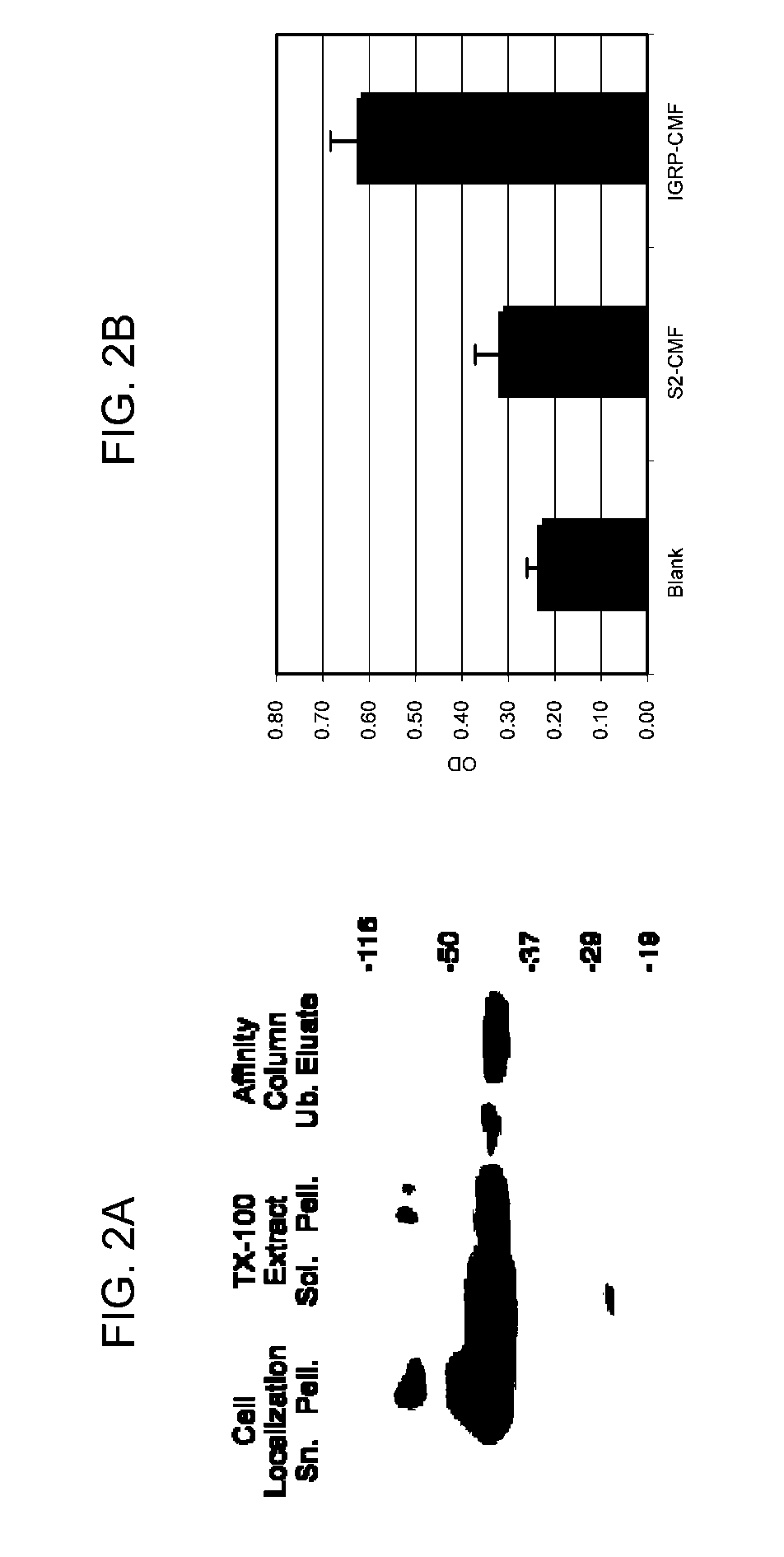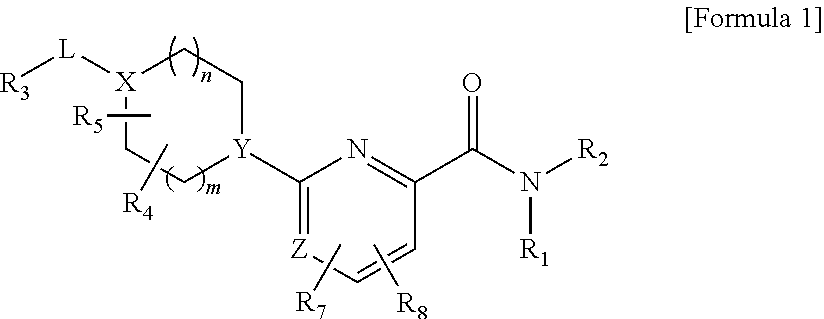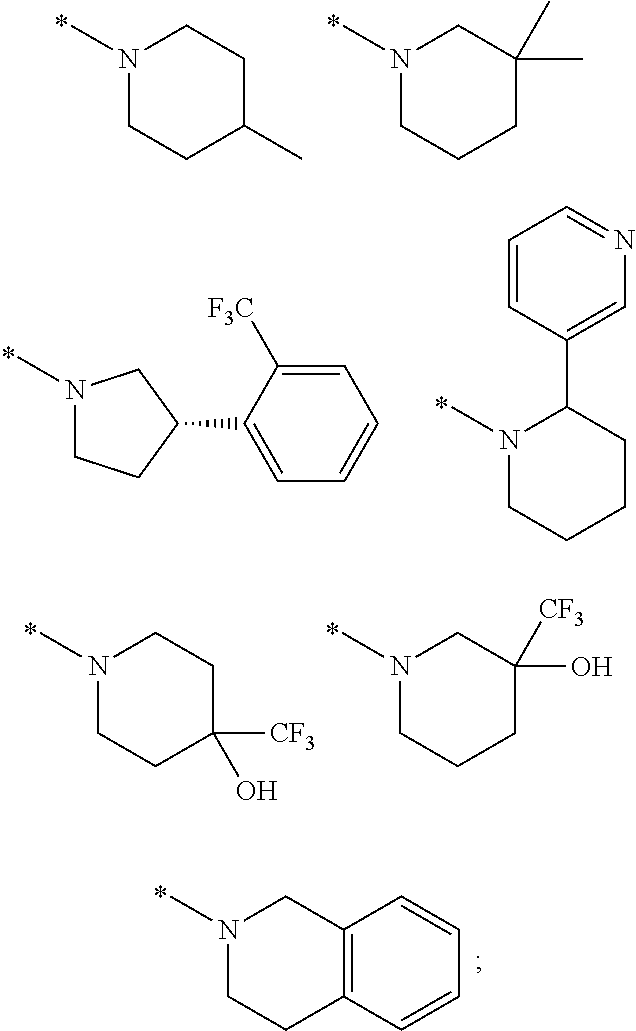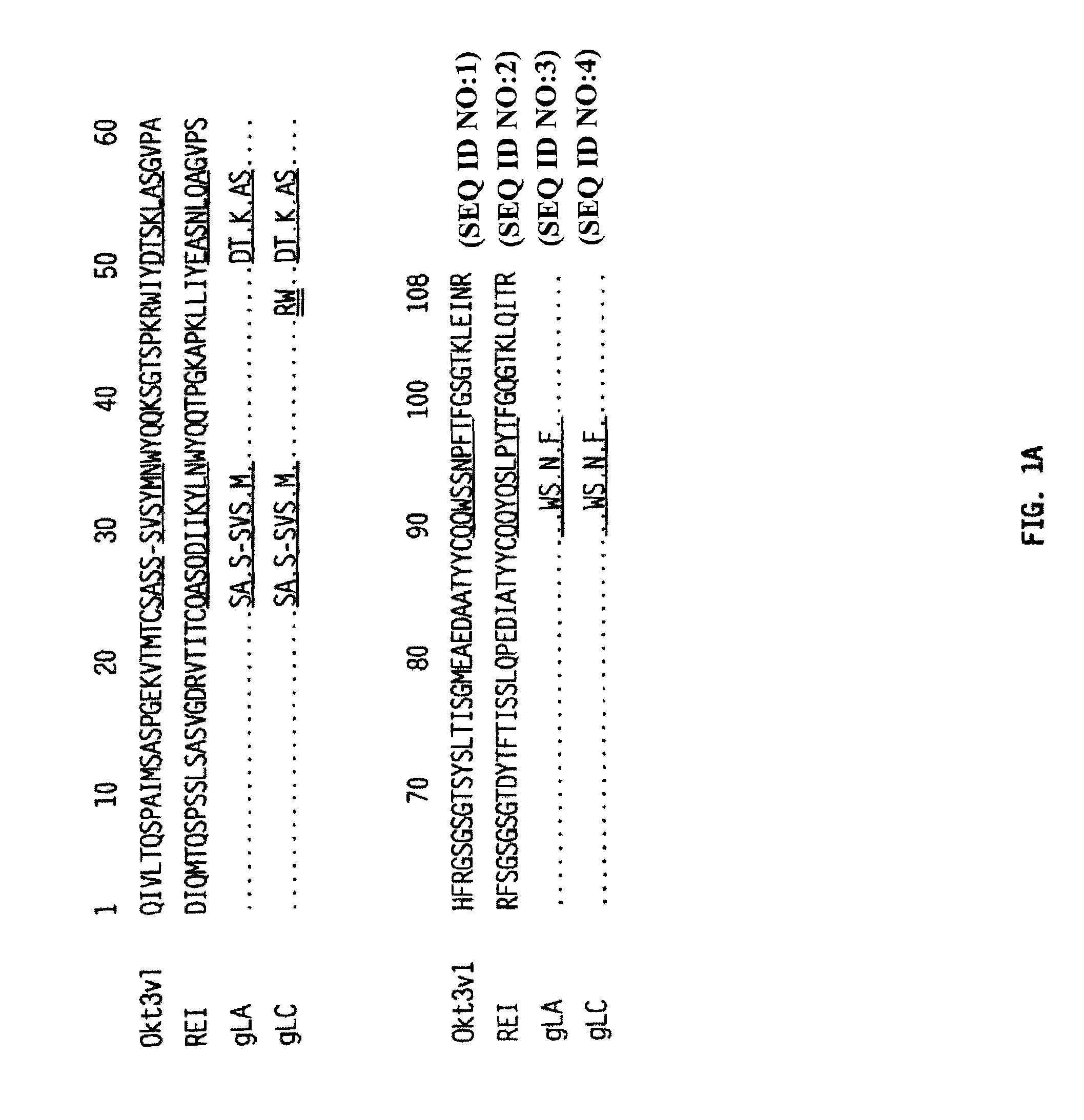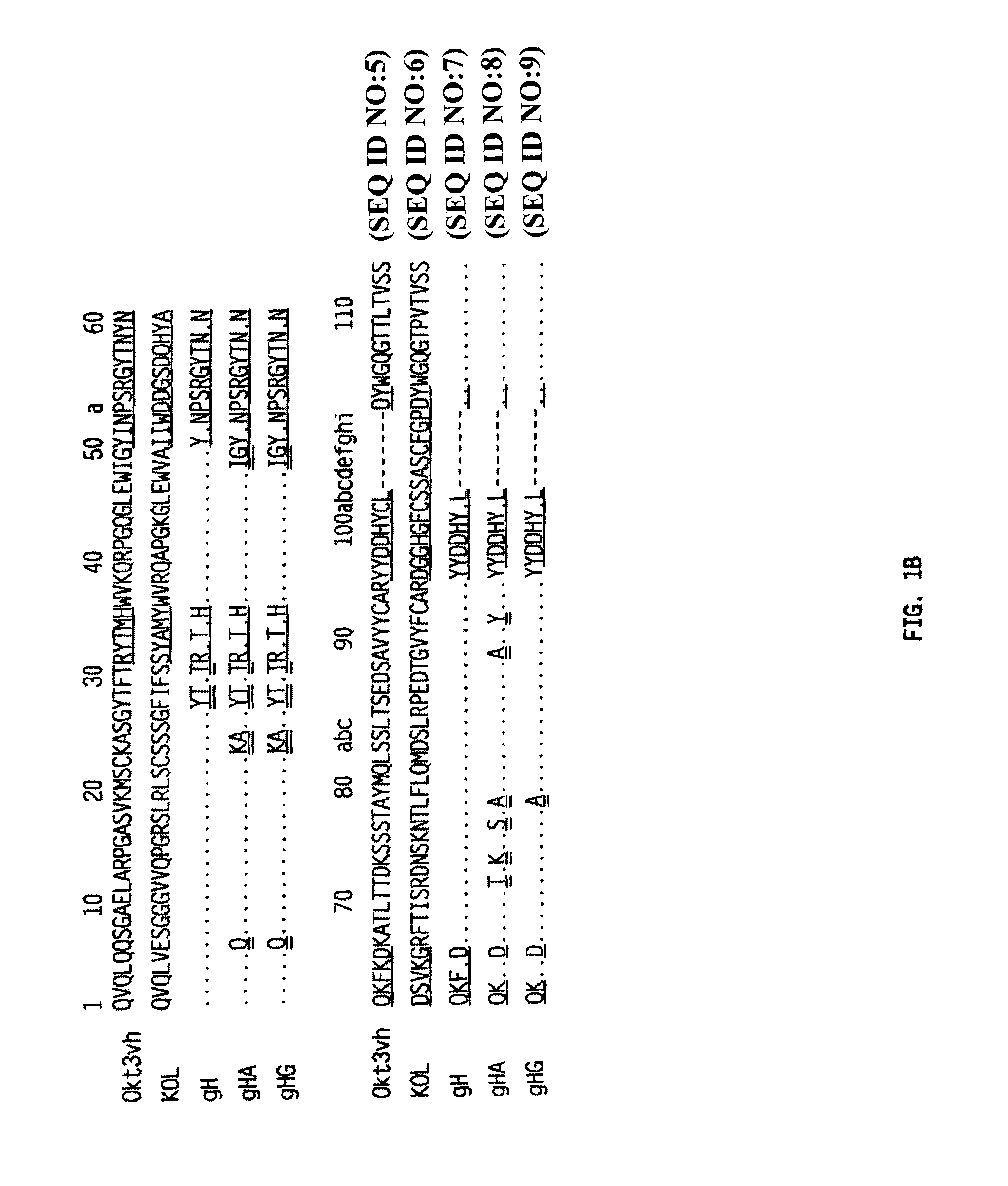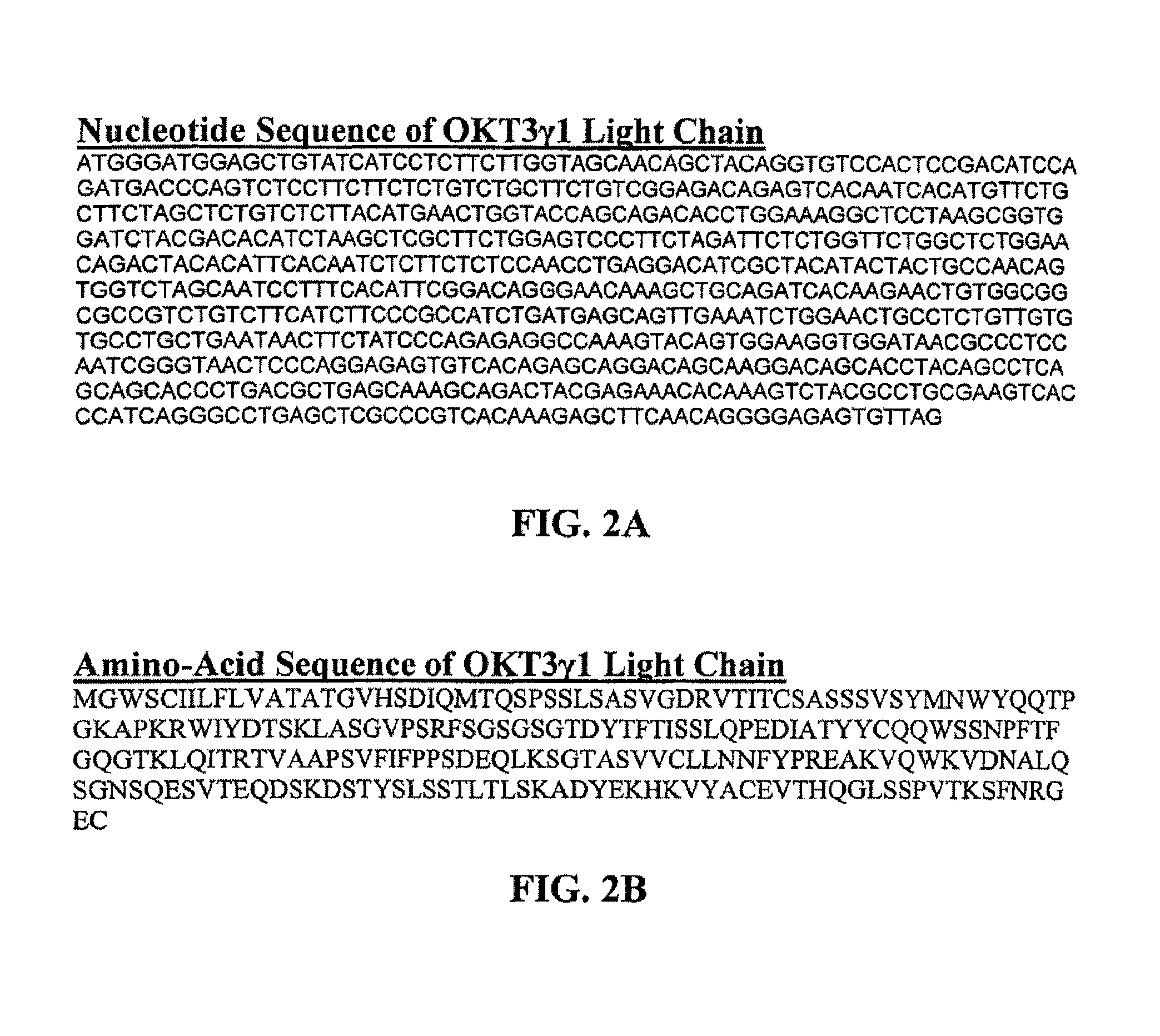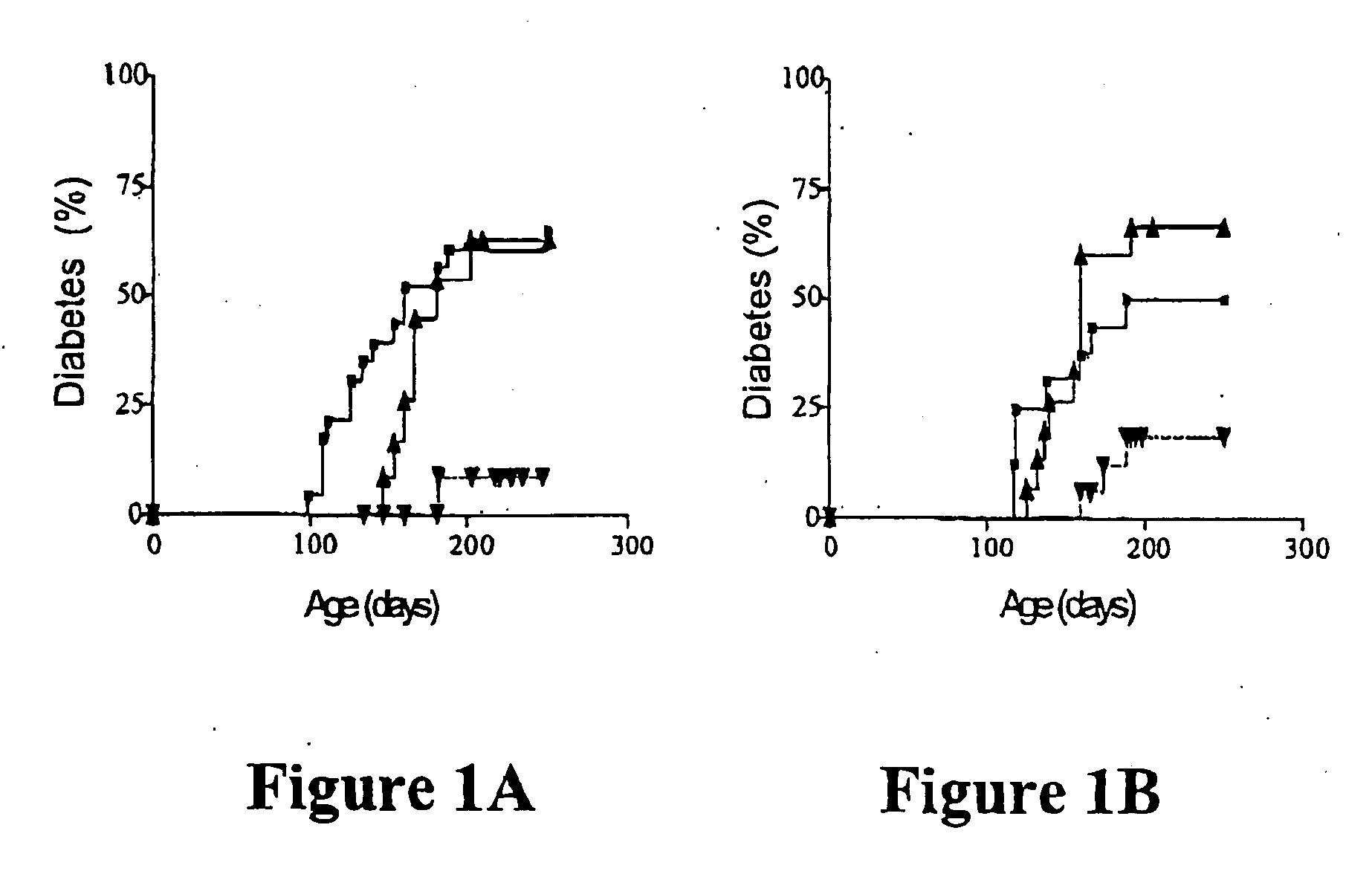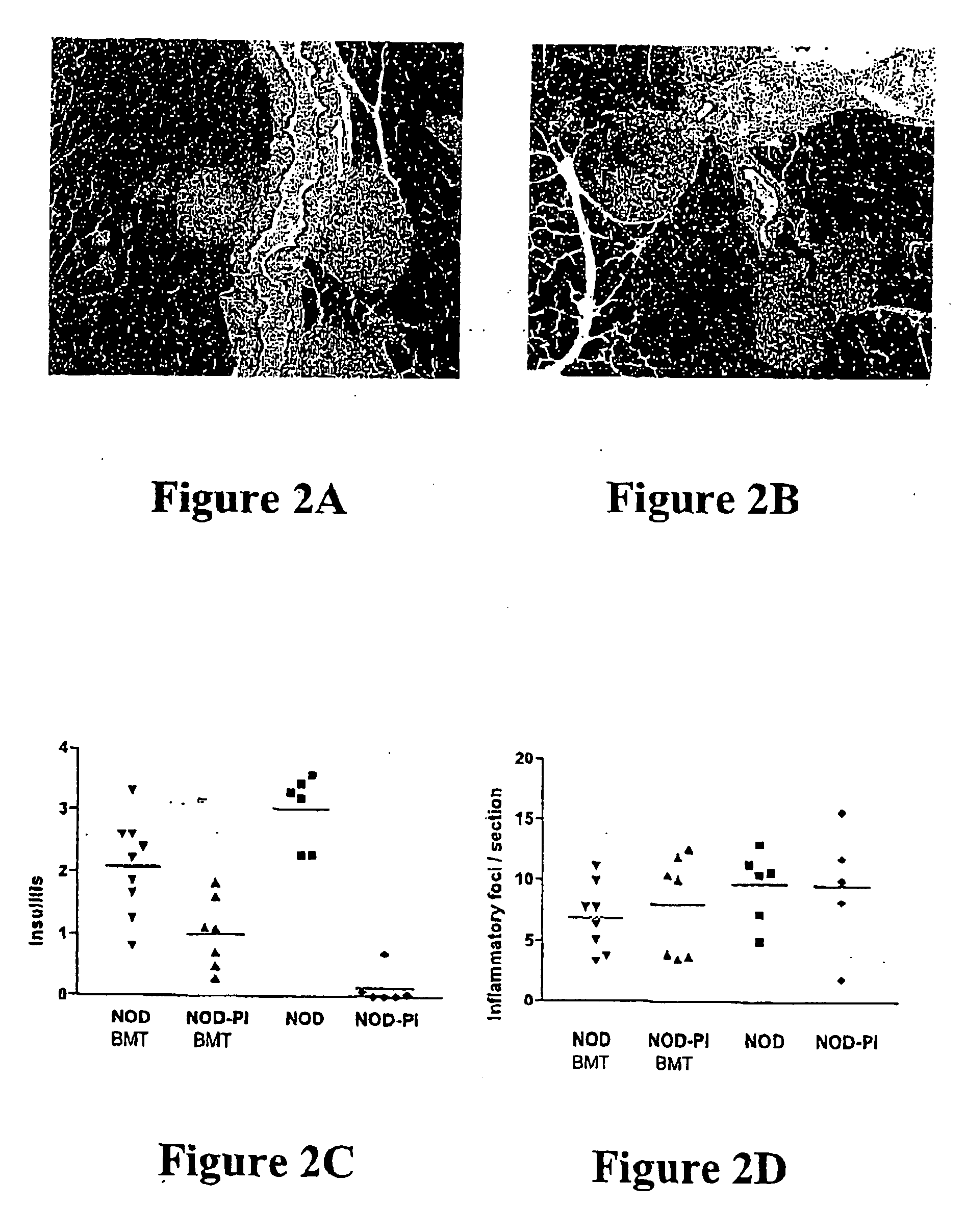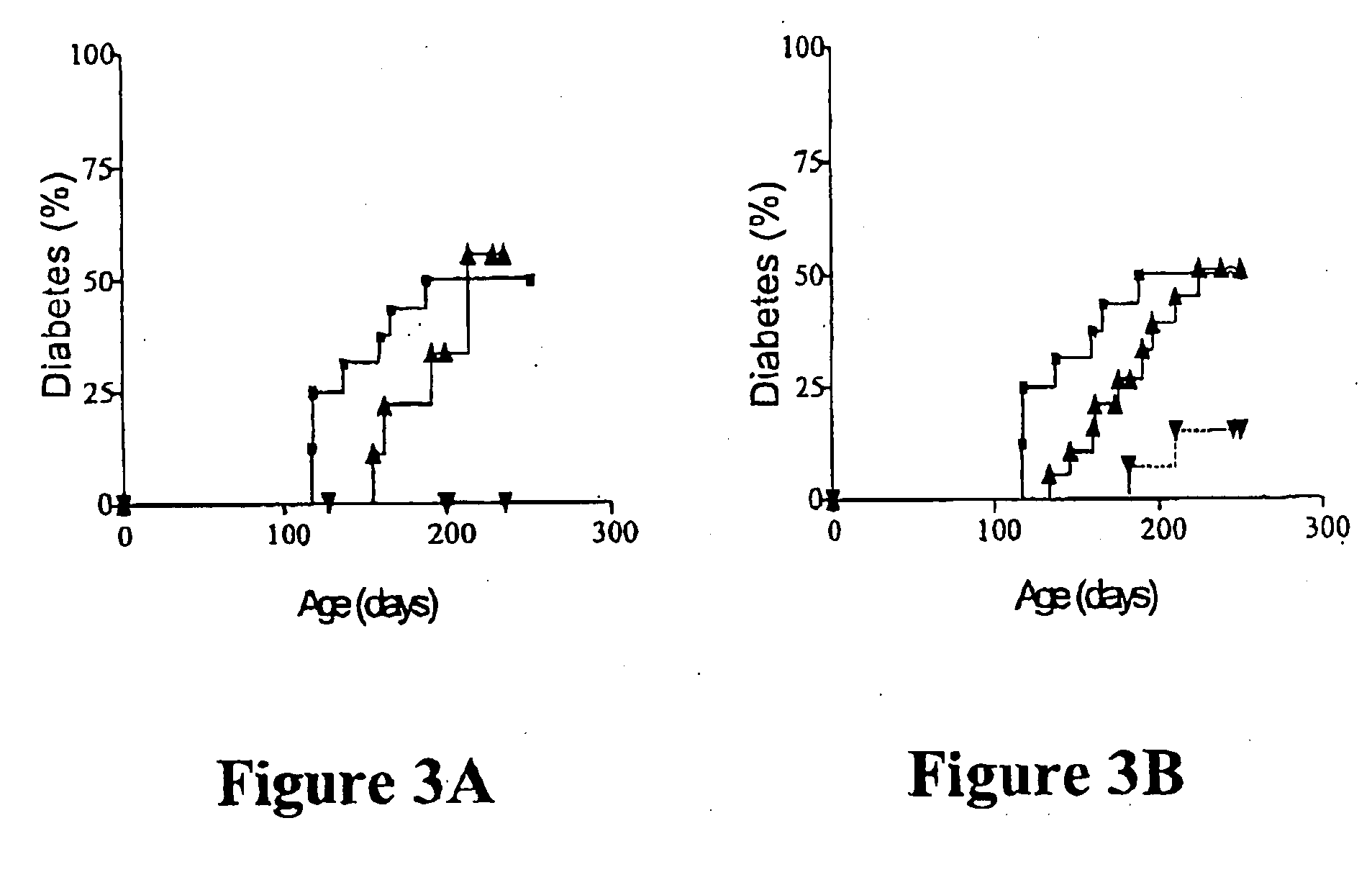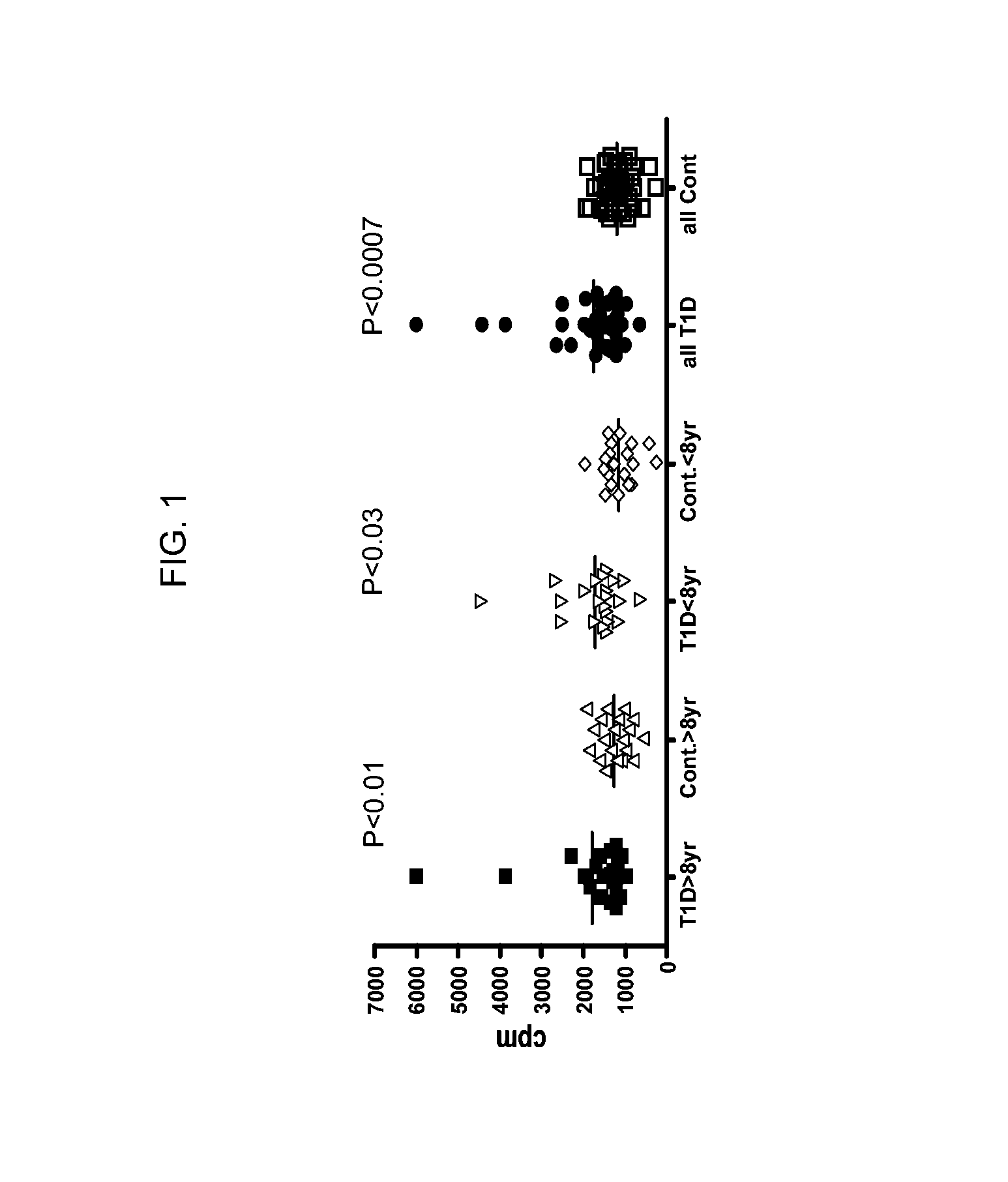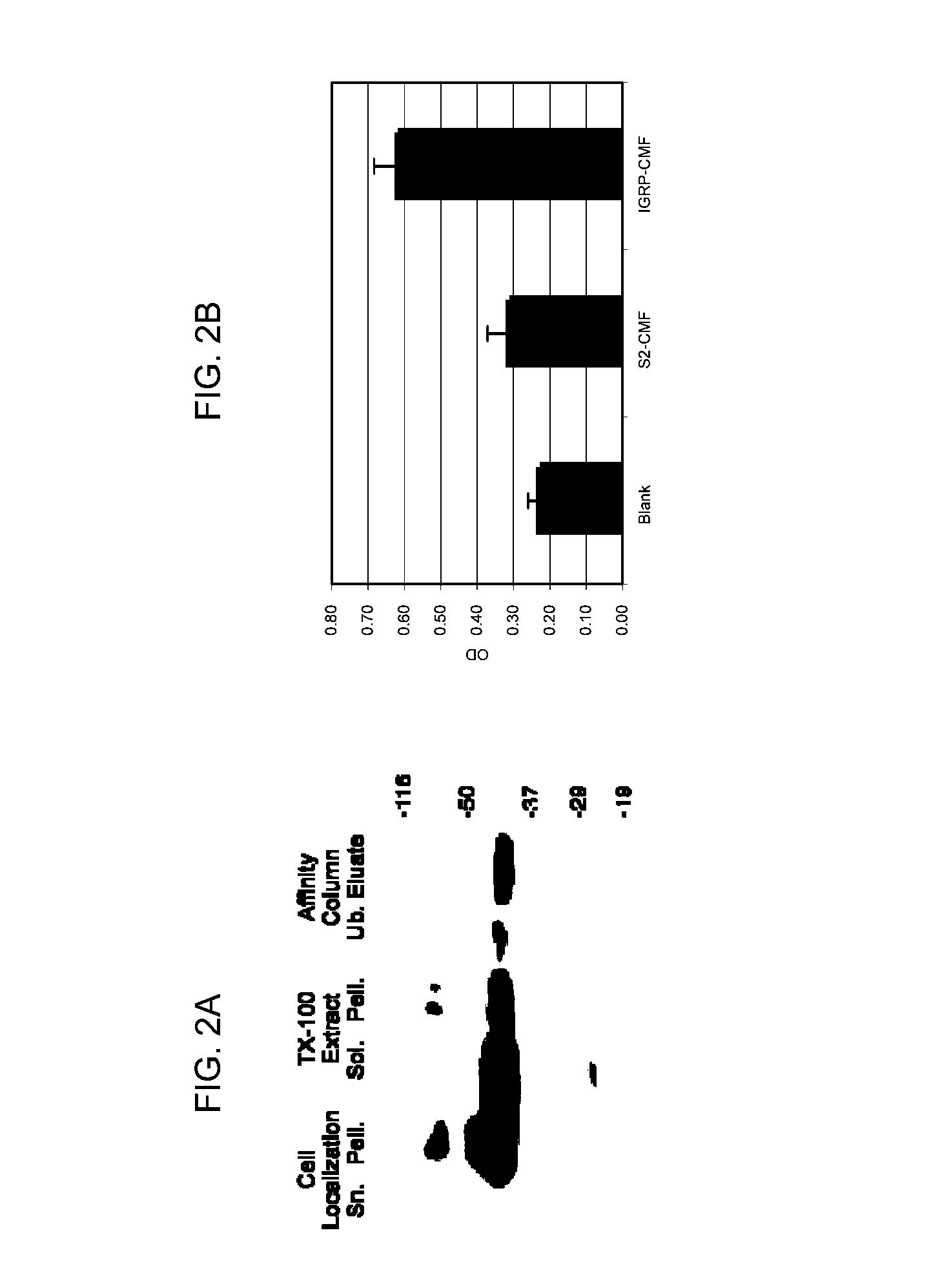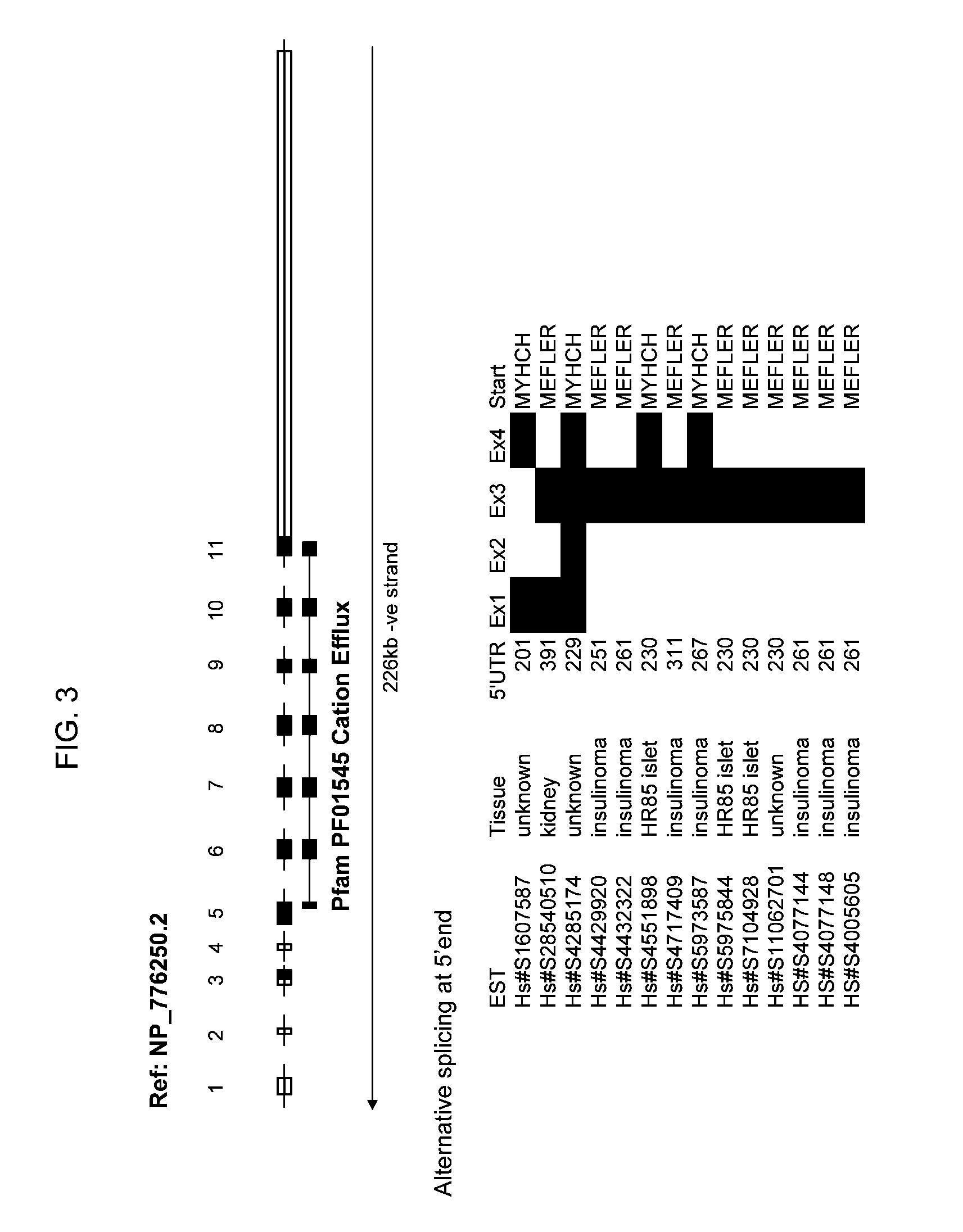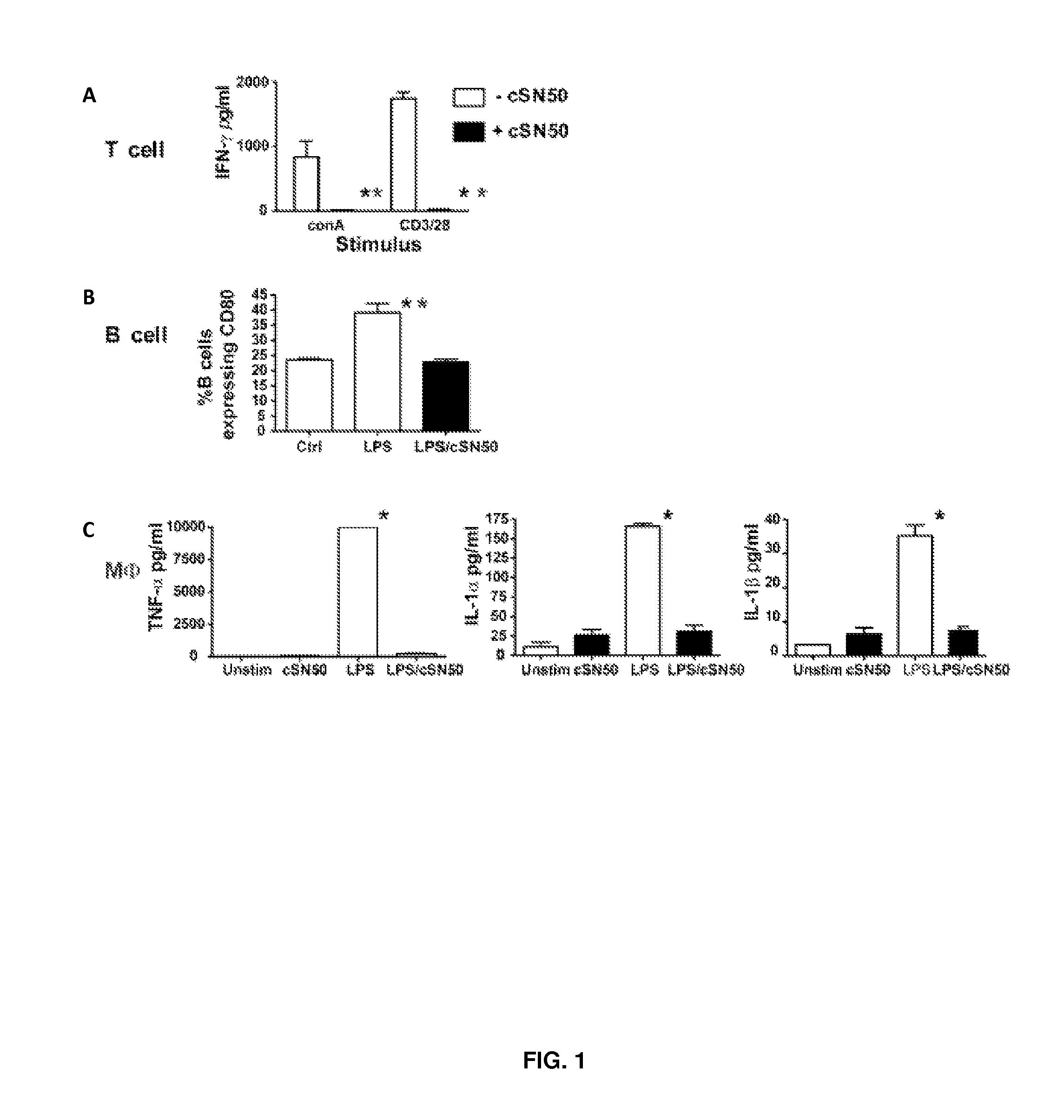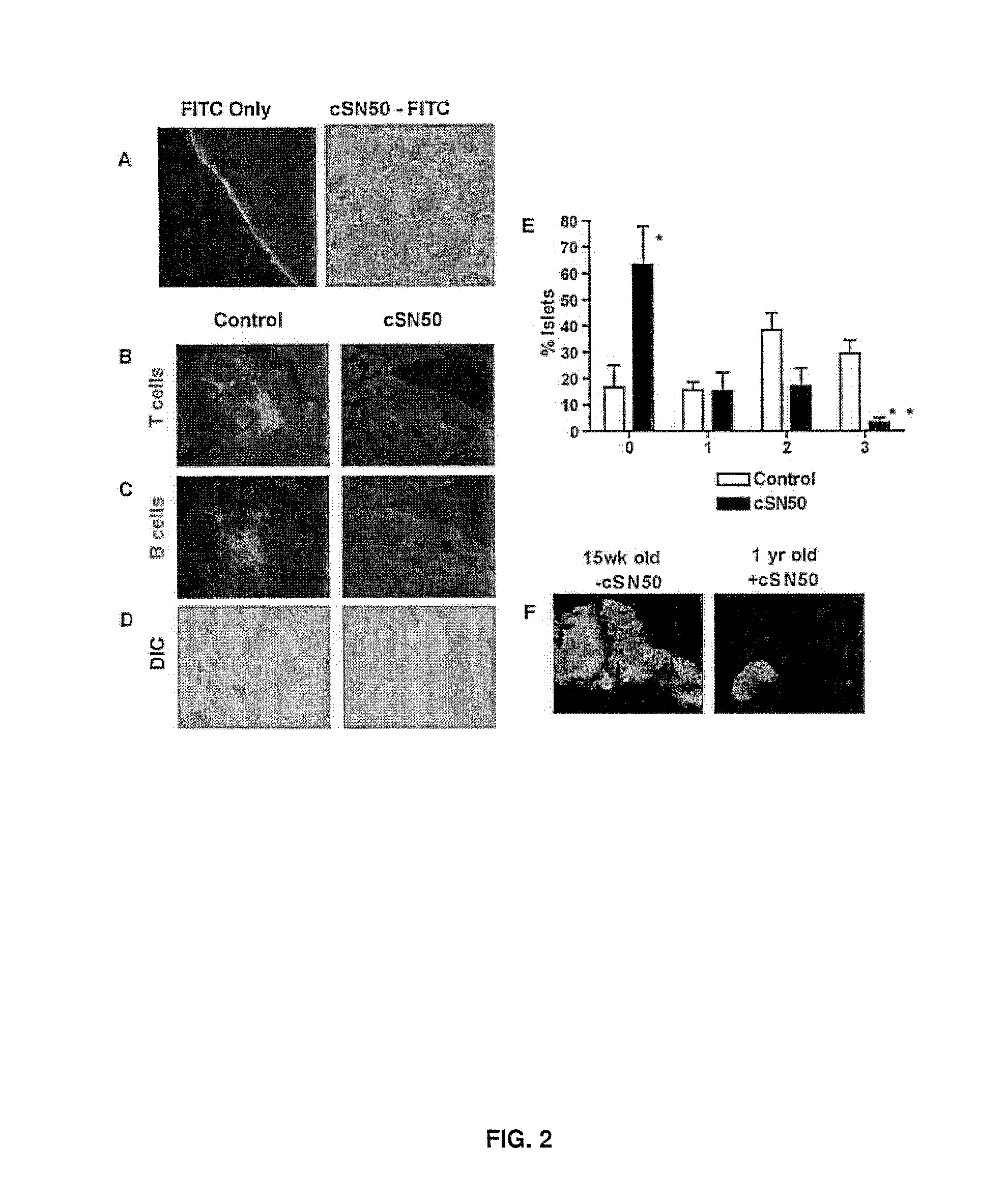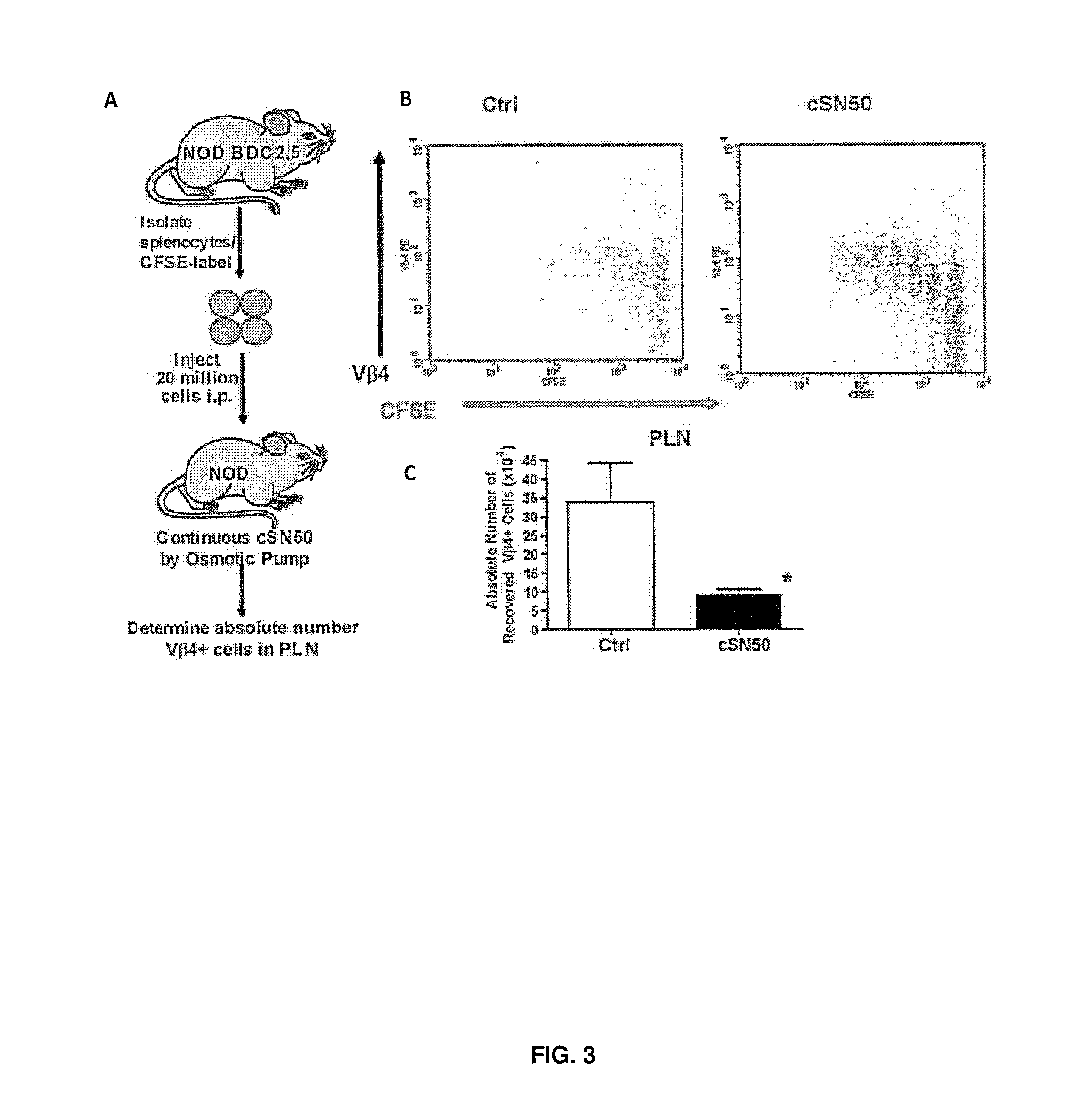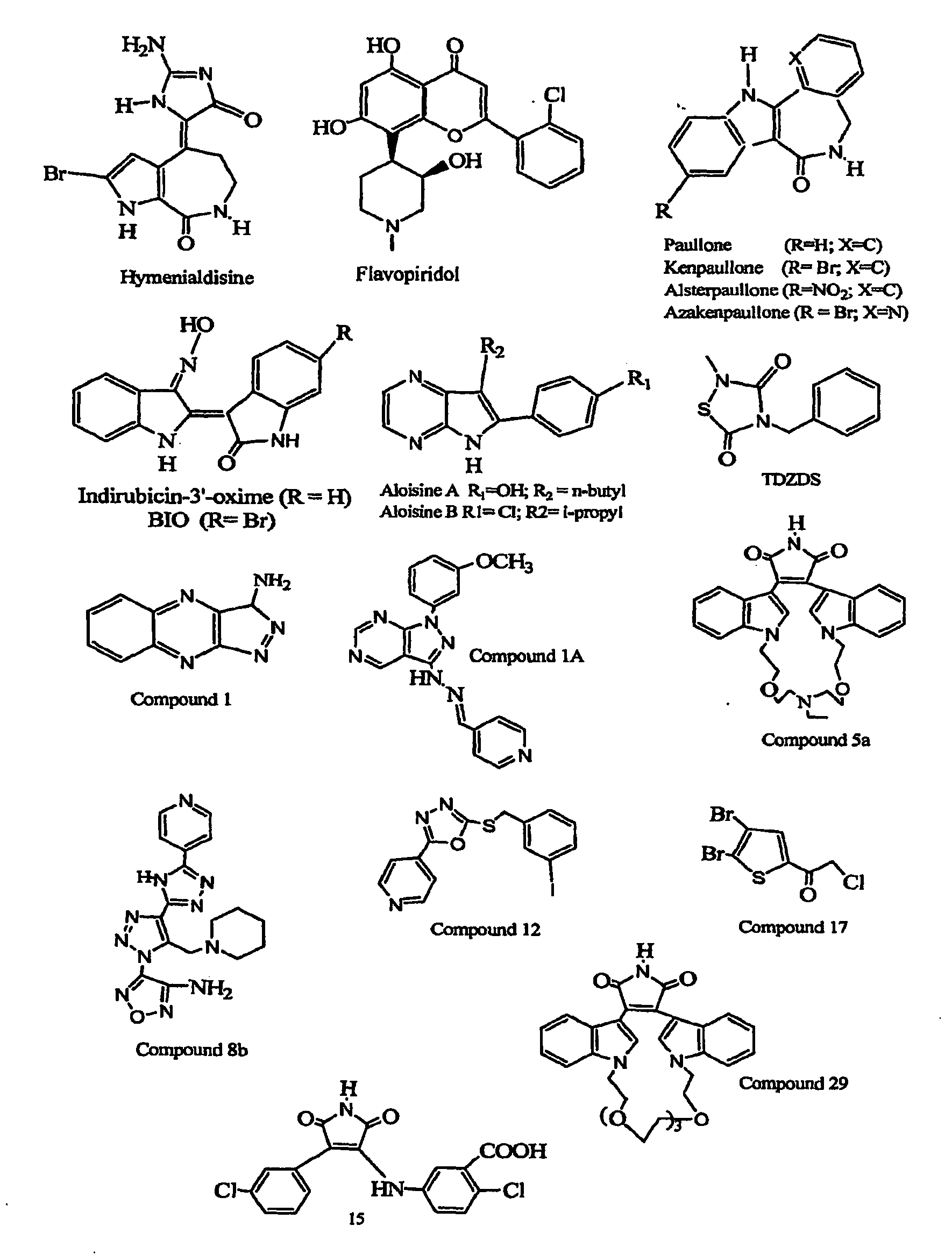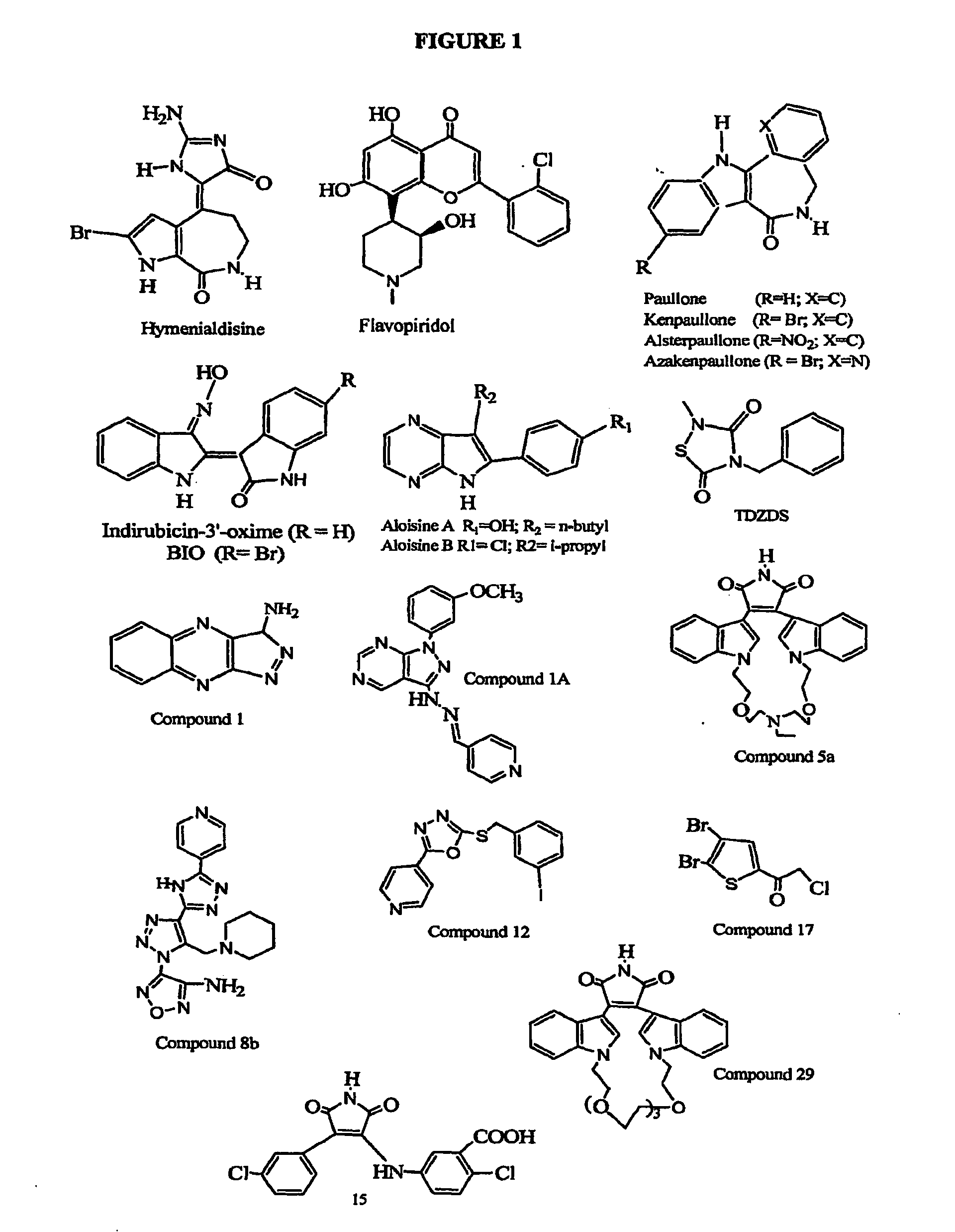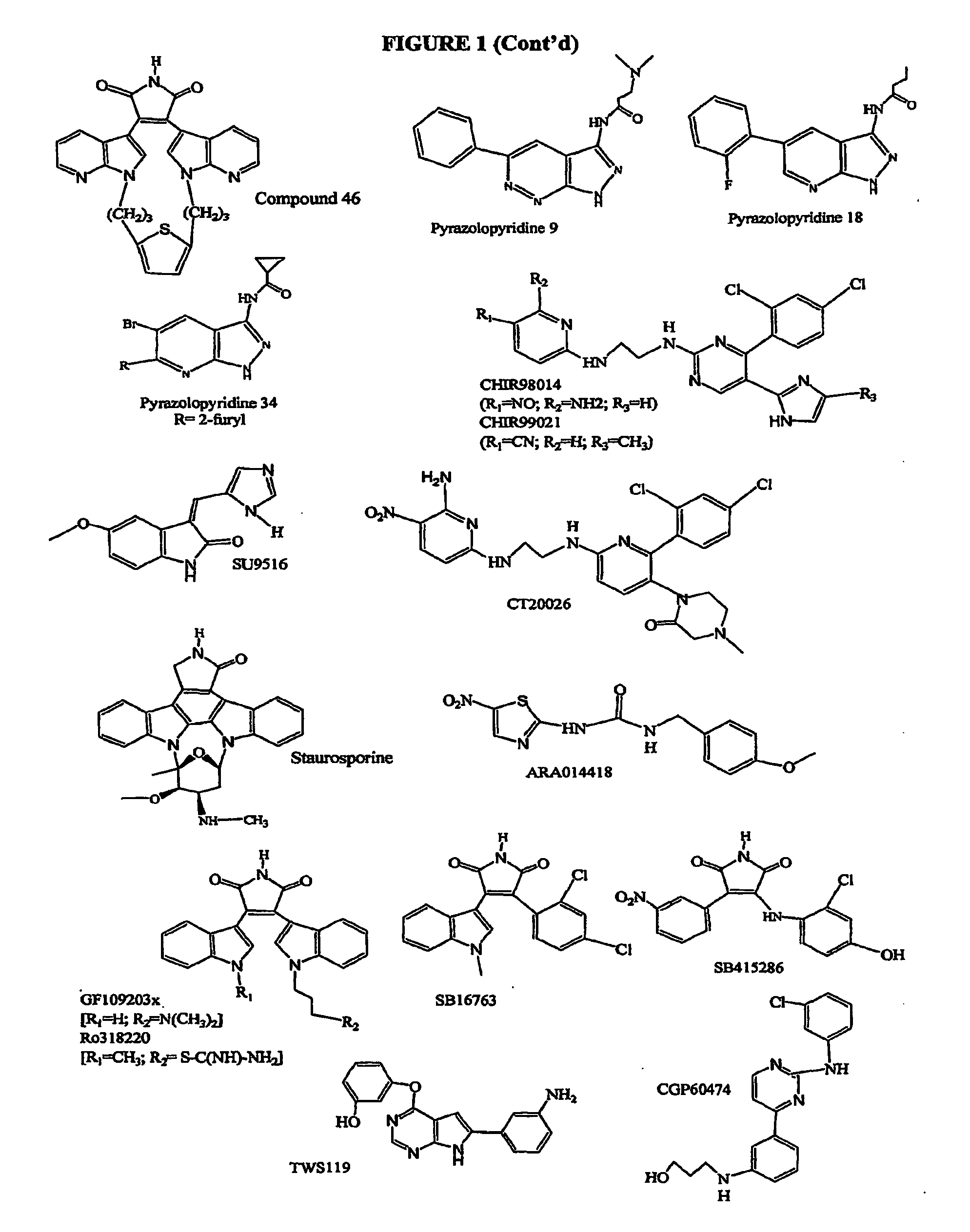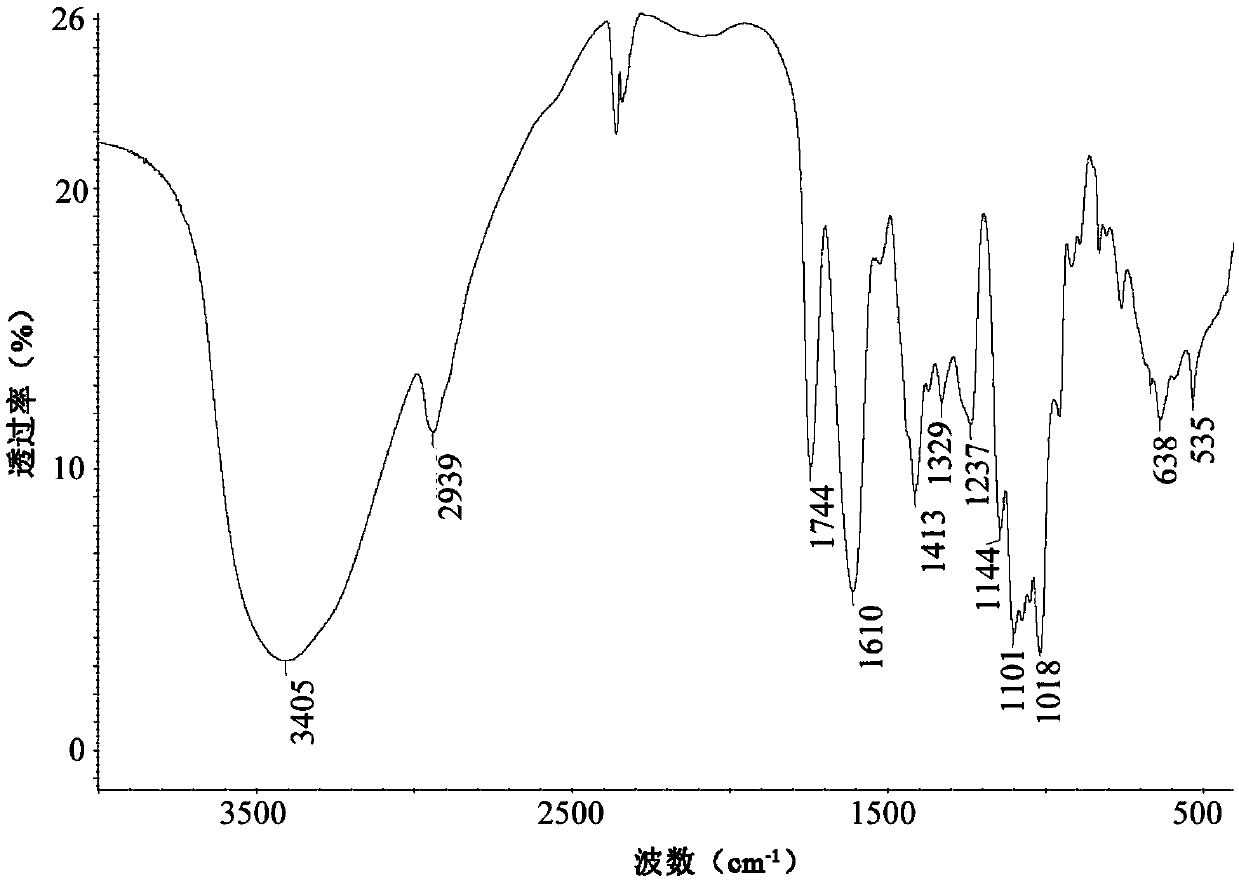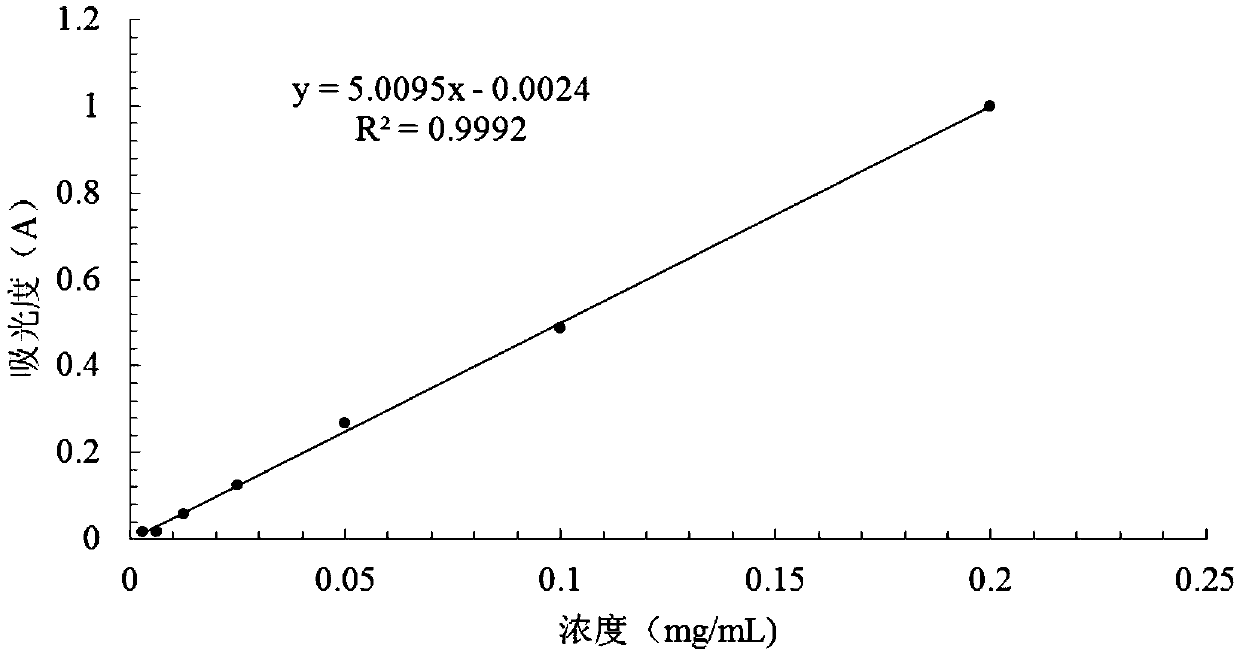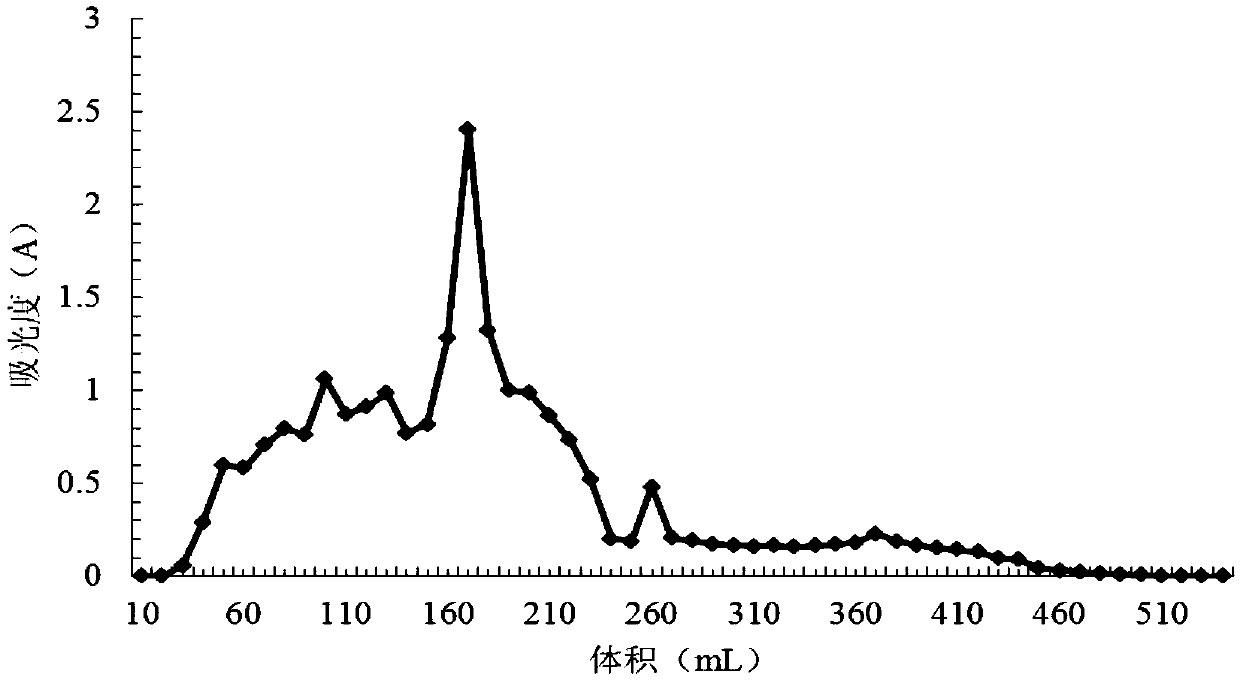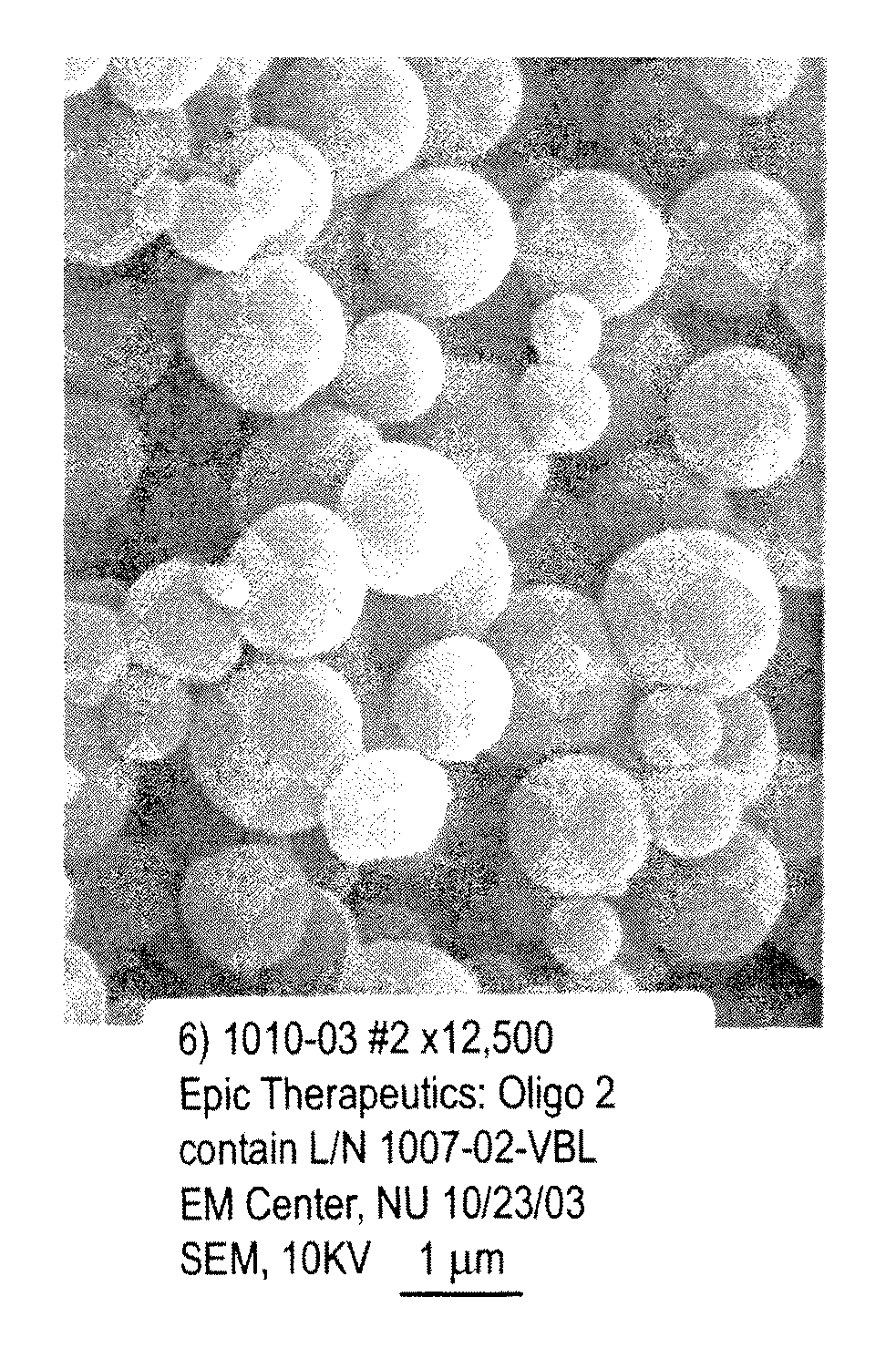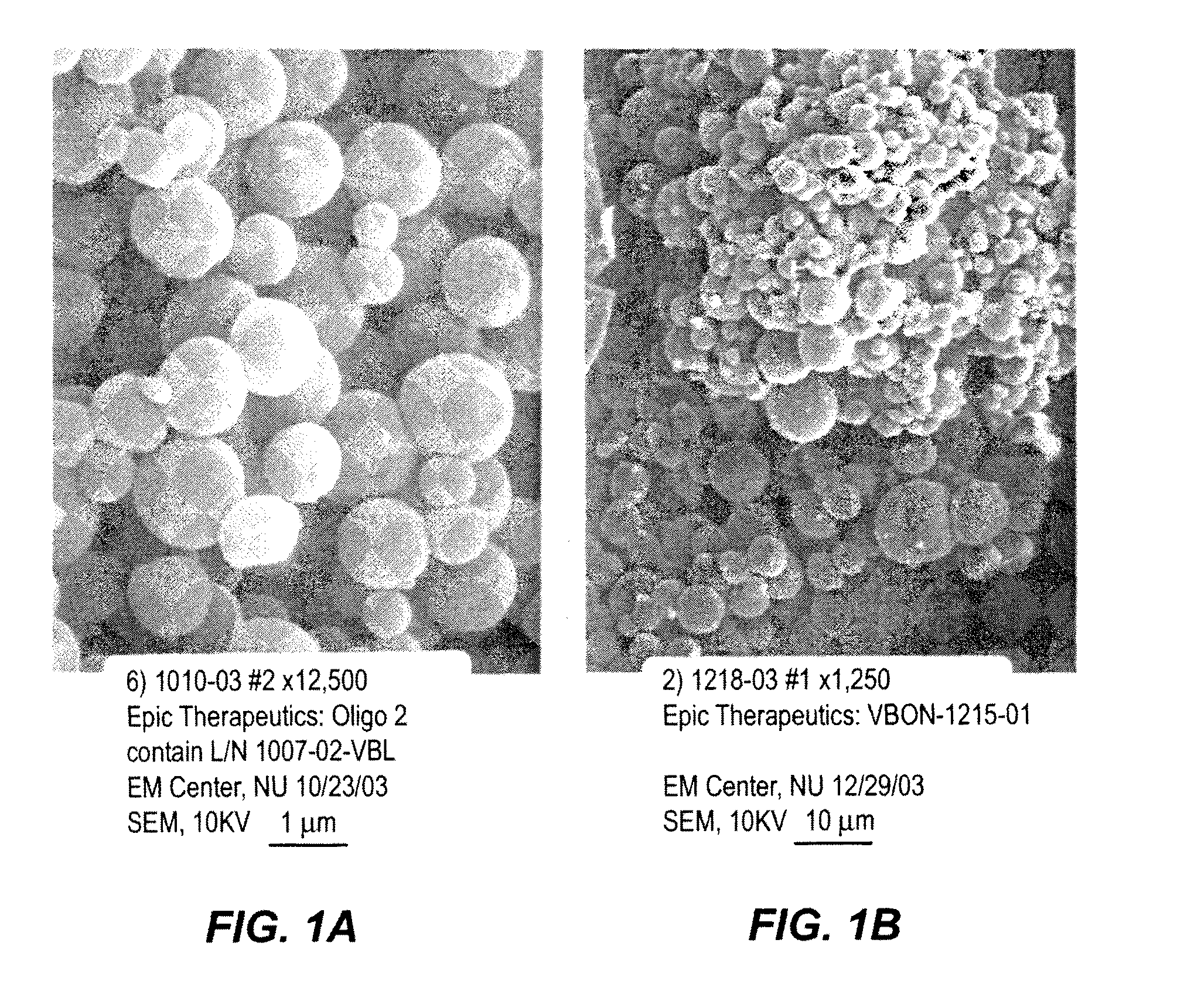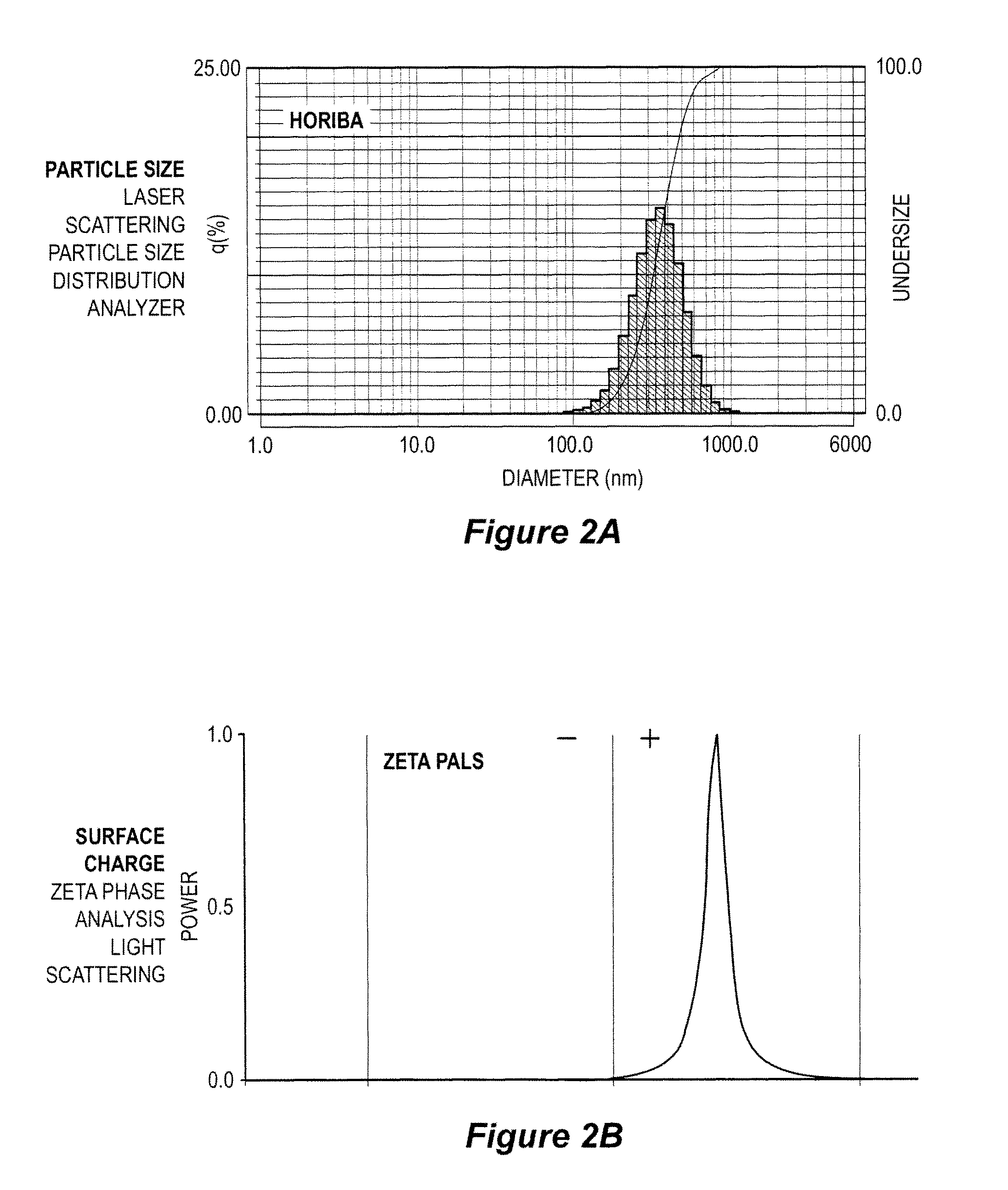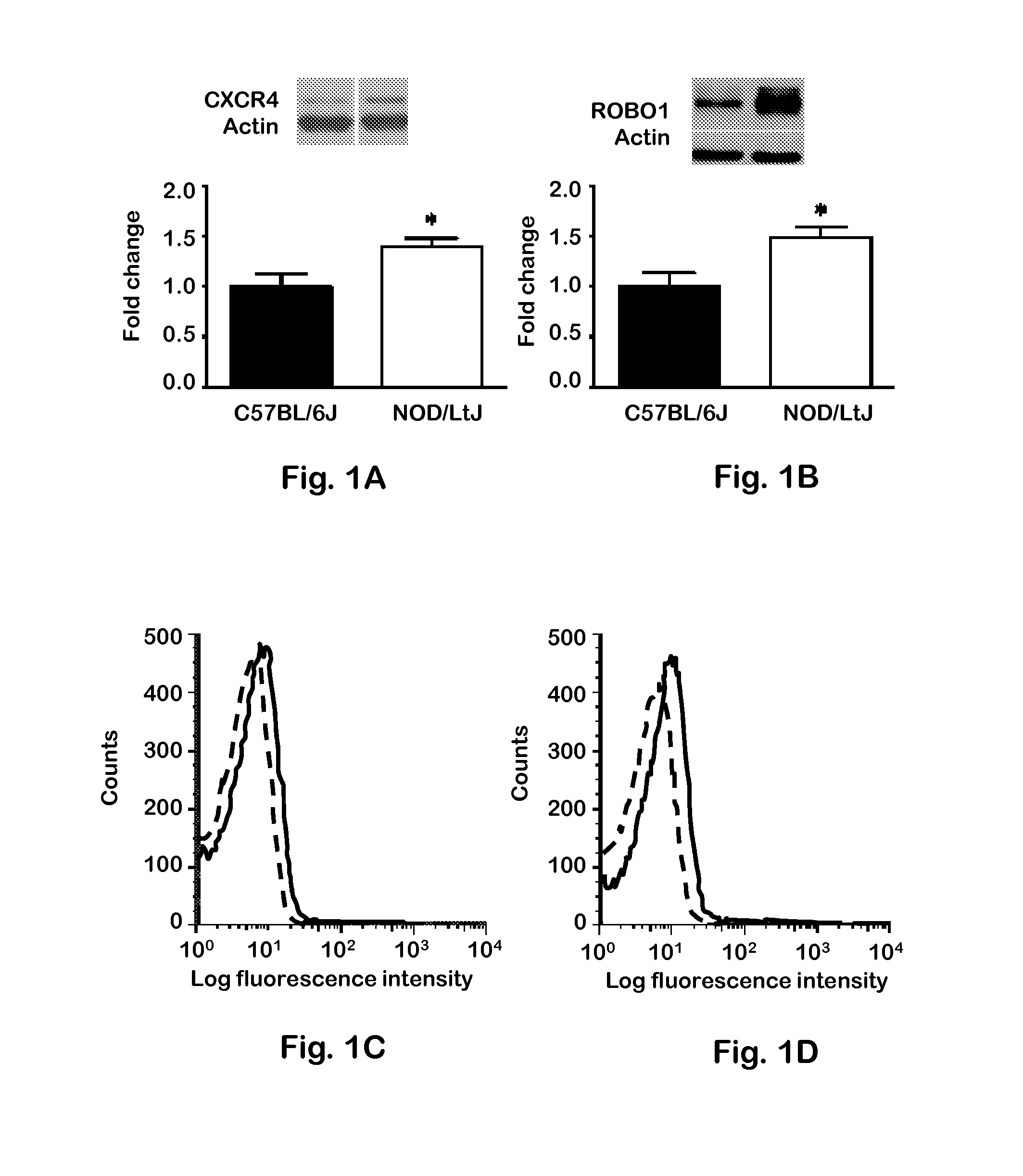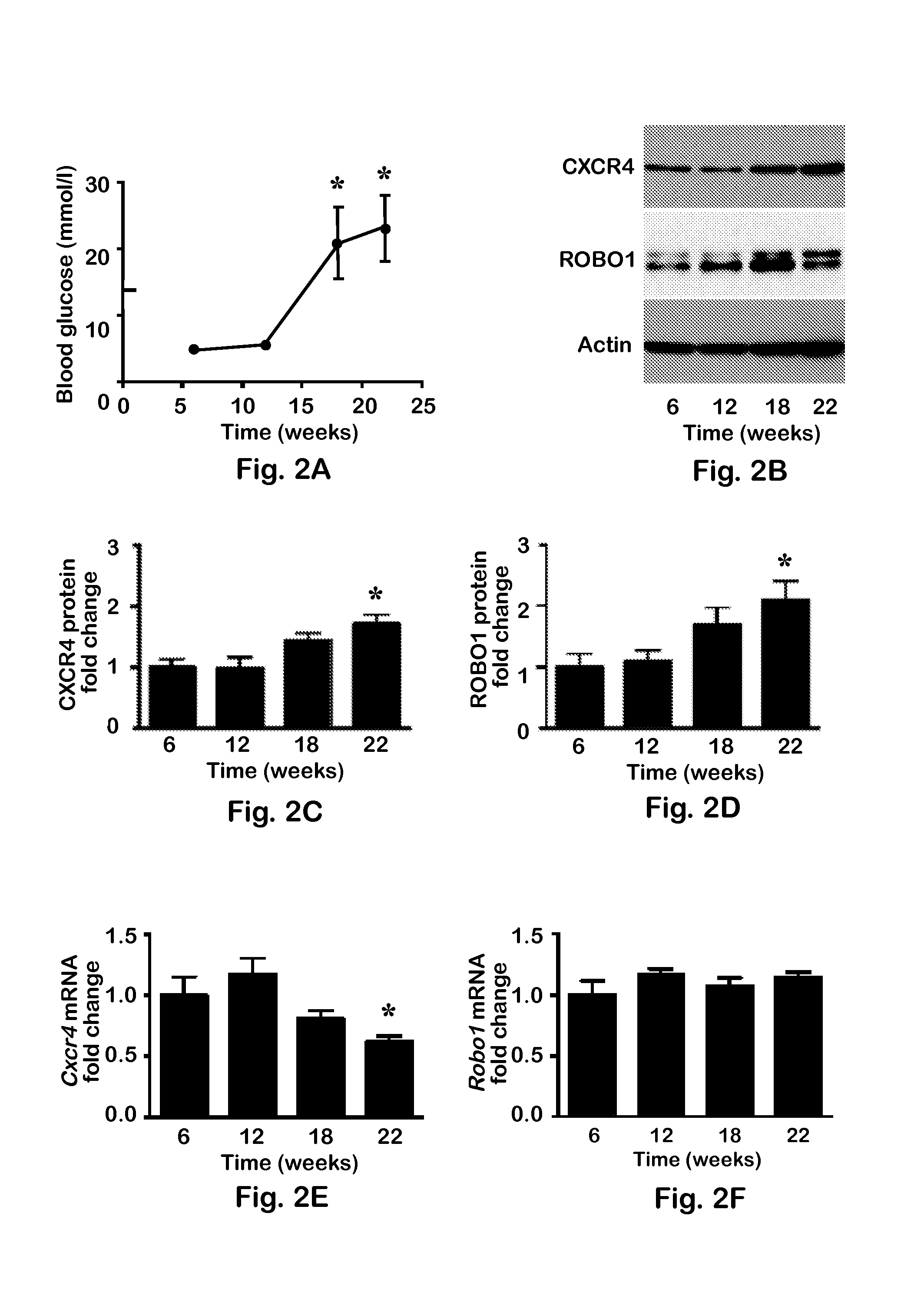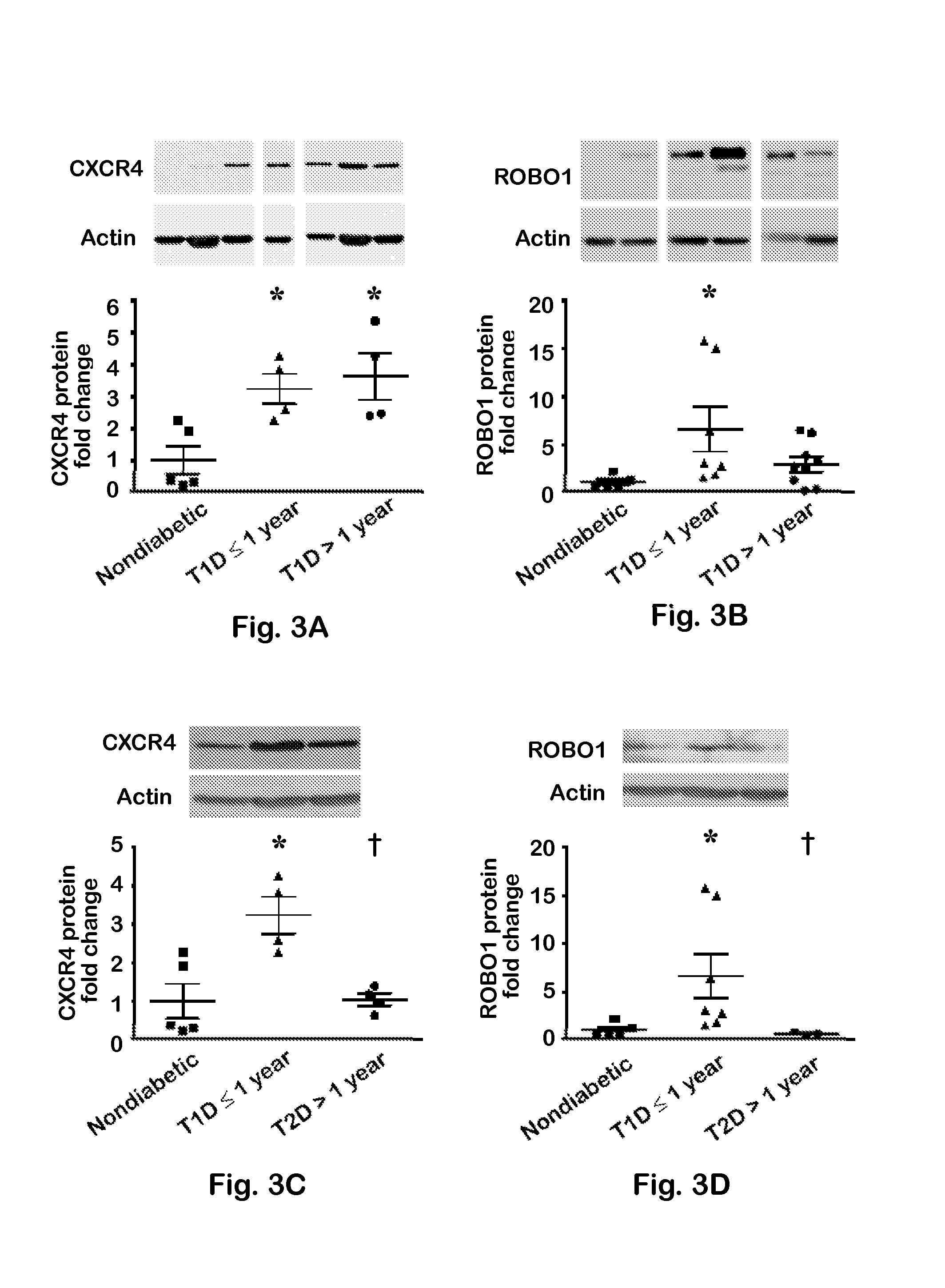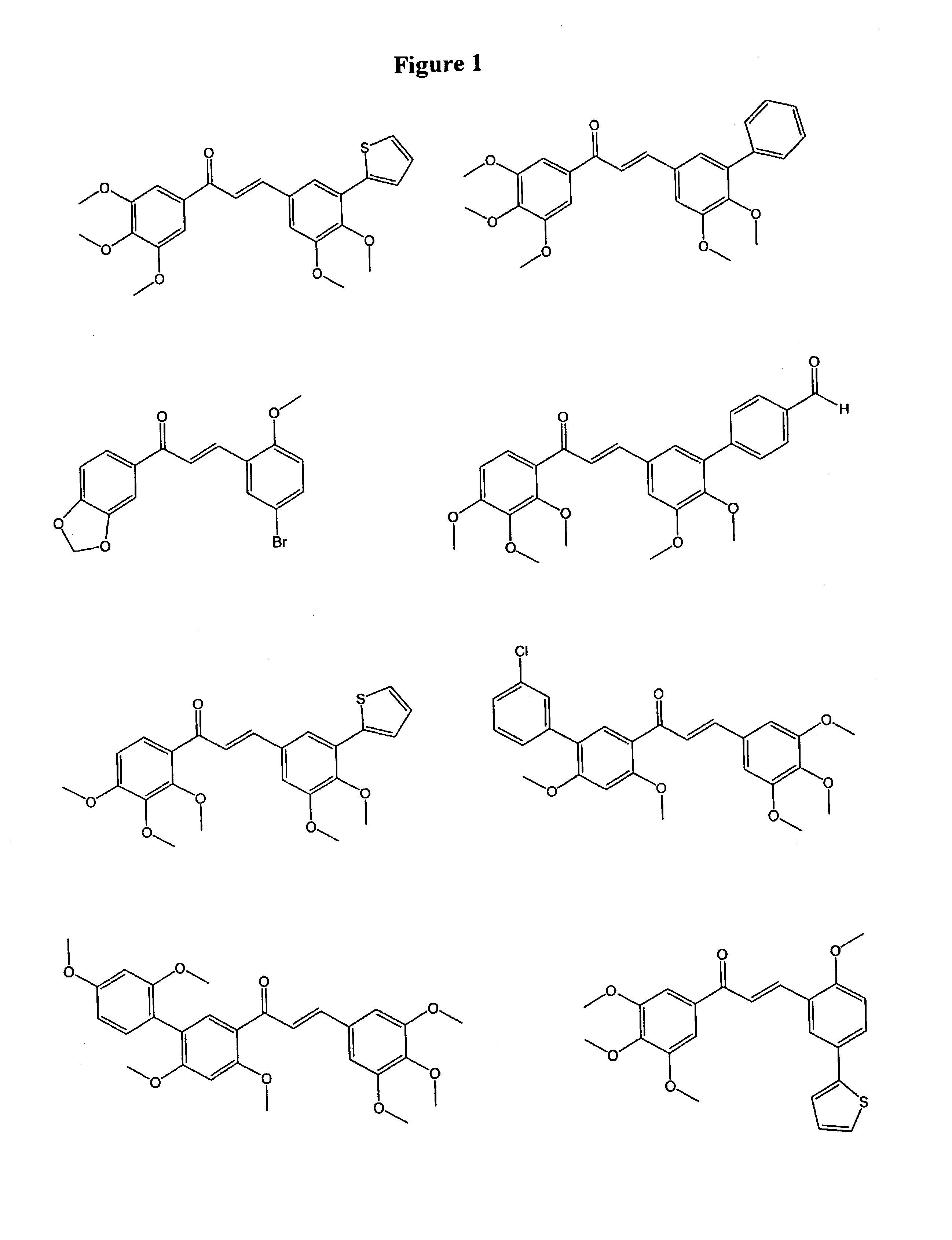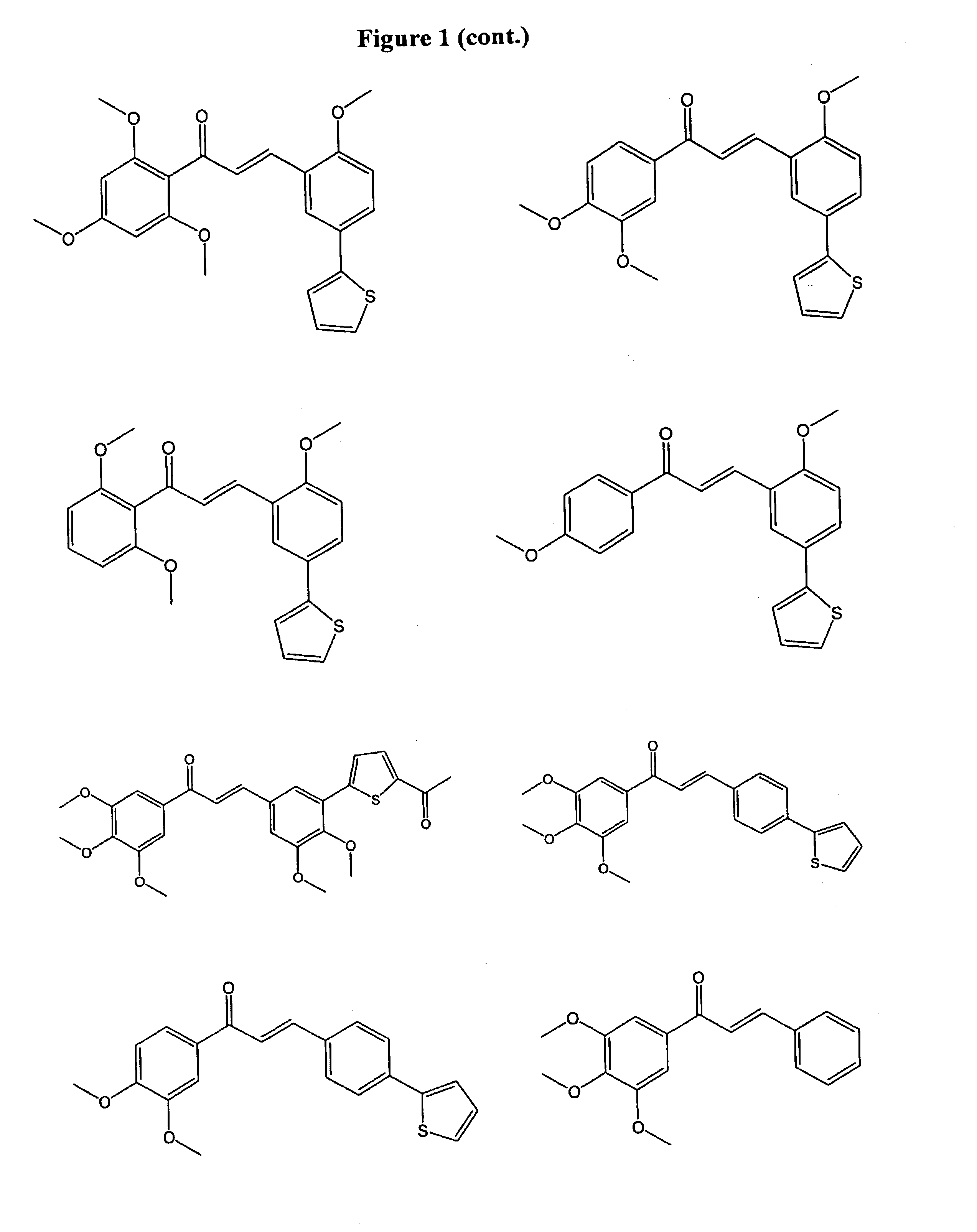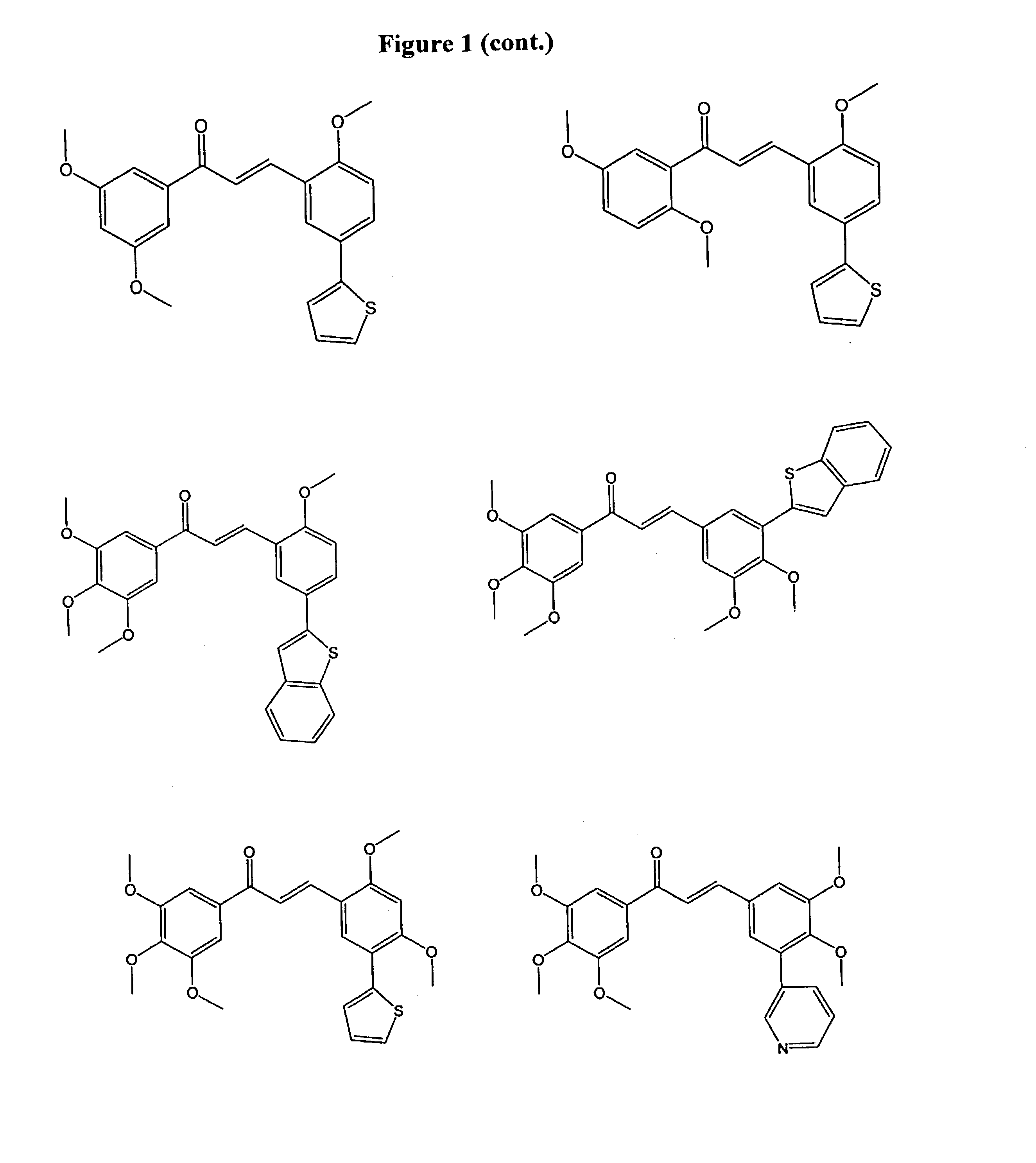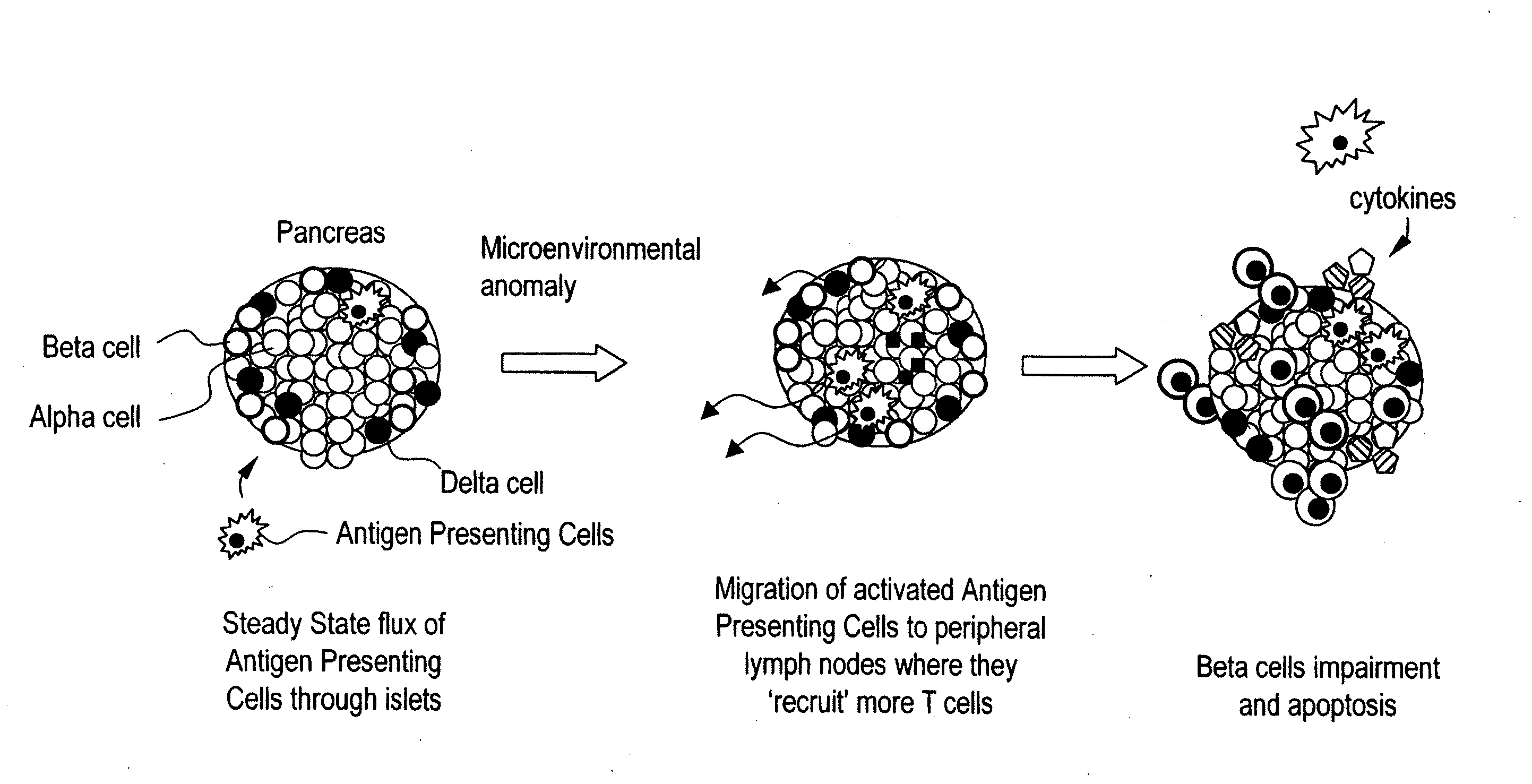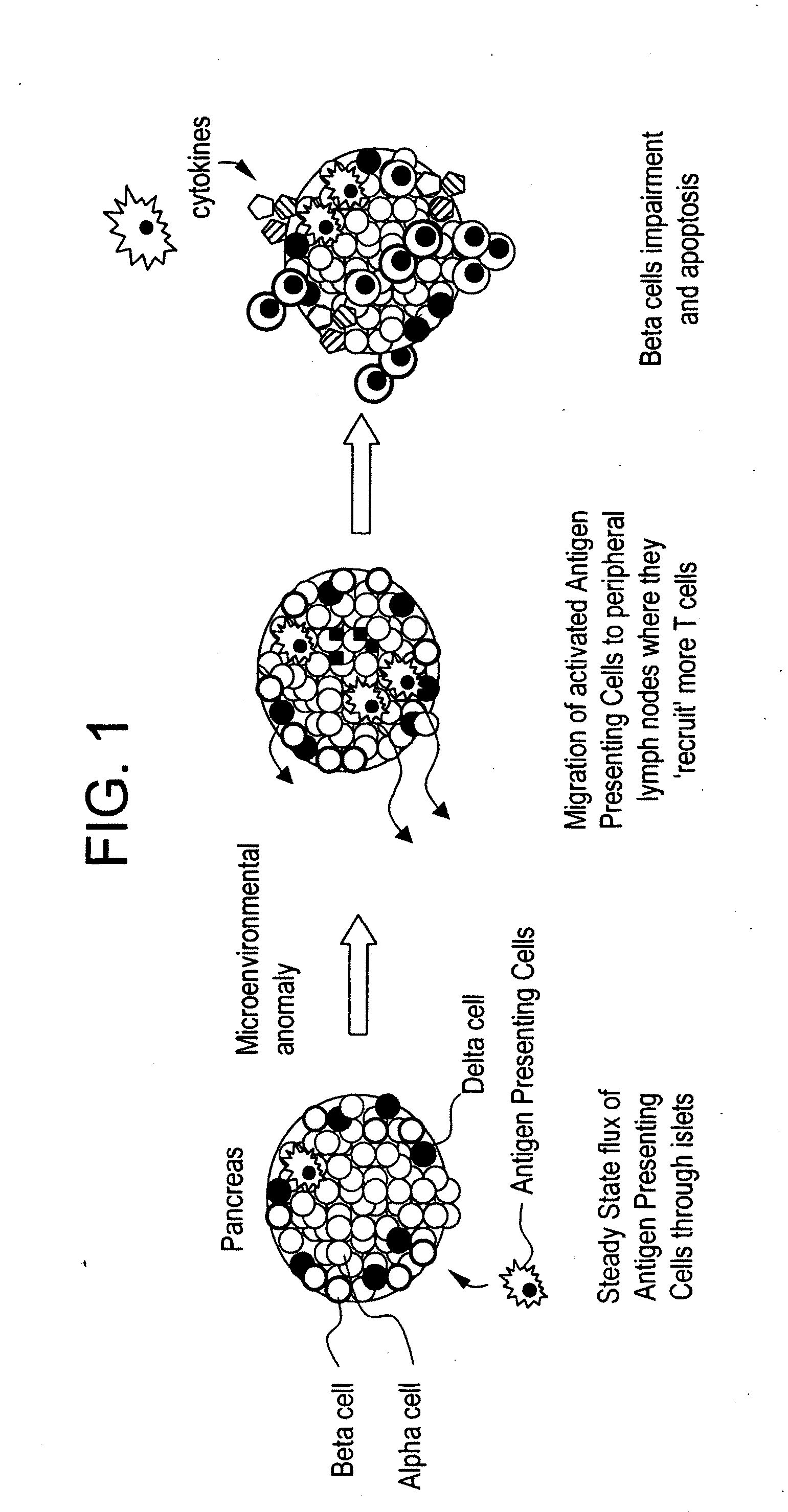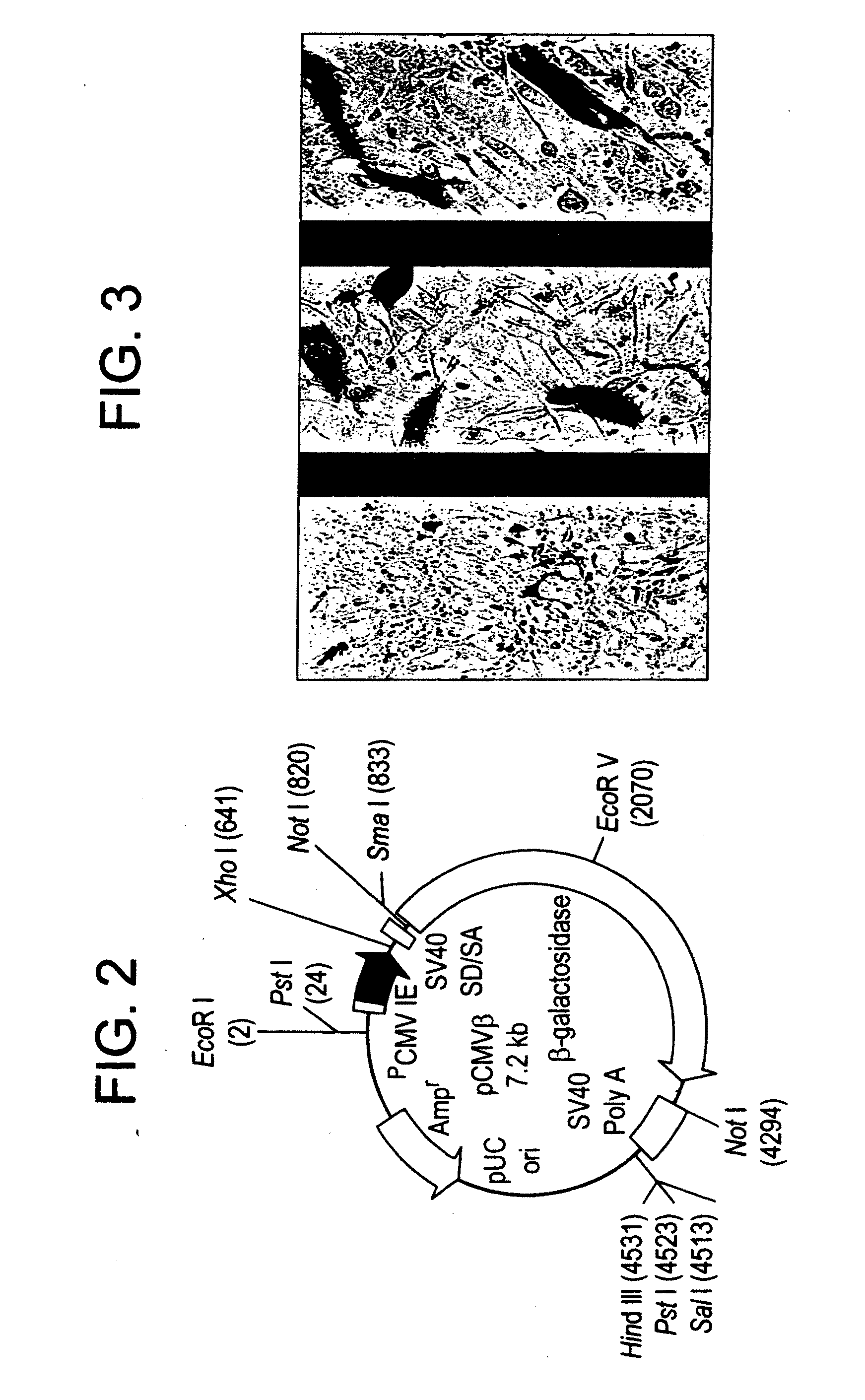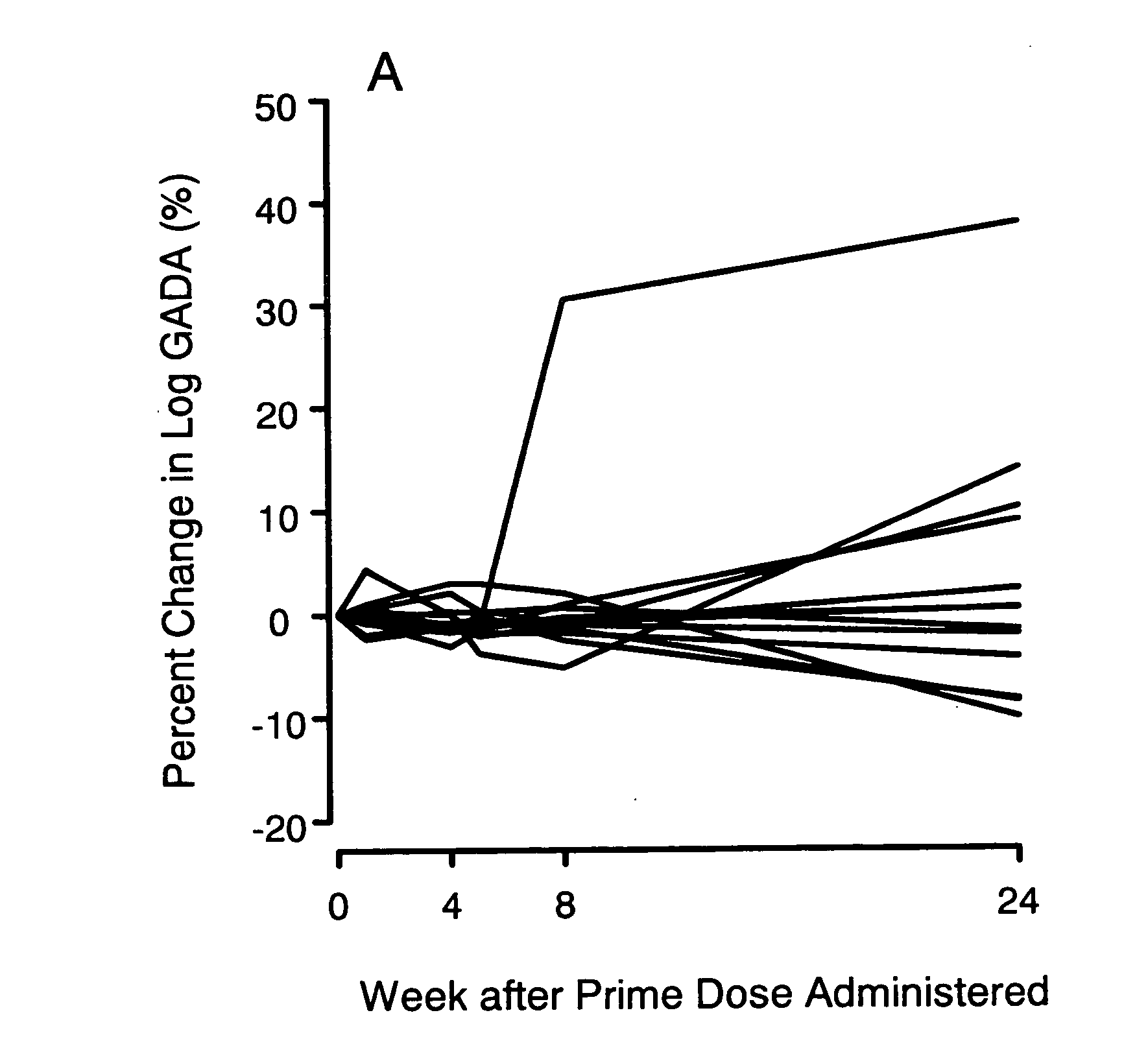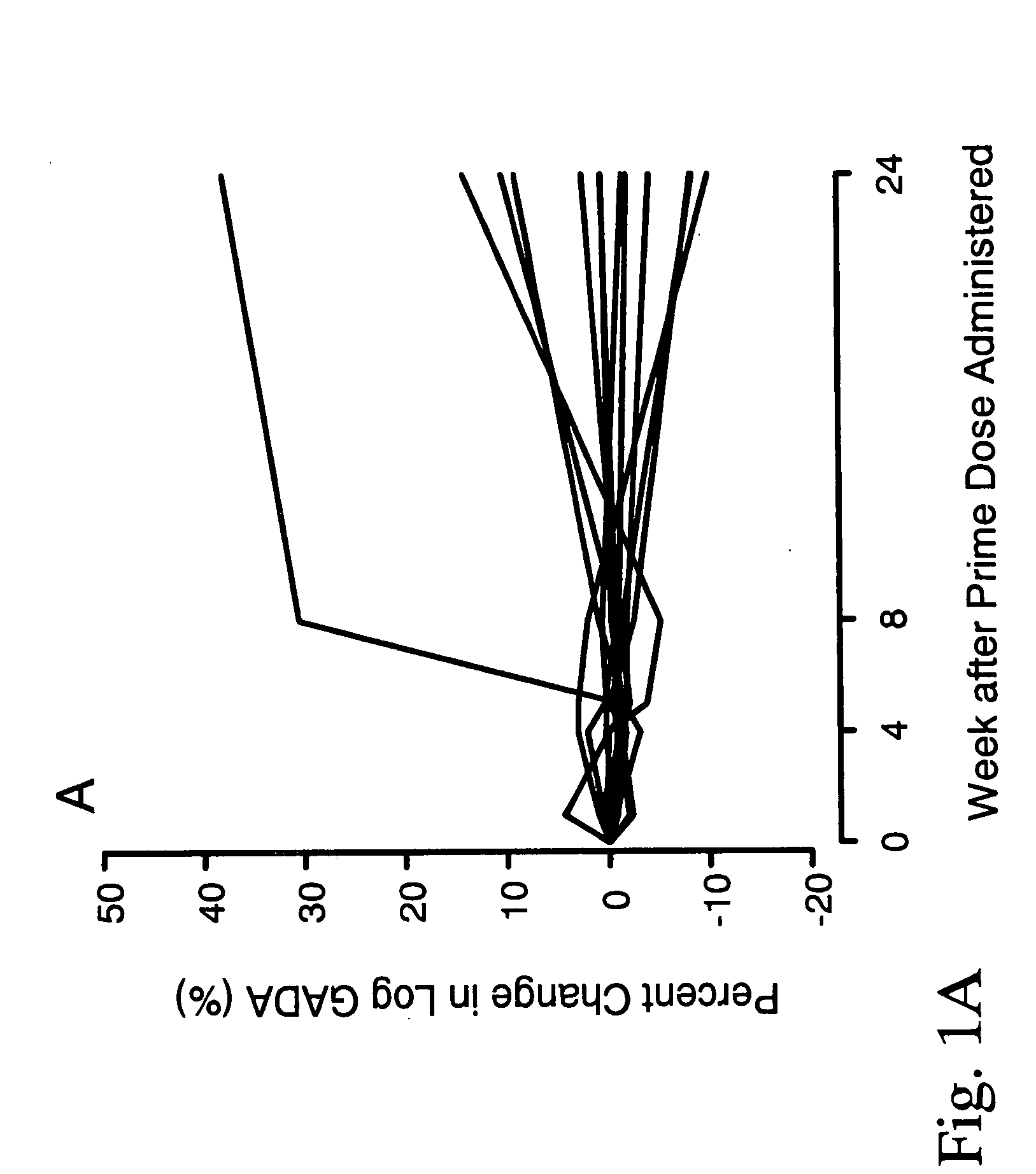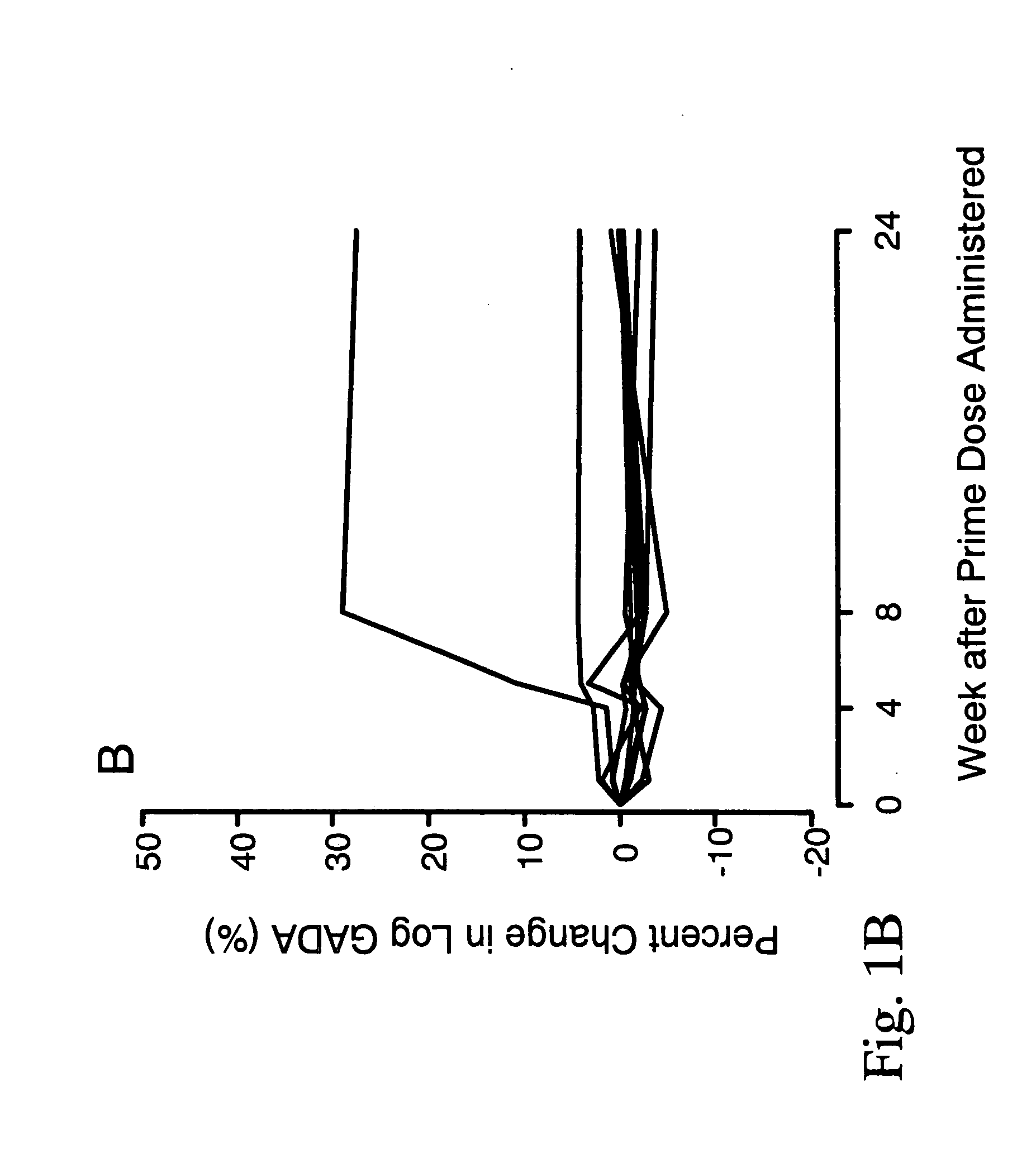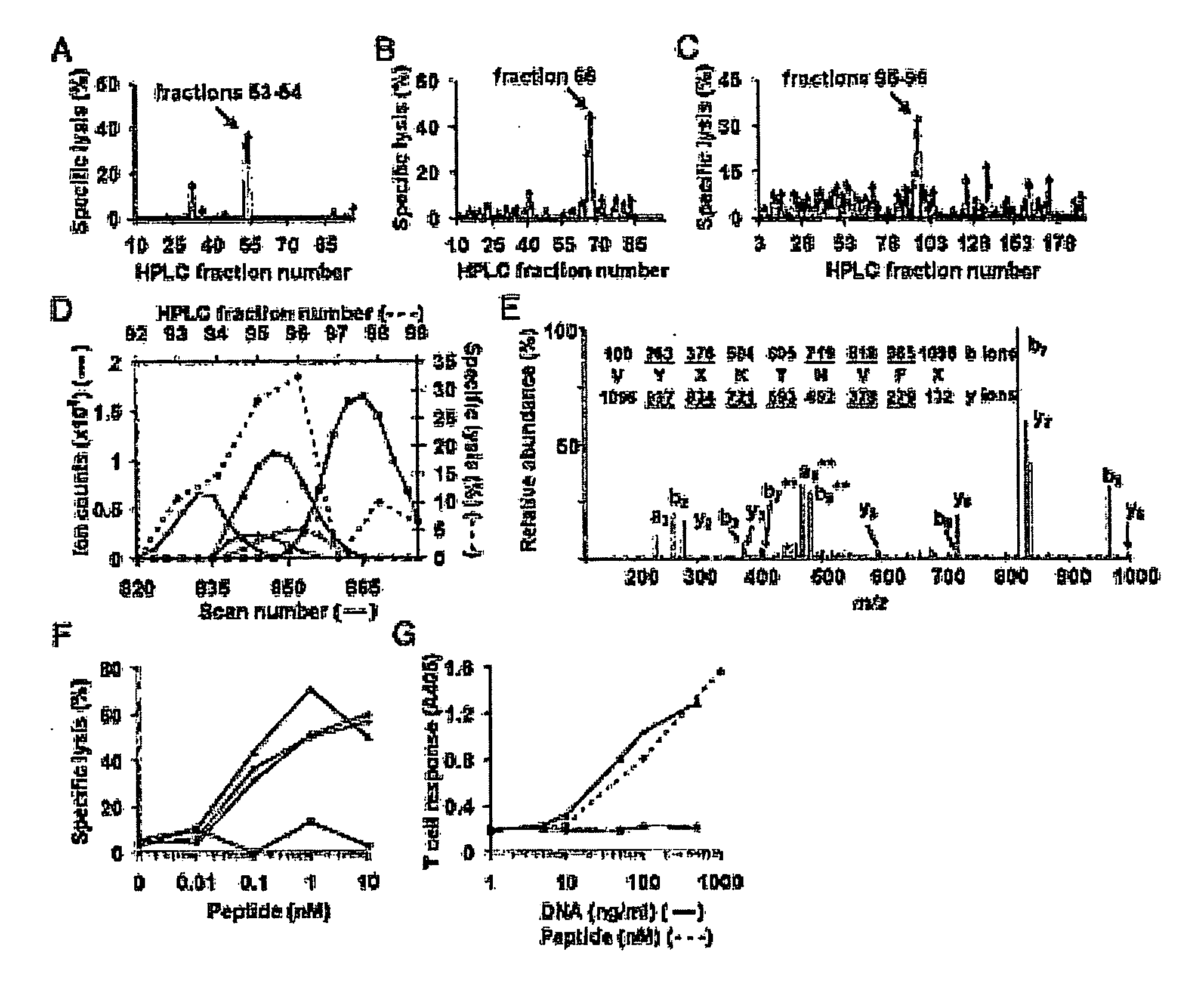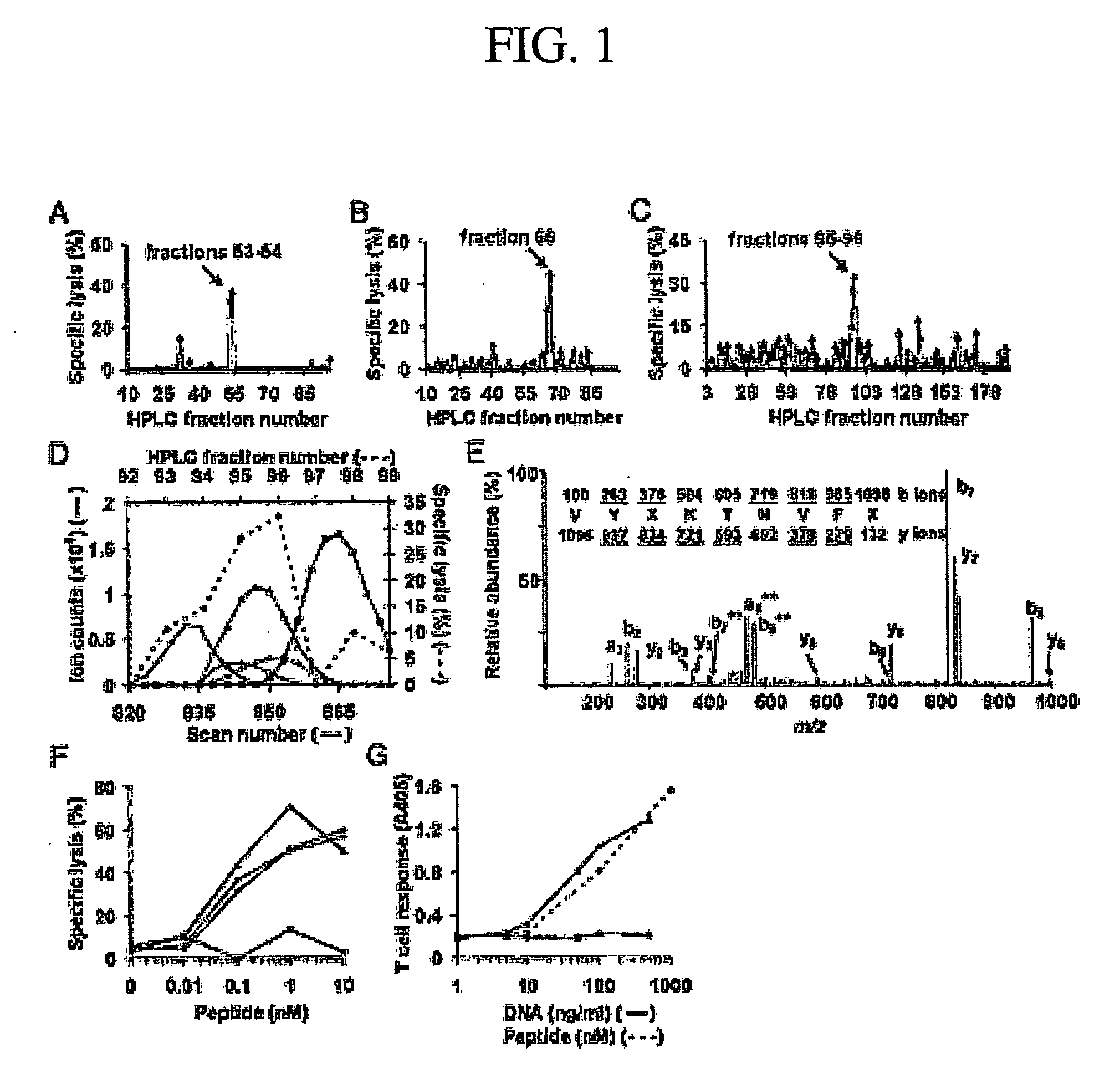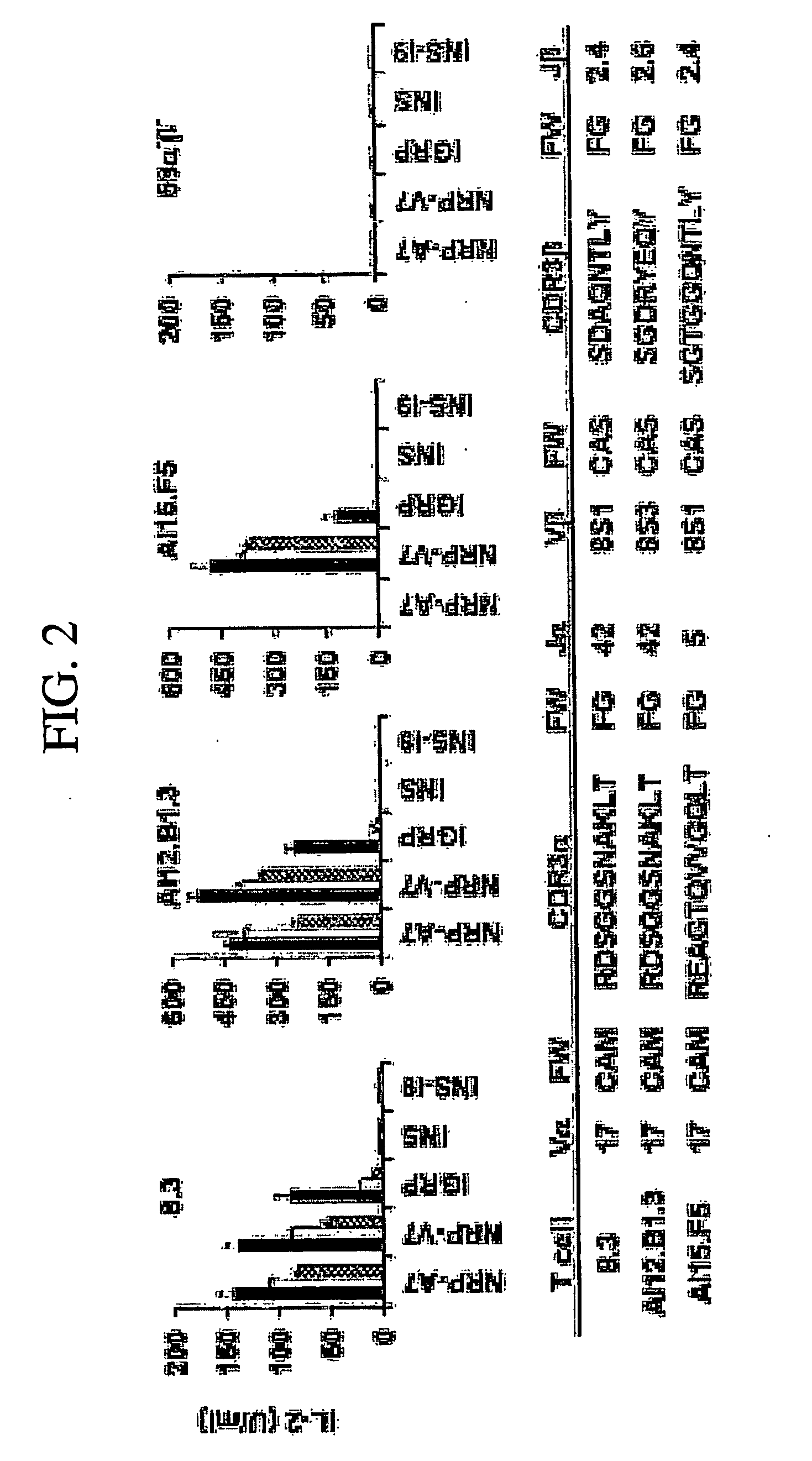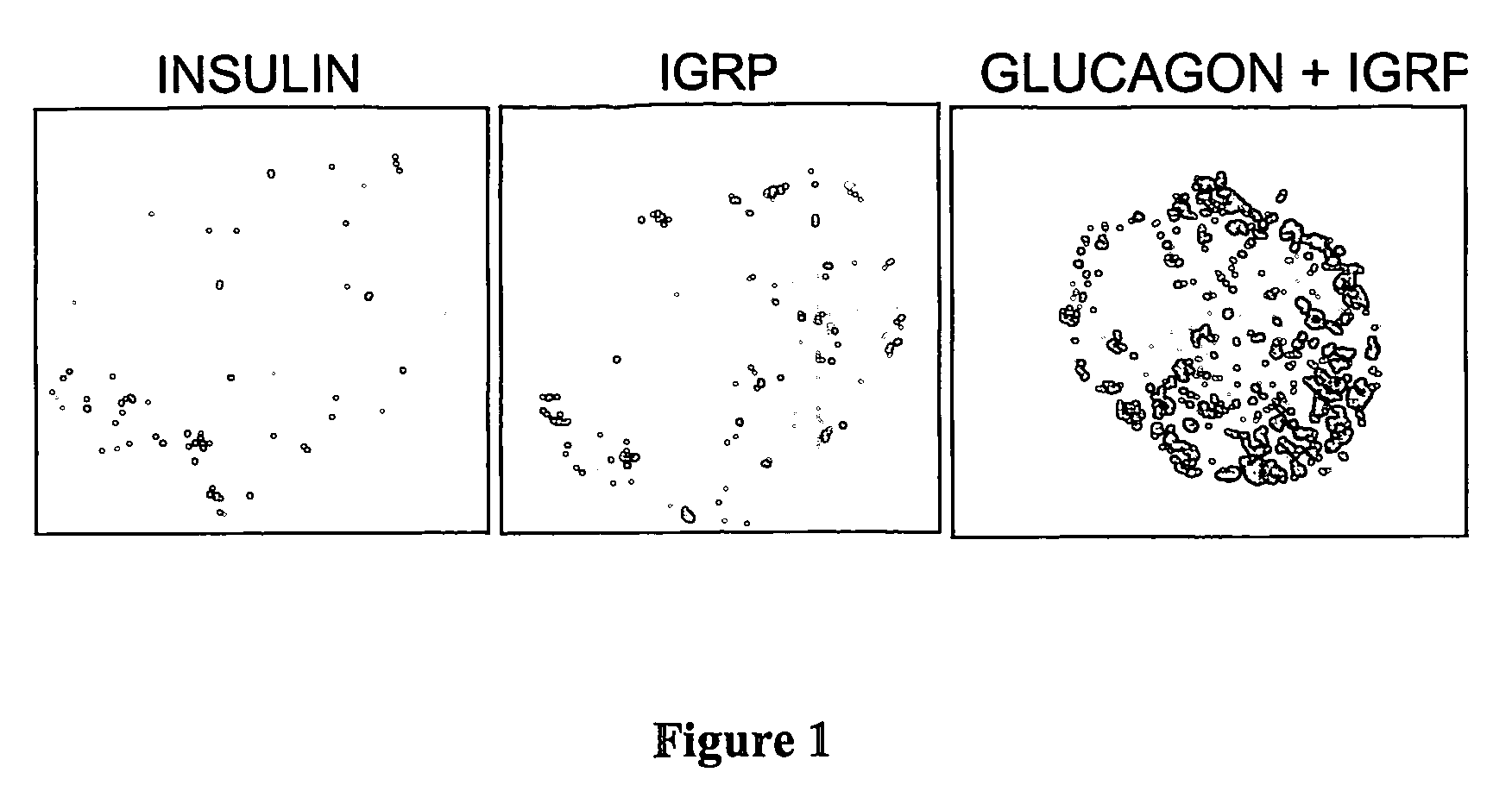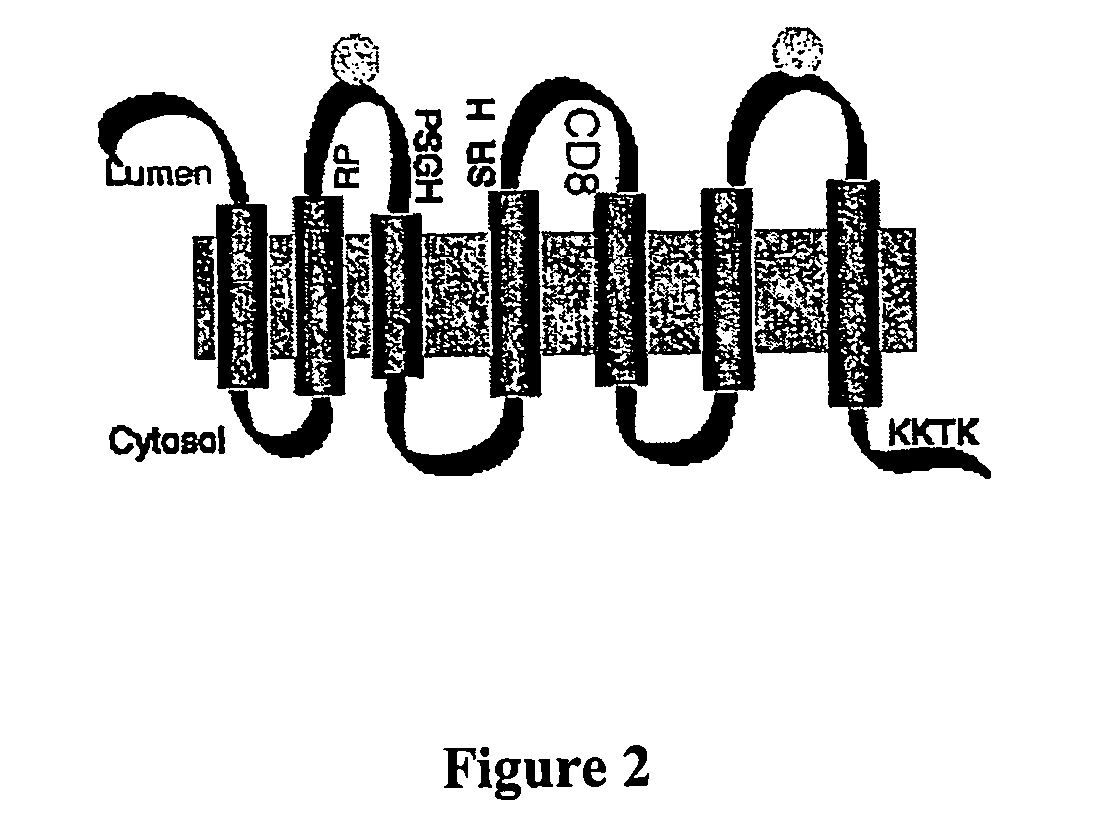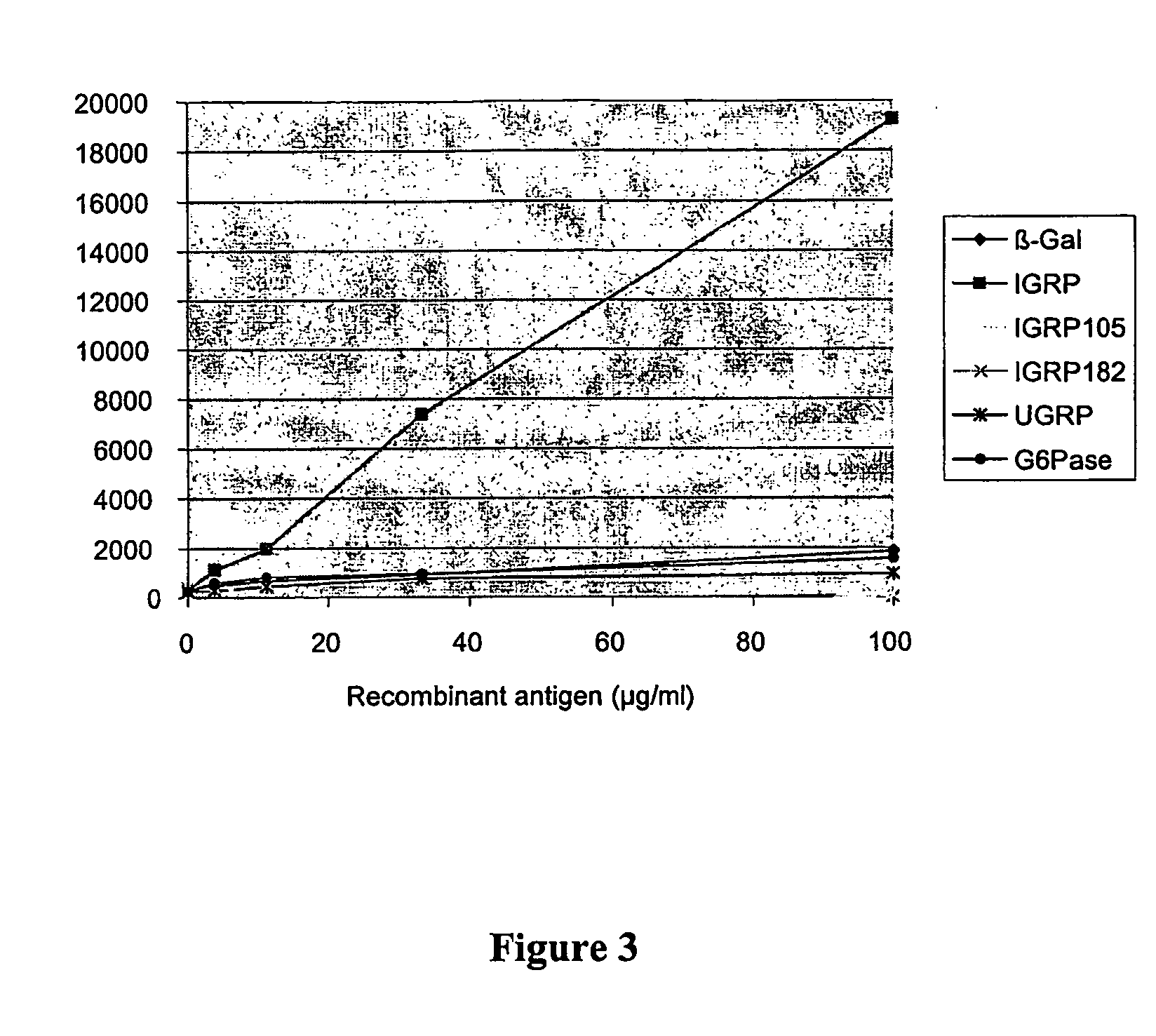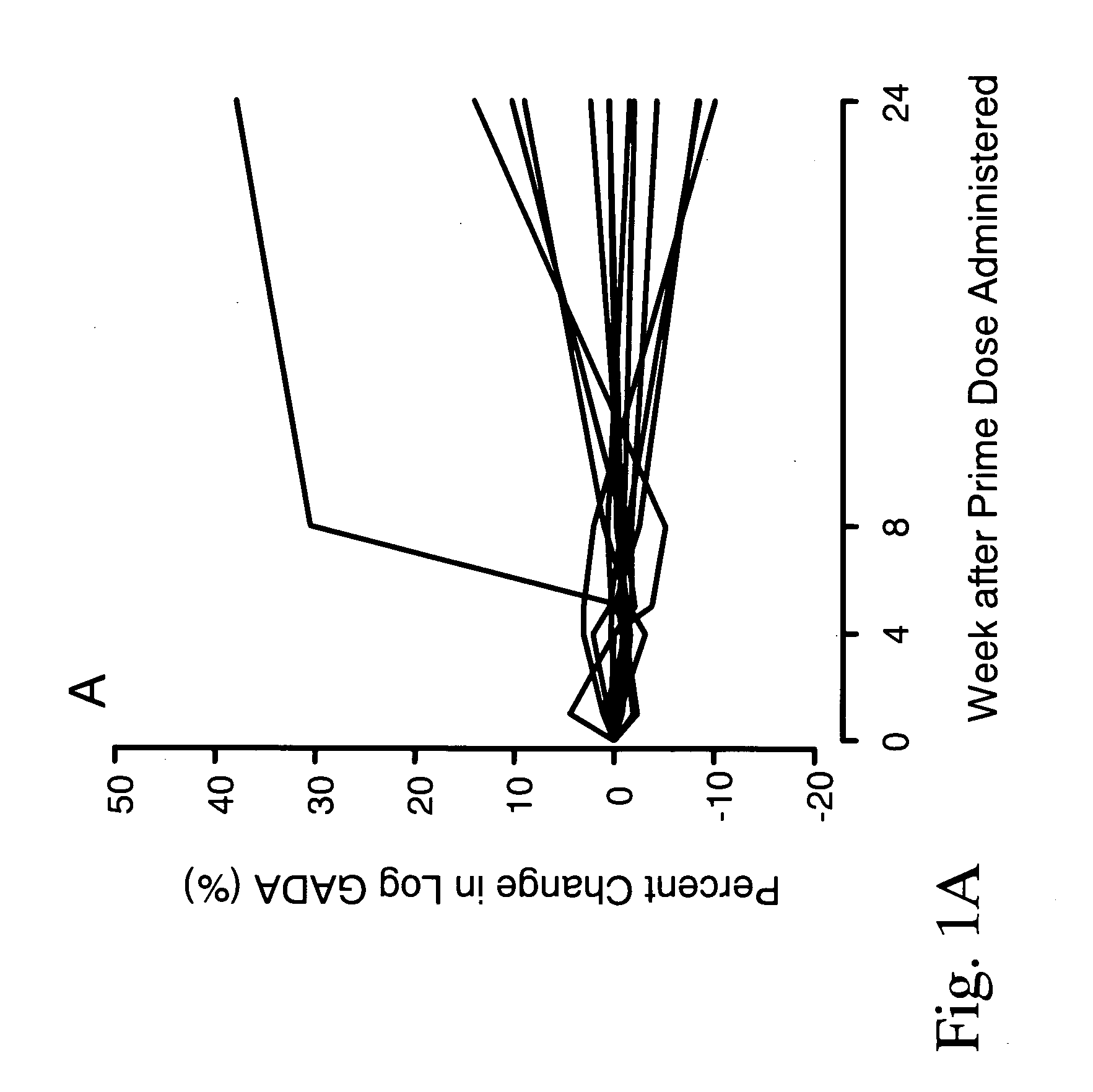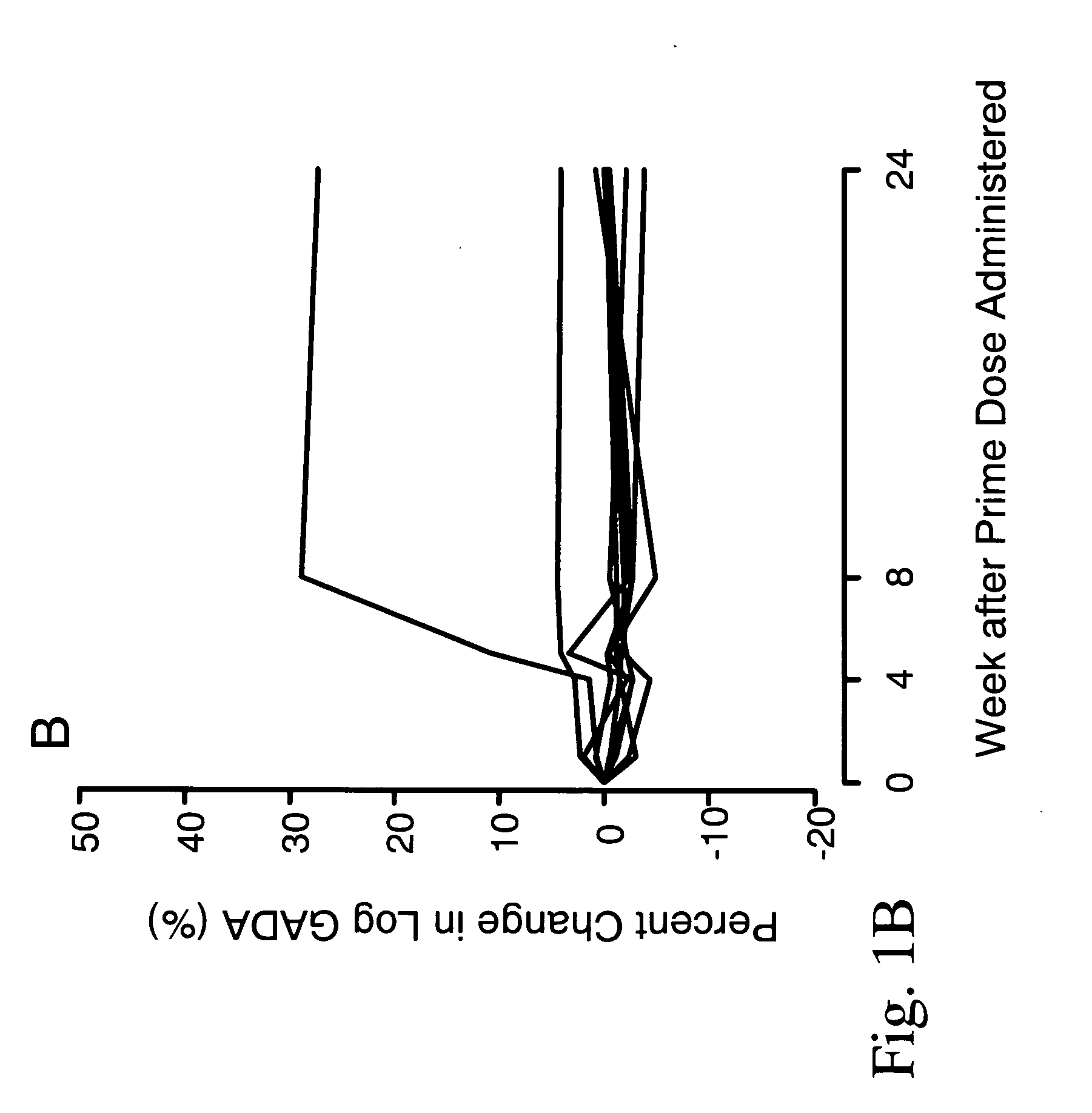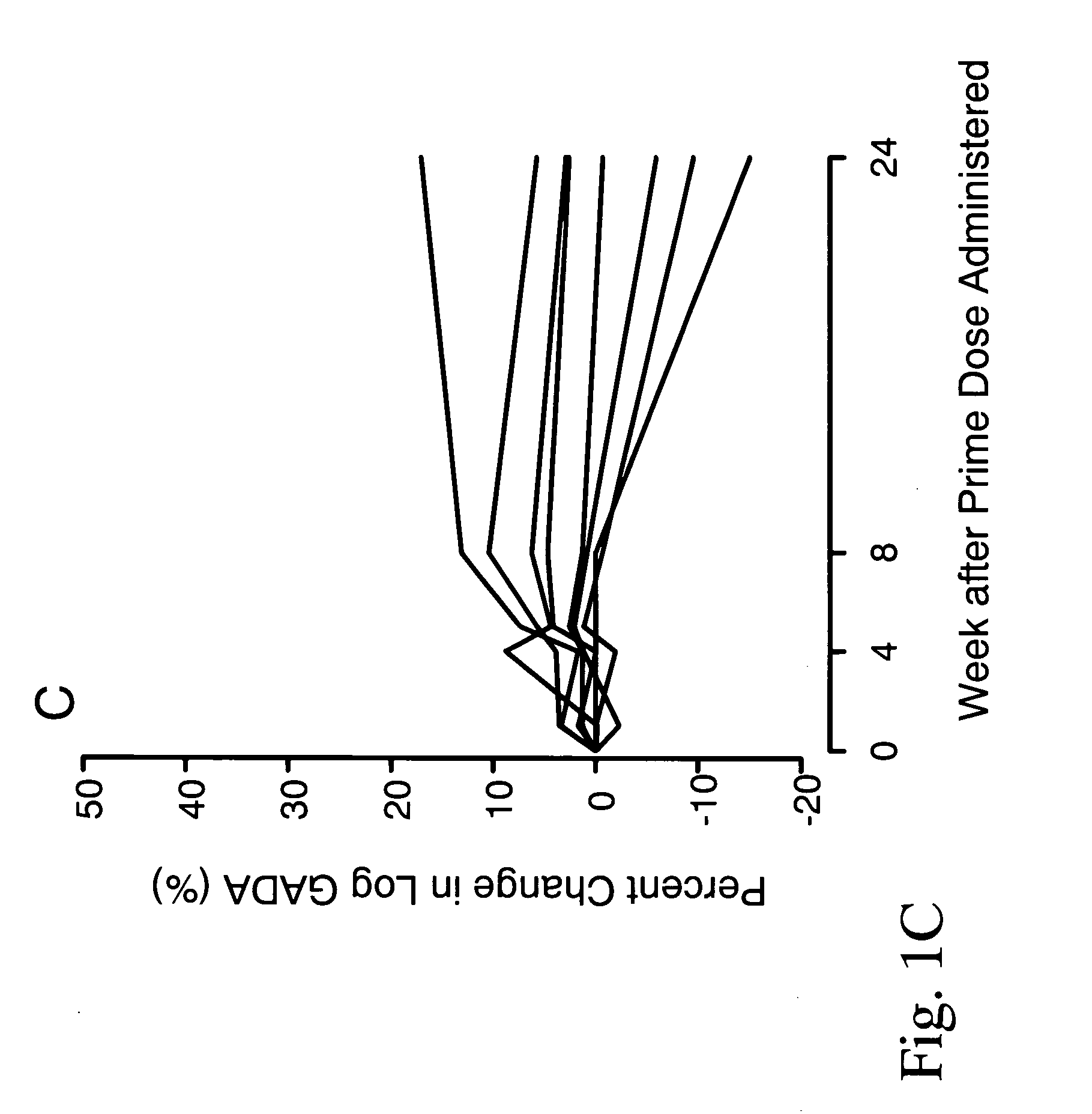Patents
Literature
62 results about "Autoimmune diabetes" patented technology
Efficacy Topic
Property
Owner
Technical Advancement
Application Domain
Technology Topic
Technology Field Word
Patent Country/Region
Patent Type
Patent Status
Application Year
Inventor
Latent autoimmune diabetes of adults (LADA) is a form of diabetes mellitus type 1 that occurs in adulthood, often with a slower course of onset than type 1 diabetes diagnosed in juveniles.
Methods for the Treatment of Autoimmune Disorders Using Immunosuppressive Monoclonal Antibodies with Reduced Toxicity
ActiveUS20080095766A1Reduce the possibilityIncreasing concentration of antibodySenses disorderNervous disorderDosing regimenInsulin dependent diabetes
The present invention provides methods of treating, preventing, slowing the progression of, or ameliorating the symptoms of T cell mediated immunological diseases, particularly autoimmune diseases (e.g., autoimmune diabetes (i.e. type 1 diabetes or insulin-dependent diabetes mellitus (IDDM)) and multiple sclerosis) through the use of anti-human CD3 antibodies. The antibodies of the invention of the invention are preferably used in low dose dosing regimens, chronic dosing regimens or regimens that involve redosing after a certain period of time. The methods of the invention provide for administration of antibodies that specifically bind the epsilon subunit within the human CD3 complex. Such antibodies modulate the T cell receptor / alloantigen interaction and, thus, regulate the T cell mediated cytotoxicity associated with autoimmune disorders. Additionally, the methods of the invention provide for use of anti-human CD3 antibodies modified such that they exhibit reduced or eliminated effector function and T cell activation as compared to non-modified anti-human CD3 antibodies.
Owner:PROVENTION BIO INC
Delivery of as-oligonucleotide microspheres to induce dendritic cell tolerance for the treatment of autoimmune type 1 diabetes
AS-oligonucleotides are delivered in microsphere form in order to induce dendritic cell tolerance, particularly in the non-obese-diabetic (NOD) mouse model. The microspheres incorporate antisense (AS) oligonucleotides. A process includes using an antisense approach to prevent an autoimmune diabetes condition in NOD mice in vivo and in situ. The oligonucleotides are targeted to bind to primary transcripts CD40, CD80, CD86 and their combinations.
Owner:BAXTER INT INC +2
Anti-CD45RB antibodies
ActiveUS7265212B2Hybrid immunoglobulinsIn-vivo radioactive preparationsTransplant rejectionMonoclonal antibody
Antibodies which specifically recognize the human CD45 isoform RB are presented. These antibodies may be used to block undesirable immune reactions in patients with transplant rejection and autoimmune diseases such as rheumatoid arthritis, multiple sclerosis and autoimmune diabetes. Preferred antibodies are fully human, monoclonal antibodies.
Owner:ABQENIX INC
Compositions and methods for the treatment or prevention of autoimmune diabetes
InactiveUS6884785B2Reduce the possibilityEffectively modifying immune systemOrganic active ingredientsPeptide/protein ingredientsGenetic MaterialsAutoimmune diabetes
The present invention provides compostions and methods for the prevention or treatment of autoimmune disorders. In particular, the invention methods utilize genetic material encoding at least a portion of an autoreactive epitope that, upon administration to a subject, acts to modulate the immune system thereby ameliorating conditions associated with an autoreactive antigen.
Owner:THE SCRIPPS RES INST
Anti-CD3 and antigen-specific immunotherapy to treat autoimmunity
InactiveUS20070190045A1Improve immune toleranceMaintain long-termNervous disorderPeptide/protein ingredientsDiseaseTolerability
The invention provides methods for treating autoimmunity and for reestablishing tolerance. The methods involve the coadministration of anti-CD3 antibodies and self-antigens. The coadministration has the potential to provide a synergistic effect of protecting or reducing autoaggressive immune processes and / or of reestablishing tolerance towards self-antigens. An underlying rationale behind the methods is that the administration of self-antigens together with anti-CD3 antibodies can alter the response to those self-antigens and prevent progression of autoimmunity. By rechallenging with the autoantigens and stimulating the non-pathogenic response, the blockade of the autoimmune process can be maintained. Preclinical evidence provided herein shows that the combination of anti-CD3 and autoantigen is synergistic in reversing autoimmune diabetes, and therefore, suggests that combination therapy of anti-CD3 and self-antigen may provide synergistic protection in reversing other autoimmune disorders.
Owner:THE UCSF DIABETES CENT +2
Metformin hydrochloride/voglibose sugar-lowering oral preparation composition and preparation method thereof
InactiveCN101590007AEnsure complianceConvenience guaranteedOrganic active ingredientsMetabolism disorderEnteric-coated granulesSecond-line therapy
The invention provides a metformin hydrochloride / voglibose sugar-lowering oral preparation composition and a preparation method thereof. The weight ratio of two main medicines is 8000:1-375:1, preferably 2500:1-625:1. Except for the main medicines, the composition also can further contain commonly used medicine accessories, such as a binder, a filling agent, a disintegrating agent, a lubricant, a flavoring agent, a wetting agent and a flow agent, and the obtained composition can be prepared into tablets, granules, soft and hard capsules, sustained and controlled release preparations, optimum enteric-coated tablets, enteric-coated granules and enteric-coated soft and hard capsules by conventional methods. The composition provided by the invention has action mechanism complementation of the main medicines, multiple target points, good compliance of patients, and the like. The sugar-lowering oral preparation composition can be used for the first-line therapy of type 2 diabetes, or can be used for second-line therapy under the condition that the metformin hydrochloride or sulfonylurea medicines fail to singly and effectively control blood sugar; and the sugar-lowering oral preparation composition is especially suitable for the therapy of diabetic patients suffering from latent autoimmune diabetes in adults (LADA) and hyperinsulinemia.
Owner:北京瑞伊人科技发展有限公司 +1
Isolated TNF-alpha peptide and pharmaceutical composition thereof
InactiveUS7892558B2Peptide/protein ingredientsAntipyreticTumor necrosis factor alphaAutoimmune diabetes
The present invention relates to peptides derived from the proinflammatory cytokines, interleukin-1β, (IL1β) and tumor necrosis factor α, (TNFα), and their use in human or veterinary therapy, such as to generally treat diseases linked to the overproduction of IL1β or TNFα as well as acute or chronic inflammatory diseases, rheumatoid arthritis, septic shock, autoimmune diabetes, graft rejection in the host, etc.
Owner:VAXCONSULTING
Chimeric human leukocyte antigen and epitope-bearing molecules having immunosuppressant activity
InactiveUS20040234531A1Hybrid immunoglobulinsAntibody mimetics/scaffoldsAutoimmune responsesWhite blood cell
The present invention relates to chimeric molecules that comprise human major histocompatibility complex elements, linked to epitopes of interest, that have been joined together to form dimers or higher multimers. Such chimeric molecules may be used to treat or prevent diseases associated with autoimmunity, particularly diabetes. It is based, at least in part, on the discovery that a chimeric molecule comprising an IILA-DR element linked to an epitope of GAD65, an antigen associated with autoimmune diabetes, stimulated the secretion of the inhibitory cytokine IL-10 from CD4 T cells of Type I diabetic patients.
Owner:MT SINAI SCHOOL OF MEDICINE
Compound for preventing or treating autoimmune diabetes and preparation method and application thereof
InactiveCN102702300AEnhance anti-inflammatoryGood pain reliefOrganic active ingredientsMetabolism disorderAspirinDrug compound
The invention discloses a compound for preventing or treating autoimmune diabetes, and the structure of the compound is shown in a general formula 1. The invention also discloses a preparation method and an application of the compound. The twin drug compound of diosgenin and ibuprofen or aspirin provided by the invention not only can effectively prevent or treat autoimmune diabetes caused by the damage of beta cells of pancreas islet, but also has better effects of anti-inflammation, analgesia and the like, and a new choice is provided for clinical medication.
Owner:WEST CHINA HOSPITAL SICHUAN UNIV
Application of regulatory T cells in preparing drug for treating autoimmune diabetes and expanding cultivation solution and method thereof
ActiveCN107349219AGood curative effectTherapy is safeMetabolism disorderCulture processRegulatory T cellPenicillin
The invention discloses application of regulatory T cells in preparing a drug for treating autoimmune diabetes and an expanding cultivation solution and method thereof. The expanding cultivation solution of the regulatory T cells is prepared from, by volume, 35.274-42.69 parts of serum-free cultivation solutions, 1.25-2.5 parts of 4-(2-hydroxyerhyl)piperazine-1-erhanesulfonic acid buffer solution, 0.5-1 part of penicillin-streptomycin solution, 0.5-1 part of L-glutamine, 0.05-0.1 part of 2-mercaptoethanol, 0.00769-0.01154 part of recombinant interleukin-2, 0.001-0.01 part of rapamycin and 5-10 parts of AB serum. According to the application of the regulatory T cells in preparing the drug for treating the autoimmune diabetes, through targeted research on the regulatory T cells and the pathogenesis of the autoimmune diabetes, applicants find that the regulatory T cells has relatively good therapeutic effects at the aspect of treating the autoimmune diabetes.
Owner:CENT SOUTH UNIV
Methods and Compositions for Use of Neutrophil Elastase and Proteinase 3 as Diagnostic Biomarkers
ActiveUS20150346203A1Reduce riskReduce development riskMicrobiological testing/measurementLibrary screeningProteinase activityAutoimmune diabetes
Methods and compositions for identifying autoimmune diabetes are provided. One aspect provides a method for the evaluation of risk and progression of autoimmune diabetes in mammalian subjects. The method includes measuring the enzymatic activities and / or protein concentrations of neutrophil elastase and proteinase 3 in a subject and comparing the measured levels of these proteases to respective reference levels.
Owner:VERSITECH LTD
Diagnostic and therapeutic target for autoimmune diseases and uses thereof
ActiveUS20100143374A1Hybrid immunoglobulinsCell receptors/surface-antigens/surface-determinantsAntigenAutoimmune responses
Described is the identification of ZnT8 as an autoantigen target in type I autoimmune diabetes (T1D), other autoimmune disease, and other diabetes-linked diseases and conditions. Also described are a variety of therapeutic, diagnostic, and prognostic tools and methods based on this discovery. The identification of genetic variation in ZnT8 as an important player in the initiation of the disease process and the progression of autoimmunity to clinical diabetes is disclosed.
Owner:UNIV OF COLORADO THE REGENTS OF
Picolinamide and pyrimidine-4-carboxamide compounds, process for preparing and phamaceutical composition comprising the same
ActiveUS20130210811A1Selective inhibitory activityImpaired glucose toleranceAntibacterial agentsBiocideDyslipidemiaGlucocorticoid
Provided are picolinamide and pyrimidine-4-carboxamide compounds, a method for preparing the same, a pharmaceutical composition containing the same, and a medical use using the compound as an agent for preventing, regulating, and treating diseases related to regulation of glucocorticoids by using selective inhibitory activity of the compound for an 11β-HSD1 enzyme. The picolinamide and pyrimidine-4-carboxamide compounds of the present invention are selective inhibitors of human-derived 11β-HSD1 enzymes, and are useful in an agent for preventing, regulating, and treating diseases related to glucocorticoid regulation in which human-derived 11β-HSD1 enzymes are involved, for example, metabolic syndromes such as, type 1 and type 2 diabetes, diabetes later complications, latent autoimmune diabetes adult (LADA), insulin tolerance syndromes, obesity, impaired glucose tolerance (IGT), impaired fasting glucose (IFG), damaged glucose tolerance, dyslipidemia, atherosclerosis, hypertension, etc.
Owner:SK CHEM CO LTD
Methods for the treatment of autoimmune disorders using immunosuppressive monoclonal antibodies with reduced toxicity
ActiveUS9056906B2Treating and preventing and slowing progression of and ameliorating symptomSlow and reduce autoimmunitySenses disorderNervous disorderDosing regimenInsulin dependent diabetes
The present invention provides methods of treating, preventing, slowing the progression of, or ameliorating the symptoms of T cell mediated immunological diseases, particularly autoimmune diseases (e.g., autoimmune diabetes (i.e. type 1 diabetes or insulin-dependent diabetes mellitus (IDDM)) and multiple sclerosis) through the use of anti-human CD3 antibodies. The antibodies of the invention of the invention are preferably used in low dose dosing regimens, chronic dosing regimens or regimens that involve redosing after a certain period of time. The methods of the invention provide for administration of antibodies that specifically bind the epsilon subunit within the human CD3 complex. Such antibodies modulate the T cell receptor / alloantigen interaction and, thus, regulate the T cell mediated cytotoxicity associated with autoimmune disorders. Additionally, the methods of the invention provide for use of anti-human CD3 antibodies modified such that they exhibit reduced or eliminated effector function and T cell activation as compared to non-modified anti-human CD3 antibodies.
Owner:PROVENTION BIO INC
Method of treating an autoimmune disease
InactiveUS20060154853A1Novel safe effective strategyAvoid the needNervous disorderPeptide/protein ingredientsAutoimmune responsesAutoimmune disease
The present invention relates generally to a method for treating or ameliorating the symptoms of or reducing or otherwise minimizing the risk of development of an autoimmune disease such as but not limited to autoimmune diabetes. More particularly, the present invention relates to the use of genetically modified hemopoietic stem cells and / or hemopoietic progenitor cells which express genetic material encoding one or more autoantigens which give rise to antigen-presenting cells that induce immune tolerance and / or protective immunity. The present invention provides, therefore, a method for the treatment and / or prophylaxis of autoimmune disease conditions such as type 1 diabetes.
Owner:WALTER & ELIZA HALL INST OF MEDICAL RES
Diagnostic and therapeutic target for autoimmune diseases and uses thereof
ActiveUS9023984B2Cell receptors/surface-antigens/surface-determinantsPeptide/protein ingredientsAntigenAutoimmune condition
Described is the identification of ZnT8 as an autoantigen target in type I autoimmune diabetes (T1D), other autoimmune disease, and other diabetes-linked diseases and conditions. Also described are a variety of therapeutic, diagnostic, and prognostic tools and methods based on this discovery. The identification of genetic variation in ZnT8 as an important player in the initiation of the disease process and the progression of autoimmunity to clinical diabetes is disclosed.
Owner:UNIV OF COLORADO THE REGENTS OF
Compositions and methods for preserving insulin-producing cells and insulin production and treating diabetes
Nuclear Transport Modifiers such as cSN50 and cSN50.1, afford in vivo islet protection following a 2-day course of intense treatment in autoimmune diabetes-prone, non-obese diabetic (NOD) mice, a widely used model of Type 1 diabetes (T1D), which resulted in a diabetes-free state for one year without apparent toxicity and the need to use insulin. cSN50 precipitously reduces the accumulation of islet-destructive autoreactive lymphocytes while enhancing activation-induced cell death of T and B lymphocytes derived from NOD mice. cSN50 attenuated pro-inflammatory cytokine and chemokine production in immune cells in this model of human T1D. cSN50 also provides cytoprotection of beta cells, therefore preserving residual insulin-producing capacity. Because intracellular delivery of a Nuclear Transport Modifier peptide such as cSN50 and cSN50.1 can result in lowering of blood glucose levels and may reducing insulin resistance, the compositions, methods and cells described herein can also be used for treating Type 2 diabetes (T2D).
Owner:VANDERBILT UNIV
Inhibition of Glycogen Synthase Kinase and Methods of Treating Autoimmune or Immune Inflammatory Disease
The present invention relates to the use of glycogen synthase kinase 3(GSK3) inhibitors, especially inhibitors of GSK-3α, GSK-3β and GSK-3β2, preferably, inhibitors of GSK-3β, in patients having autoimmune diseases and / or immune dysfunction / dysregulation to induce immune tolerance. Inhibition of GSK leads to activation of a pathway of dendritic cell maturation which leads to a dendritic phenotype which attenuates, rather than induces, immune responses. The immune responses and mature dendritic cells produced by the method of the present invention redirect or attenuate the immune response in individuals, thus leading to effective therapies for a number of autoimmune diseases and / or diseases of immune dysfunction / dysregulation (immune inflammatory diseases), including systemic lupus erythematosus (SLE), autoimmune diabetes (type I diabetes mellitus), asthma, rheumatoid arthritis, inflammatory bowel disease, among numerous others.
Owner:MELLMAN IRA +1
Tetrastigma hemsleyanum Diels et Gilg root tuber polysaccharide with anti-pyretic and anti-inflammatory functions and application of Tetrastigma hemsleyanum Diels et Gilg root tuber polysaccharide
ActiveCN105504076AExpand medicinal resourcesSignificant antipyretic and anti-inflammatory effectOrganic active ingredientsAntipyreticMedicineAutoimmune diabetes
The invention discloses Tetrastigma hemsleyanum Diels et Gilg root tuber polysaccharide with anti-pyretic and anti-inflammatory functions and an application of the Tetrastigma hemsleyanum Diels et Gilg root tuber polysaccharide. The Tetrastigma hemsleyanum Diels et Gilg root tuber polysaccharide has remarkable anti-pyretic and anti-inflammatory functions, can be used for preparing anti-pyretic and anti-inflammatory drugs and has certain application value in prevention and control of diseases such as tumors, autoimmune diabetes, type 2 diabetes and the like always together with low fever and inflammation. The Tetrastigma hemsleyanum Diels et Gilg root tuber polysaccharide is prepared on the basis of the Tetrastigma hemsleyanum Diels et Gilg, the effects of the Tetrastigma hemsleyanum Diels et Gilg are developed, and the medicinal resource of the Tetrastigma hemsleyanum Diels et Gilg is expanded.
Owner:ZHEJIANG CHINESE MEDICAL UNIVERSITY
Microsphere-based composition for preventing and/or reversing new-onset autoimmune diabetes
InactiveUS8022046B2Reduce inflammationSymptoms improvedSpecial deliverySugar derivativesMicrosphereCD80
A method is provided that includes using an antisense approach to reverse and / or delay an autoimmune diabetes condition in vivo. The oligonucleotides are targeted to bind to primary transcripts CD40, CD80, CD86 and their combinations.
Owner:UNIVERSITY OF PITTSBURGH +2
Cxcr4 and robo1 expression as markers for autoimmune diabetes
ActiveUS20140073565A1Shorten the progressReduce development riskCompounds screening/testingPeptide/protein ingredientsCXCR4Autoimmune diabetes
CXCR4 and ROBO-1 are biomarkers associated with type 1 diabetes. Expression of CXCR4 and ROBO-1 in peripheral CD3 T cells is substantially higher in patients with autoimmune diabetes (type 1 diabetes) than in non-diabetic patients. Therapies are disclosed for reducing the progression of type 1 diabetes, and to reduce the risk of developing type 1 diabetes in patients who are at risk of developing type 1 diabetes.
Owner:BOARD OF SUPERVISORS OF LOUISIANA STATE UNIV & AGRI & MECHANICAL COLLEGE
Reaction membrane strip for detecting autoimmune diabetes, preparation method and using method
PendingCN107449904AOvercoming Detection SensitivityOvercoming featureDisease diagnosisDiseaseDiabetes mellitus
The invention provides a reaction membrane strip for detecting autoimmune diabetes, a preparation method and a using method, and belongs to the field of biomedical science. Aiming at the lack of an immunoblotting product special for various immune diabetes experimental examinations and physical examination at present and some defects of an existing immunoblotting agent, the invention provides the reaction membrane strip for detecting the autoimmune diabetes. The reaction membrane strip comprises a bottom lining plate, not less than one detecting zone and not less than one indicating zone, wherein the detecting zones and the indicating zones are arranged on the bottom lining plate; the detecting zones, the indicating zones as well as the detecting zones and the indicating zones are parallel to each other. Compared with the prior art, the reaction membrane strip provided by the invention has the following advantages that various autoantibodies can be detected through one clinic sample and once detection reaction, insufficient sensitivity and specificity of single autoantibody detection and operation complexity of independently detecting autoantibodies related to various diseases one by one are overcome, and the detecting efficiency and the result judgment accuracy are greatly increased.
Owner:SHENZHEN YHLO BIOTECH +1
Application of human polypeptide in preparation of immune regulator
InactiveCN102441159BIncrease the number ofReduce incidencePeptide/protein ingredientsImmunological disordersPeripheral blood mononuclear cellRegulatory T cell
Owner:赵海潞
1,3-bis-(substituted-phenyl)-2-propen-1-ones and their use to treat VCAM-1 mediated disorders
InactiveUS7078431B2Extended half-lifeReduce solubilityBiocideOrganic chemistryPercent Diameter StenosisArthritis
It has been discovered certain 1,3-bis-(substituted-phenyl)-2-propen-1-ones, including compounds of formula (I) inhibit the expression of VCAM-1, and thus can be used to treat a patient with a disorder mediated by VCAM-1. Examples of inflammatory disorders that are mediated by VCAM-1 include, but are not limited to arthritis, asthma, dermatitis, cystic fibrosis, post transplantation late and chronic solid organ rejection, multiple sclerosis, systemic lupus erythematosis, inflammatory bowel diseases, autoimmune diabetes, diabetic retinopathy, rhinitis, ischemia-reperfusion injury, post-angioplasty restenosis, chronic obstructive pulmonary disease (COPD), glomerulonephritis, Graves disease, gastrointestinal allergies, conjunctivitis, atherosclerosis, coronary artery disease, angina and small artery disease.
Owner:SALUTRIA PHARMACEUTICALS LLC
Application of human polypeptide in preparation of immune regulator
InactiveCN102441159AIncrease the number ofReduce incidencePeptide/protein ingredientsImmunological disordersPeripheral blood mononuclear cellRegulatory T cell
The invention discloses an application of a human polypeptide in preparation of an immune regulator. The invention is characterized in that a human polypeptide of which the amino acid sequence is KCNTATCATQRLANFLVHSSNNFGAILSSTNVGSNTY is prepared into an immune regulator for inducing CD4+CD25+Foxp3+regulatory T cells. The polypeptide preprocesses human peripheral blood mononuclear cells (PBMC) in vitro, thereby obviously increasing the quantity of human CD4+CD25+Foxp3+regulatory T cells; and the polypeptide immunizes non-obese diabetic (NOD) mice in vivo, thereby effectively preventing and treating autoimmune diabetes, improving immune pathological reaction and preventing and treating autoimmune diseases. The human polypeptide has wide application prospects in the aspects of autoimmune diseases, tissue and organ transplantation, inflammatory pathology and the like.
Owner:赵海潞
Delivery of as-oligonucleotide microspheres to induce dendritic cell tolerance for the treatment of autoimmune type 1 diabetes
InactiveUS20100260855A1Avoid accessInduce toleranceOrganic active ingredientsPowder deliveryTolerabilityDendritic cell
AS-oligonucleotides are delivered in microsphere form in order to induce dendritic cell tolerance, particularly in the non-obese-diabetic (NOD) mouse model. The microspheres incorporate antisense (AS) oligonucleotides. A process includes using an antisense approach to prevent an autoimmune diabetes condition in NOD mice in vivo and in situ. The oligonucleotides are targeted to bind to primary transcripts CD40, CD80, CD86 and their combinations.
Owner:UNIVERSITY OF PITTSBURGH +2
Immunomodulation by a therapeutic medication intended for treatment of diabetes and prevention of autoimmune diabetes
InactiveUS20080248055A1Promote productionImproving HbA1c blood sugar valueOrganic active ingredientsPeptide/protein ingredientsDiabetes mellitusAdjuvant
The present invention regards methods and formulations for the treatment of diabetes and the prevention of autoimmune diabetes. The invention includes the administration of human recombinant GAD65 protein in a pharmaceutically acceptable adjuvant.
Owner:DIAMYD
Antigens Targeted by Prevalent Pathogennic T Cells in Type 1 Diabetes and Uses Thereof
The present invention is based on the identification of a predominant ligand of CD8+ T cells that are responsible eq for type 1 diabetes. That ligand is islet-specific glucose-6-phosphatase catalytic subunit-related protein (IGRP). Several CD8+ T cell-binding peptides from IGRP are identified, including the peptide comprising amino acids 206-214 of the IGRP sequence, which has high avidity to the most prevalent T cell receptor of pathogenic CD8+ T cells in autoimmune diabetes. The invention thus provides oligopeptide and polypeptide compositions comprising YLKTN / A / I / L / V)FL, FLWSVFWLI, (T / A)YY / G / T)FLNFM, LR(LV)(F / L)(G / N)IDLL, KWCANPDWI, and SFCKSASIP. Also provided are oligopeptide compositions 8-10 amino acids in length and completely homologous with a mammalian IGRP, where the oligopeptide is capable of binding a human MHC class I molecule. Additionally, various methods of treating a mammal using the above compositions are provided, where the mammal is at risk for or has type 1 diabetes. Also provided are methods of preventing a CD8+ T cell that is cytotoxic to pancreatic islet β-cells from destroying a mammalian β-cell, where the methods also use the above compositions. Further provided are methods for determining whether a mammal is at risk for or has type 1 diabetes, where the methods use the above compositions.
Owner:UNIV TECH INT +3
Targeted Drug-Formaldehyde Conjugates And Methods Of Making And Using The Same
A method and compositions for detecting autoimmunity to islet glucose-6 phosphatase related protein (IGRP). Detection of IGRP autoantibodies alone, and in combination with other molecules such as the 65-kDa form of glutamate decarboxylase (GAD65), insulin and insulin granule membrane proteins ICA512 (IA-2) and phogrin (IA-2) auto-antigens, provides an effective and reliable chemical assay for the diagnosis of autoimmune (type 1) diabetes. Additionally, this invention provides therapeutic regimens based on IGRP and related molecules for the amelioration of the diabetic clinical condition. Therefore, IGRP alone or in combination with other autoimmune diabetes associated antigens such as insulin, IA-2 and GAD65, is useful in the prediction (diagnosis), treatment (therapy), and prevention (prophylaxis) of diabetes.
Owner:HUTTON JOHN C +3
Immunomodulation by a therapeutic medication intended for treatment of diabetes and prevention of autoimmune diabetes
InactiveUS20050209138A1Prevent autoimmune diabetesFunction increasePeptide/protein ingredientsMetabolism disorderDiabetes mellitusAdjuvant
The present invention regards methods and formulations for the treatment of diabetes and the prevention of autoimmune diabetes. The invention includes the administration of human recombinant GAD65 protein in a pharmaceutically acceptable adjuvant.
Owner:DIAMYD MEDICAL
Features
- R&D
- Intellectual Property
- Life Sciences
- Materials
- Tech Scout
Why Patsnap Eureka
- Unparalleled Data Quality
- Higher Quality Content
- 60% Fewer Hallucinations
Social media
Patsnap Eureka Blog
Learn More Browse by: Latest US Patents, China's latest patents, Technical Efficacy Thesaurus, Application Domain, Technology Topic, Popular Technical Reports.
© 2025 PatSnap. All rights reserved.Legal|Privacy policy|Modern Slavery Act Transparency Statement|Sitemap|About US| Contact US: help@patsnap.com
